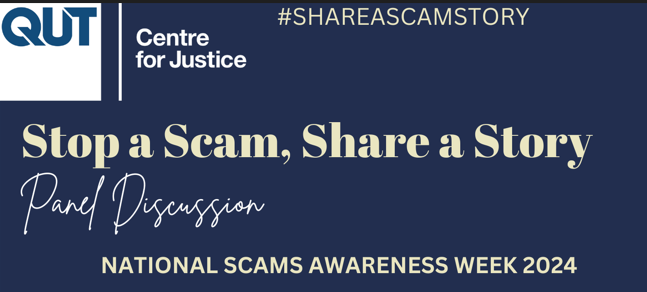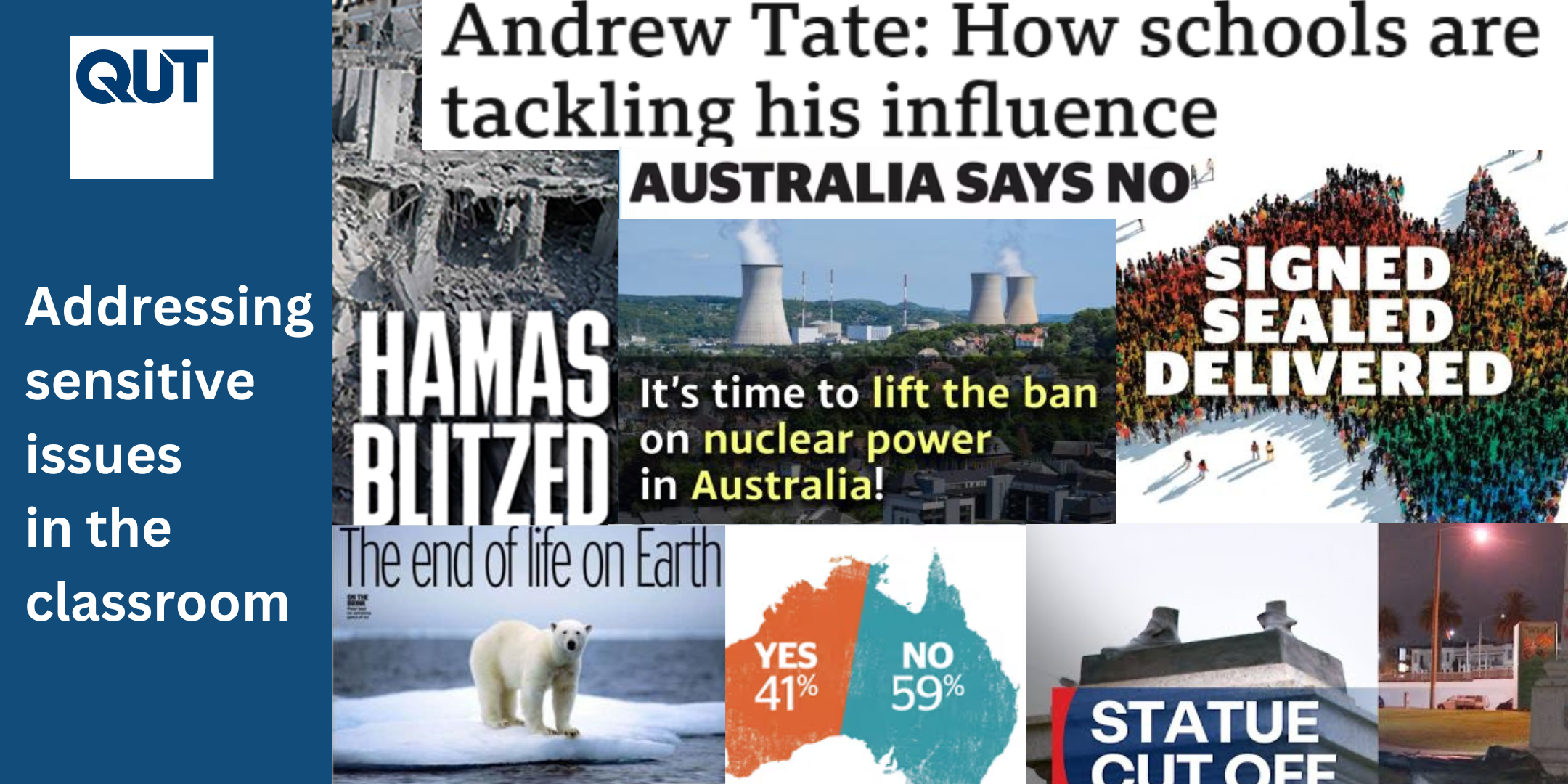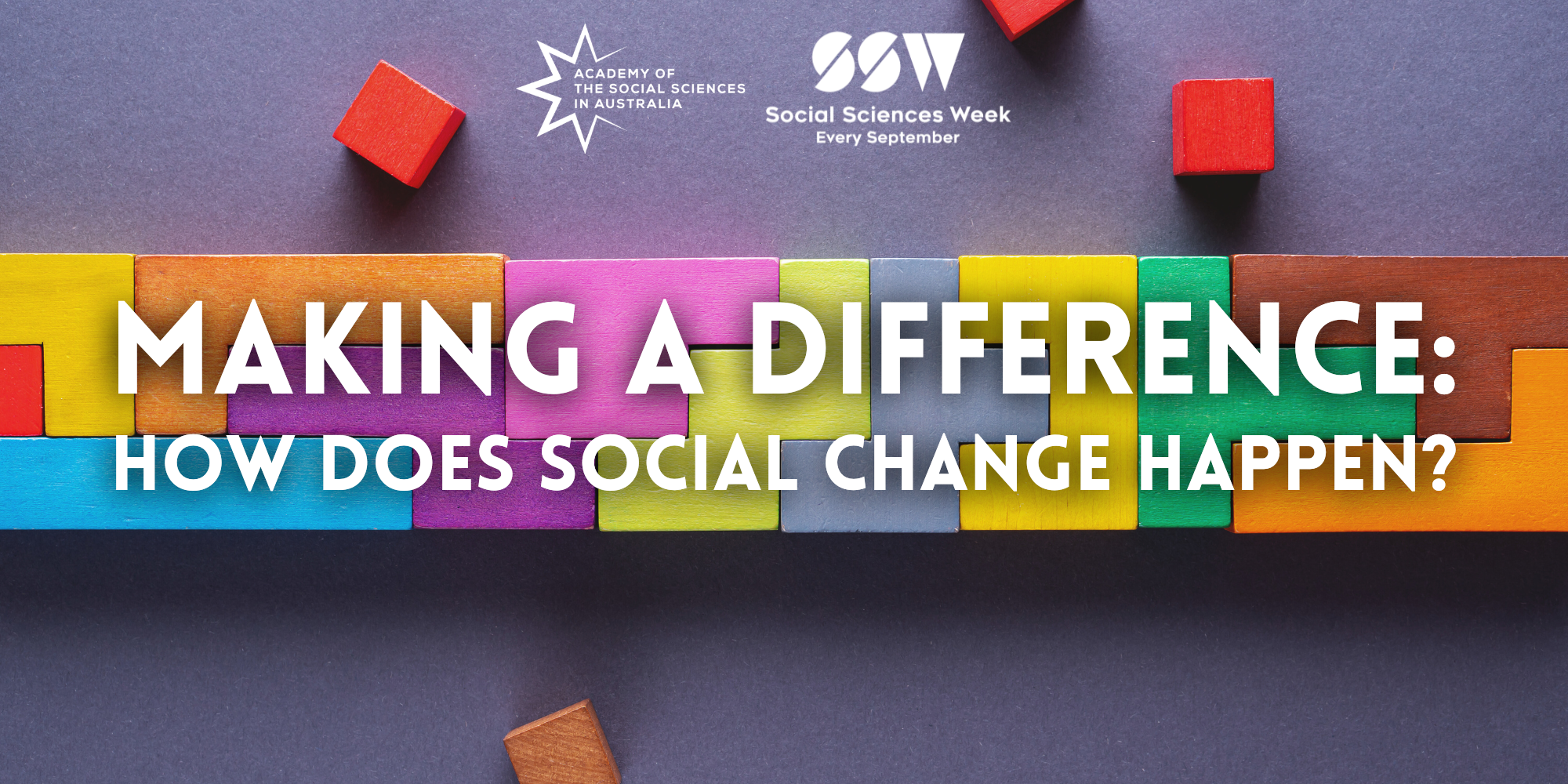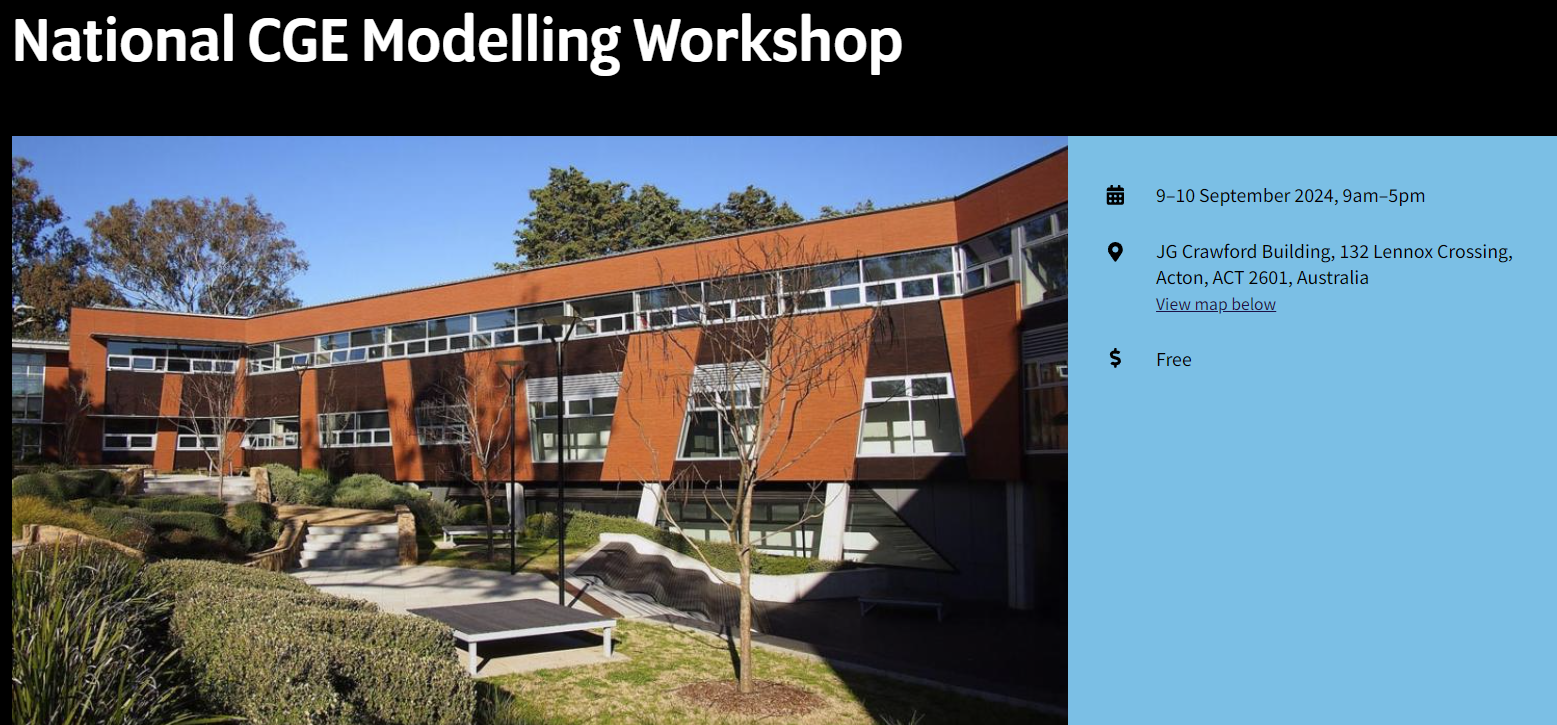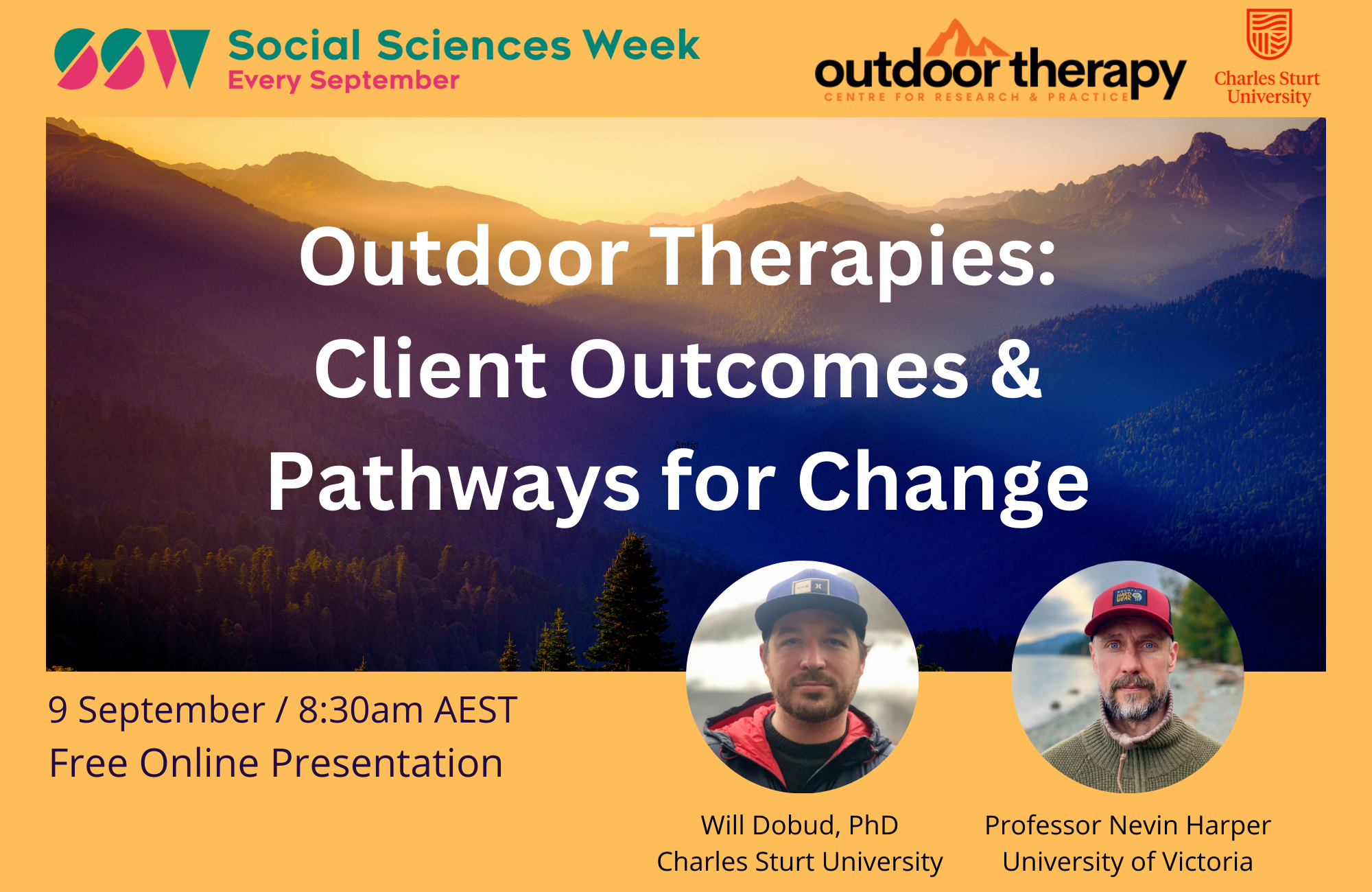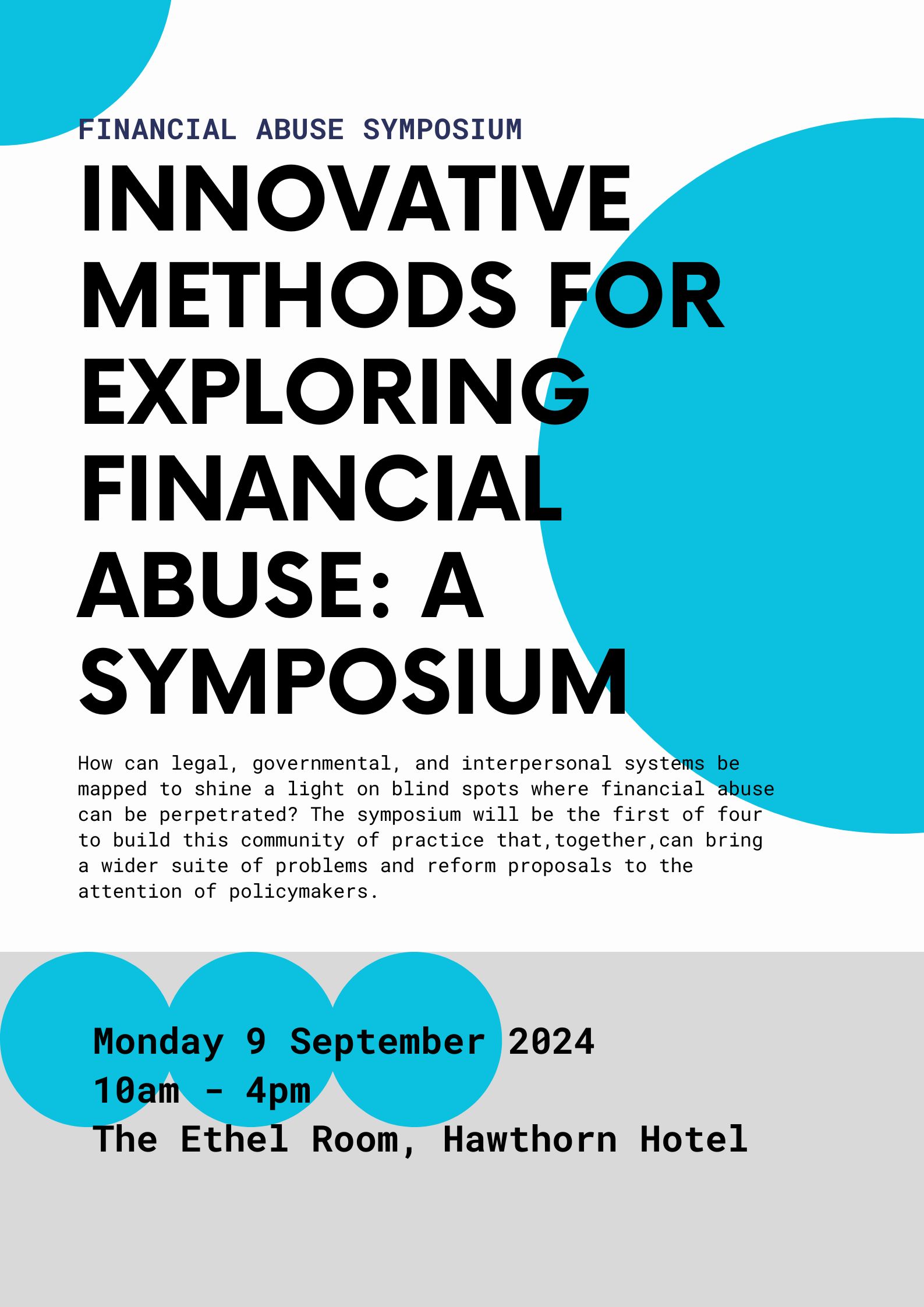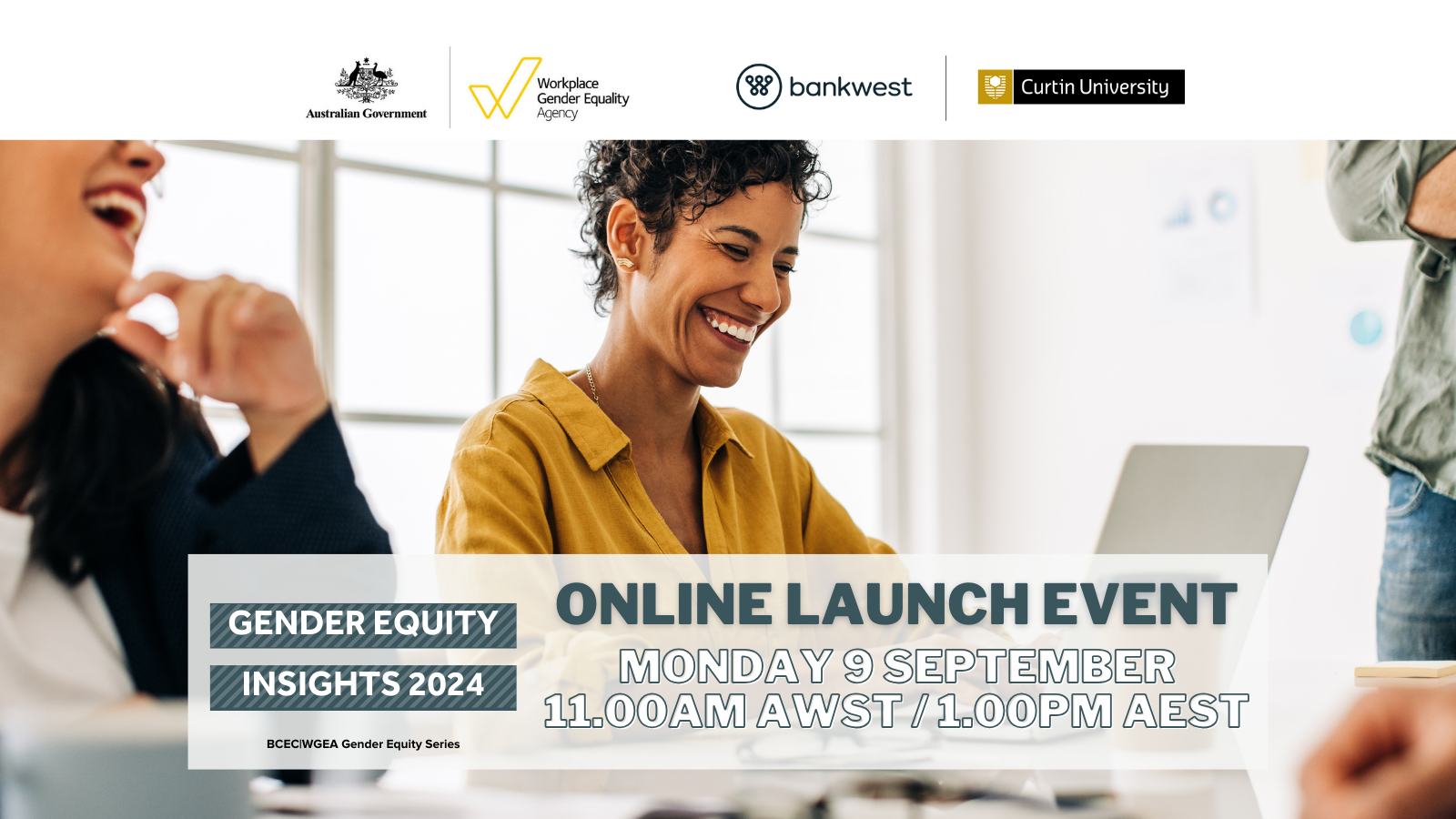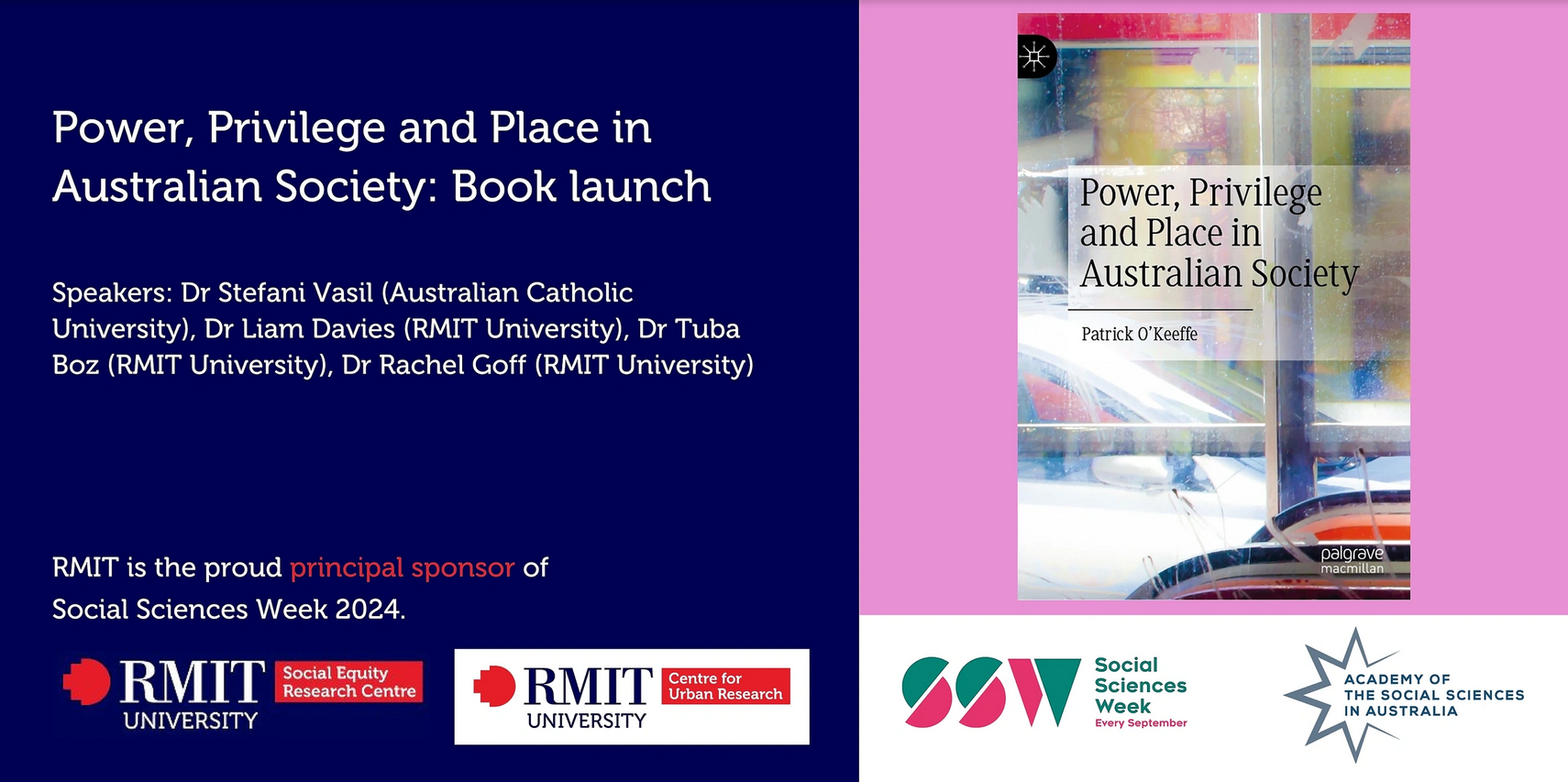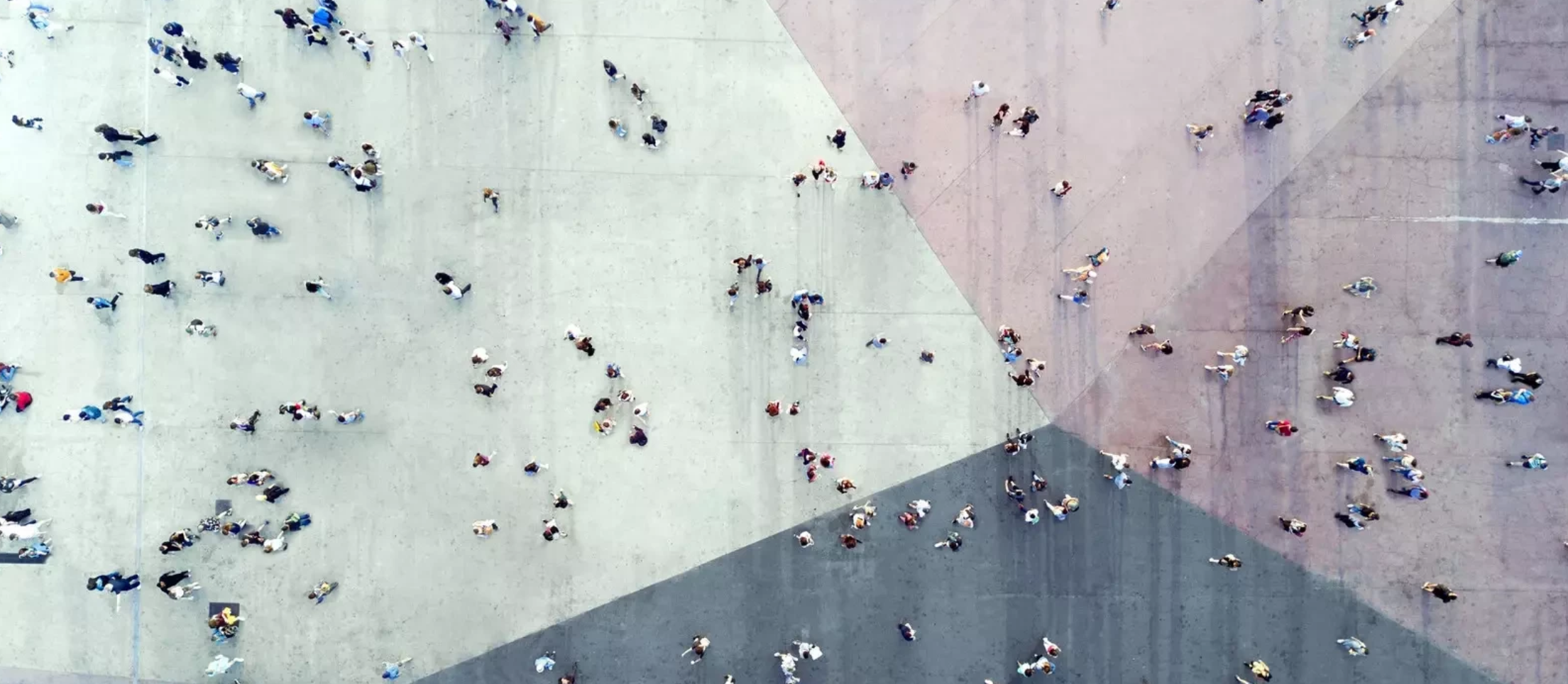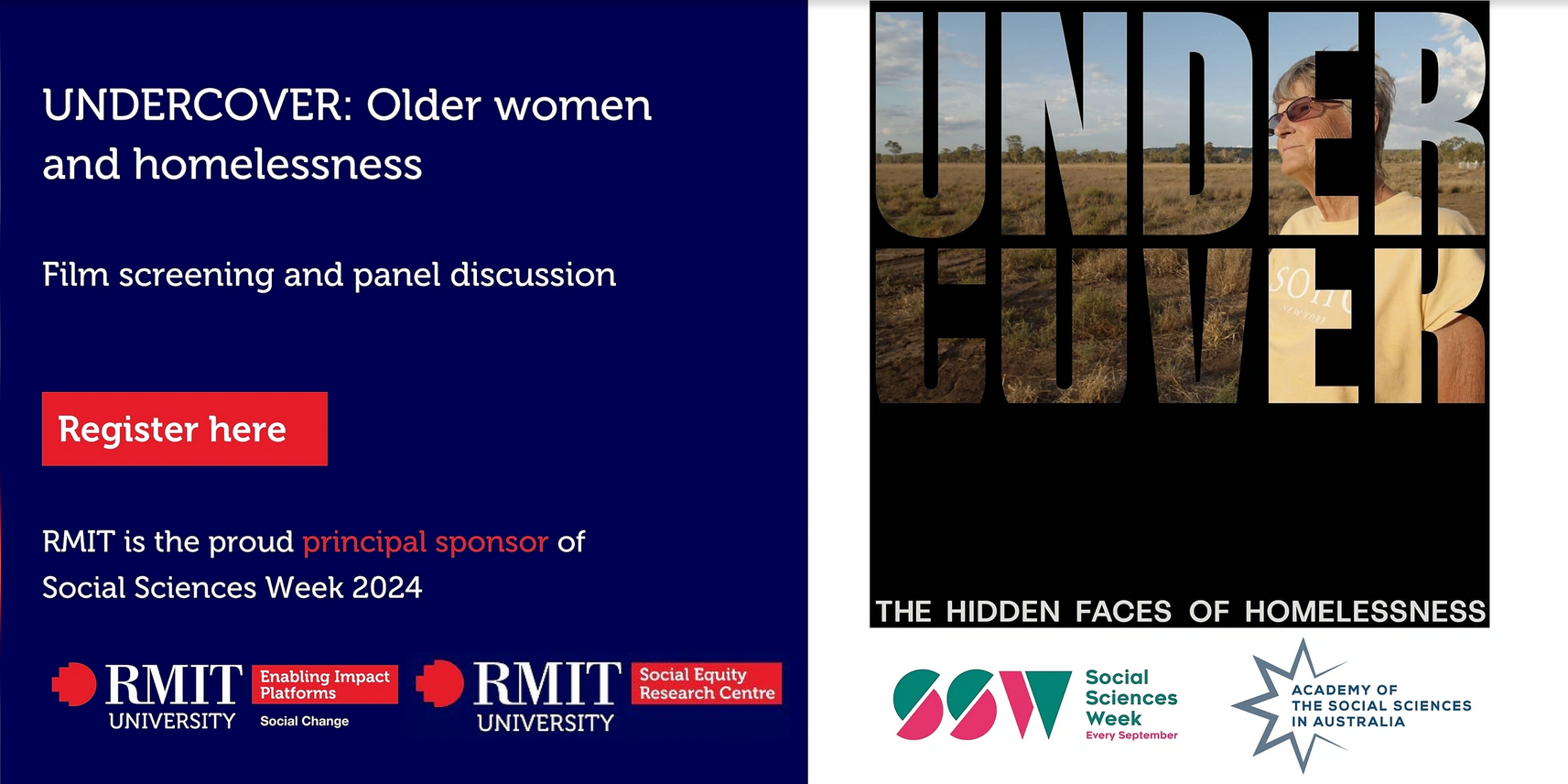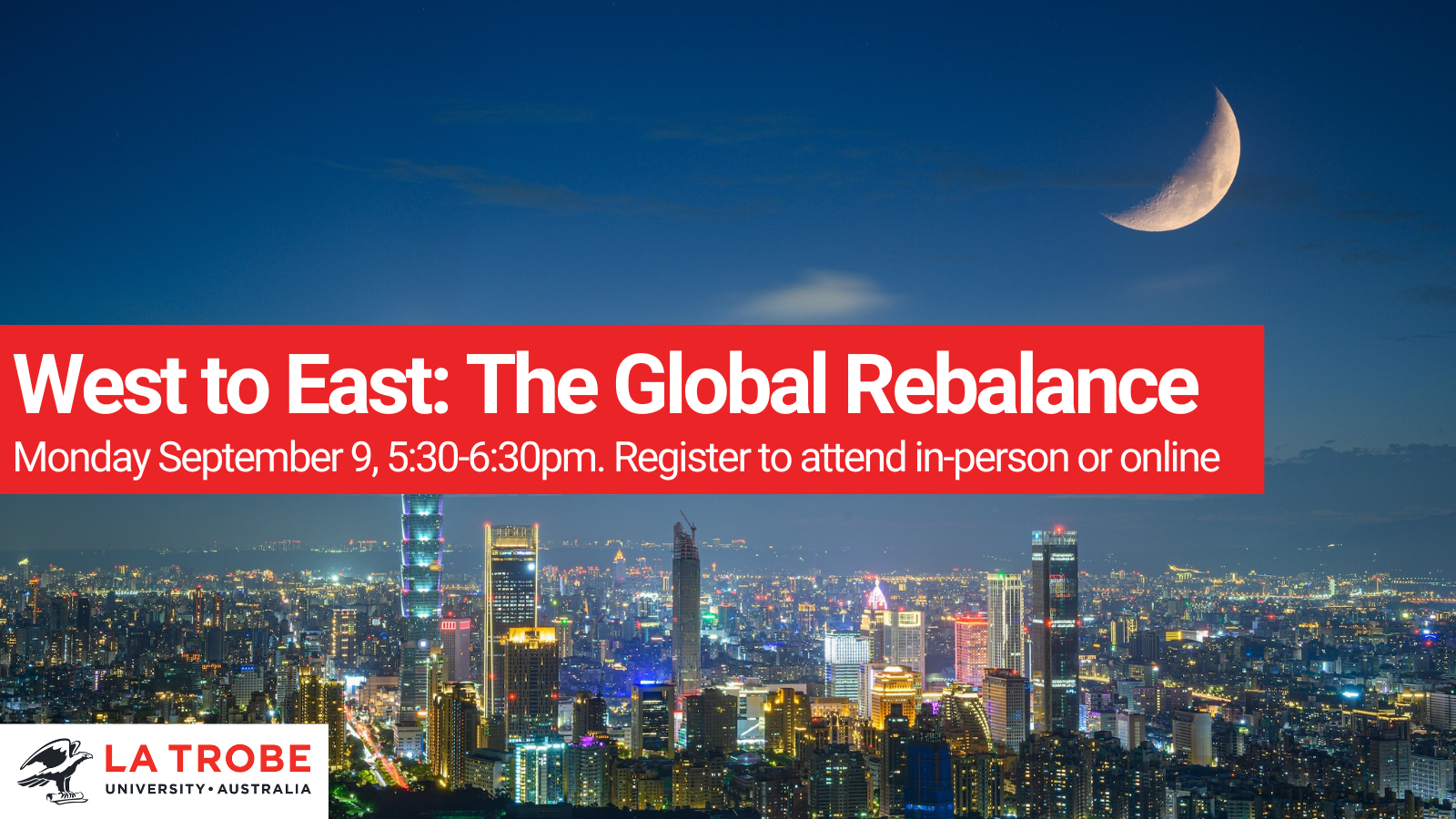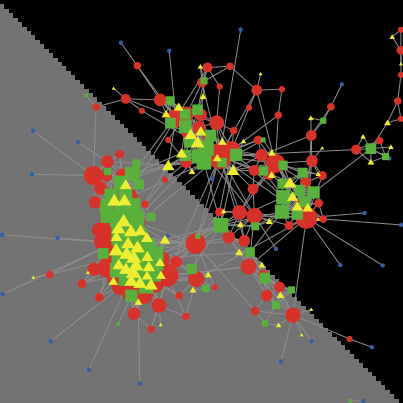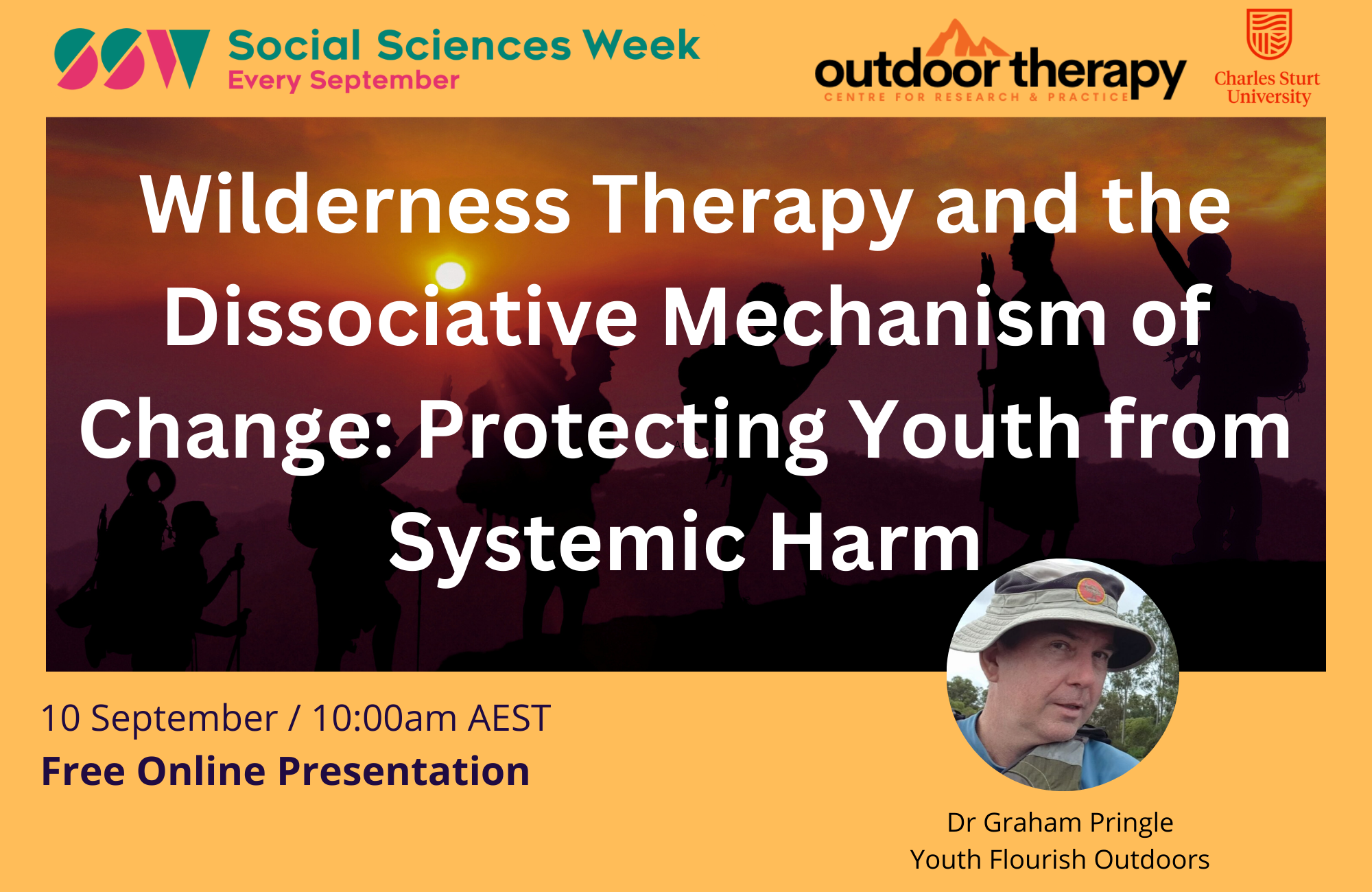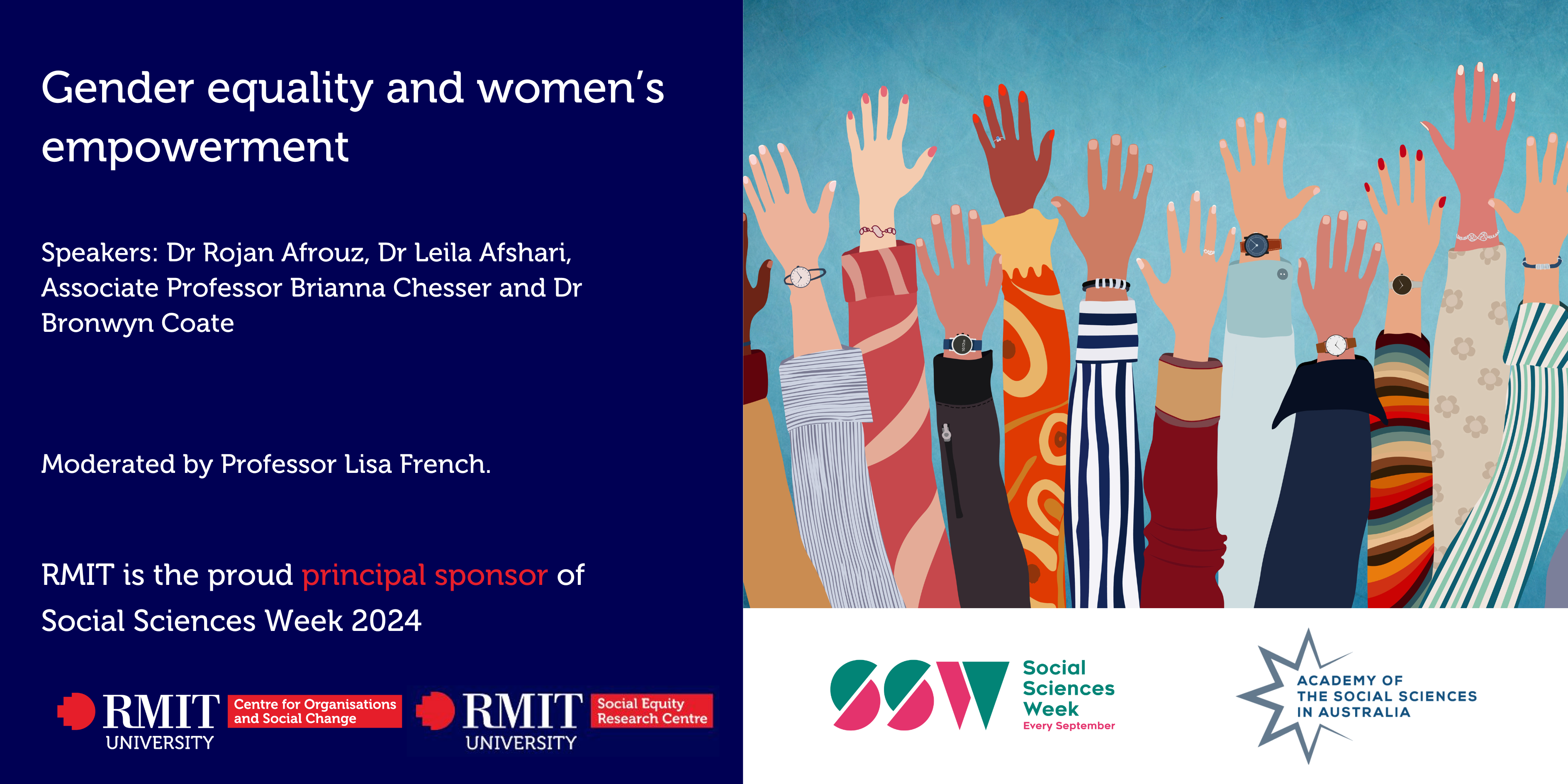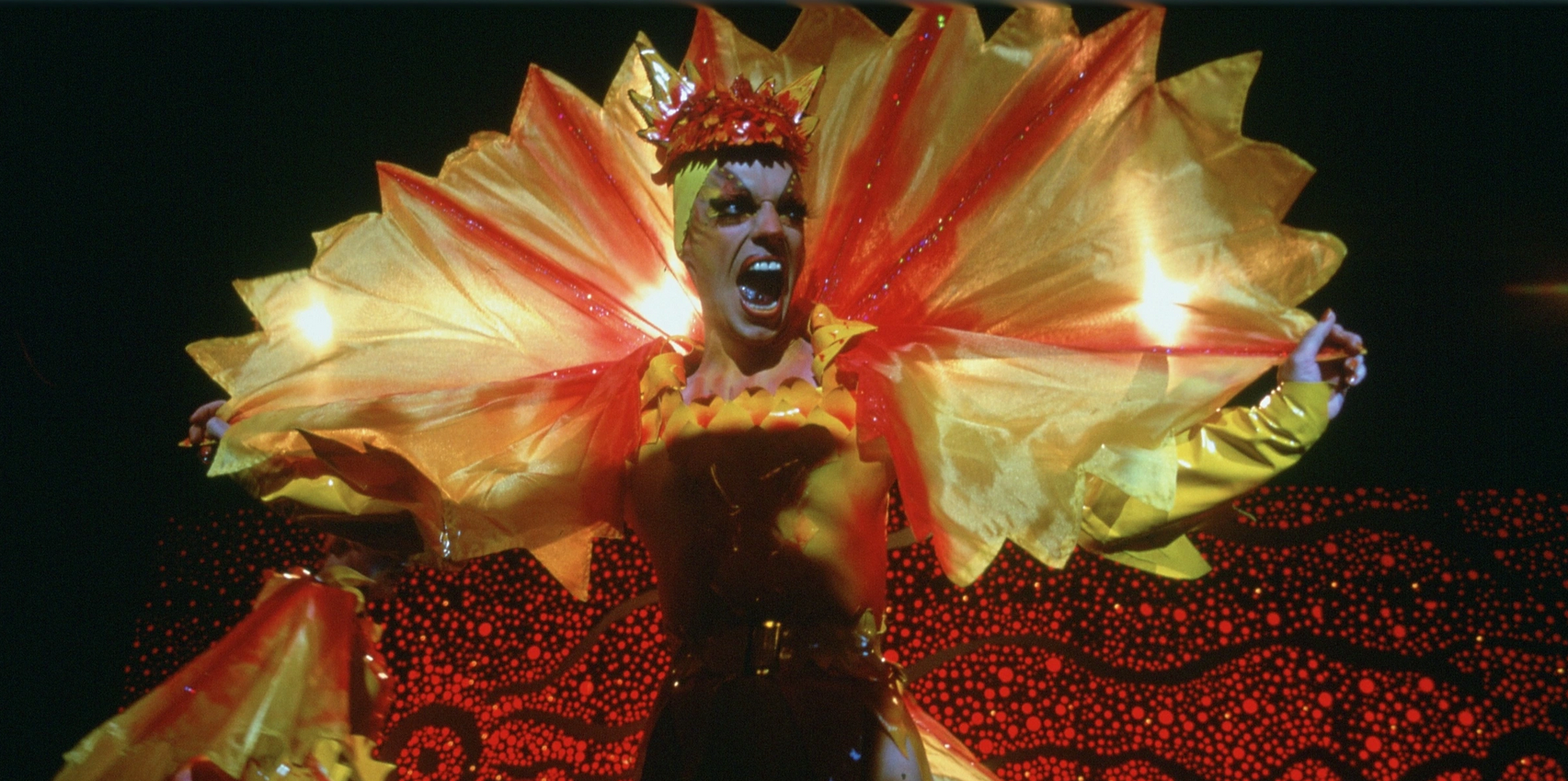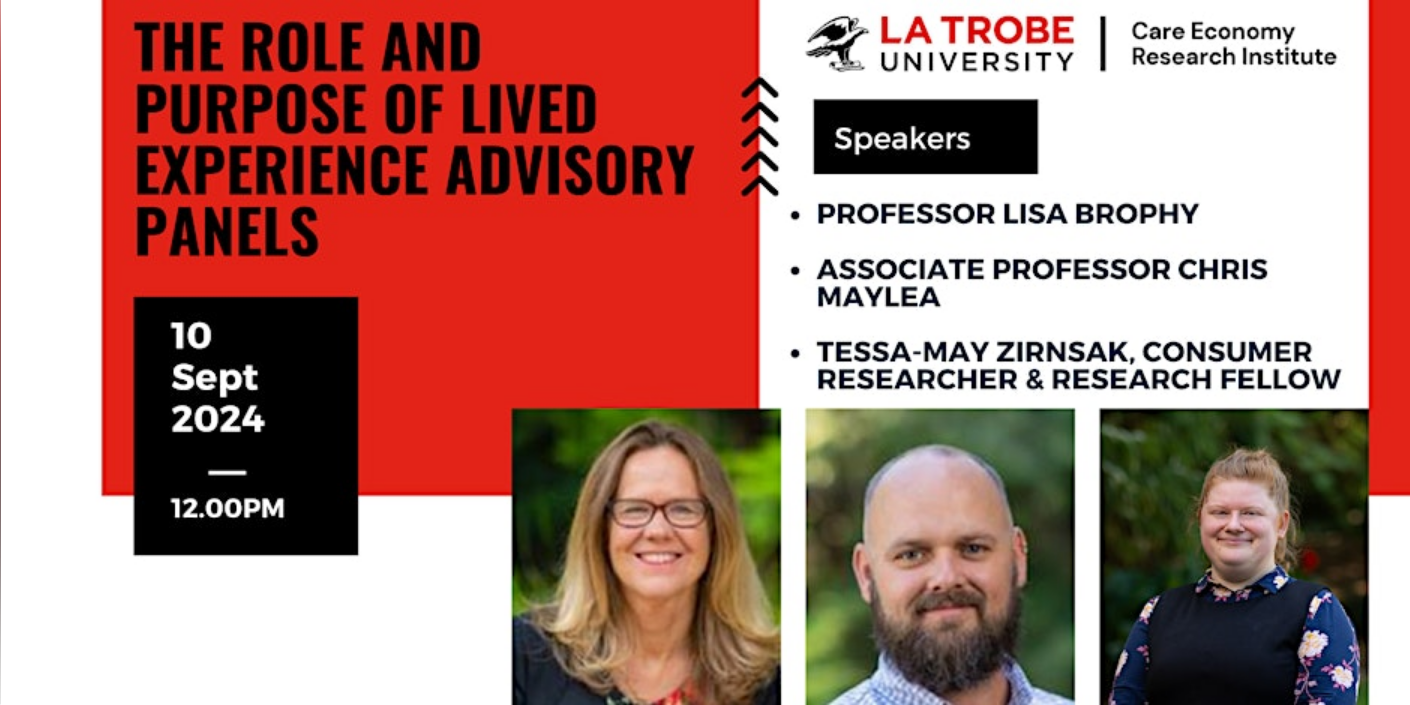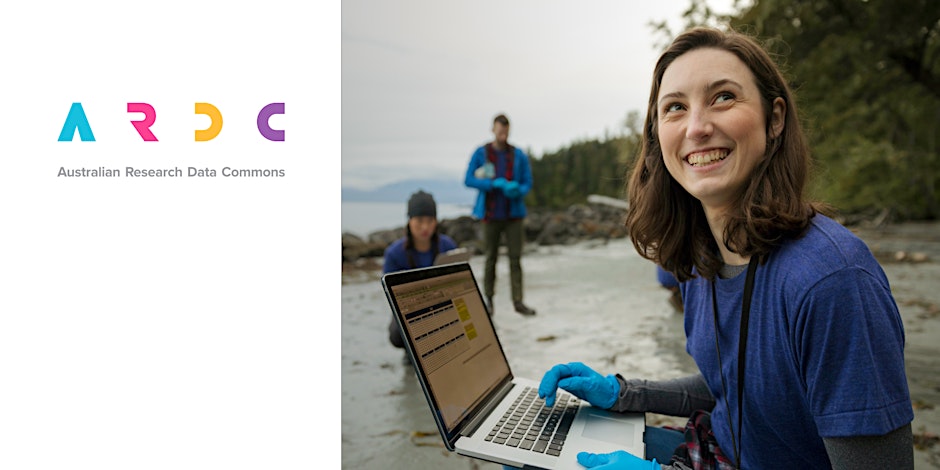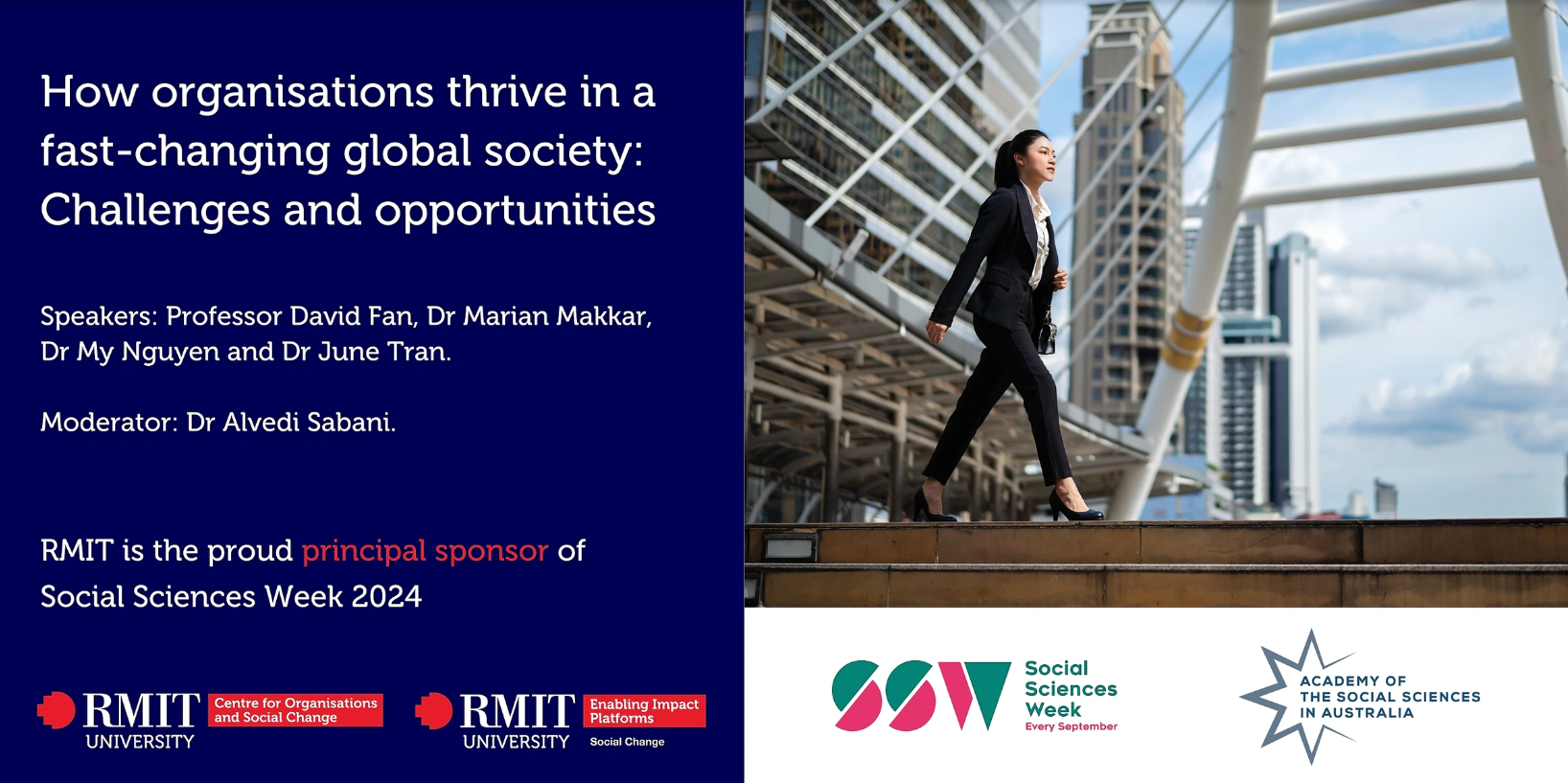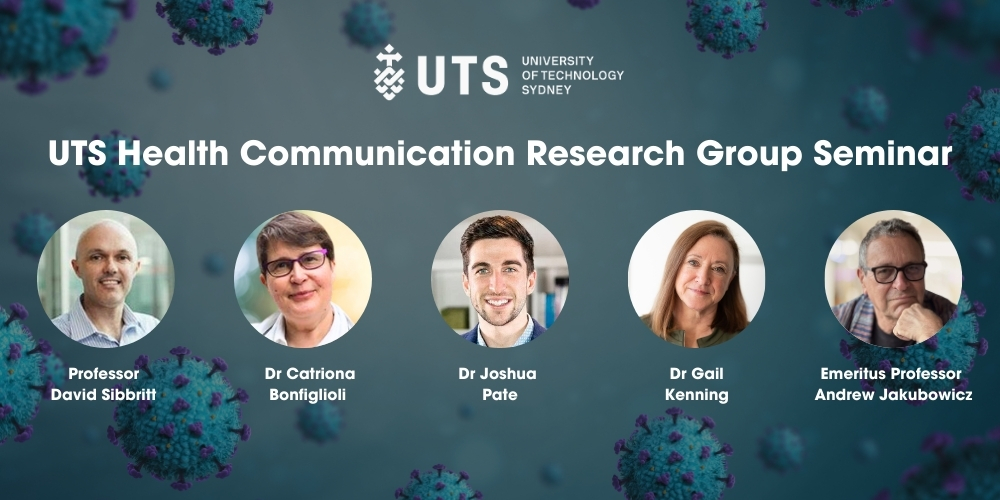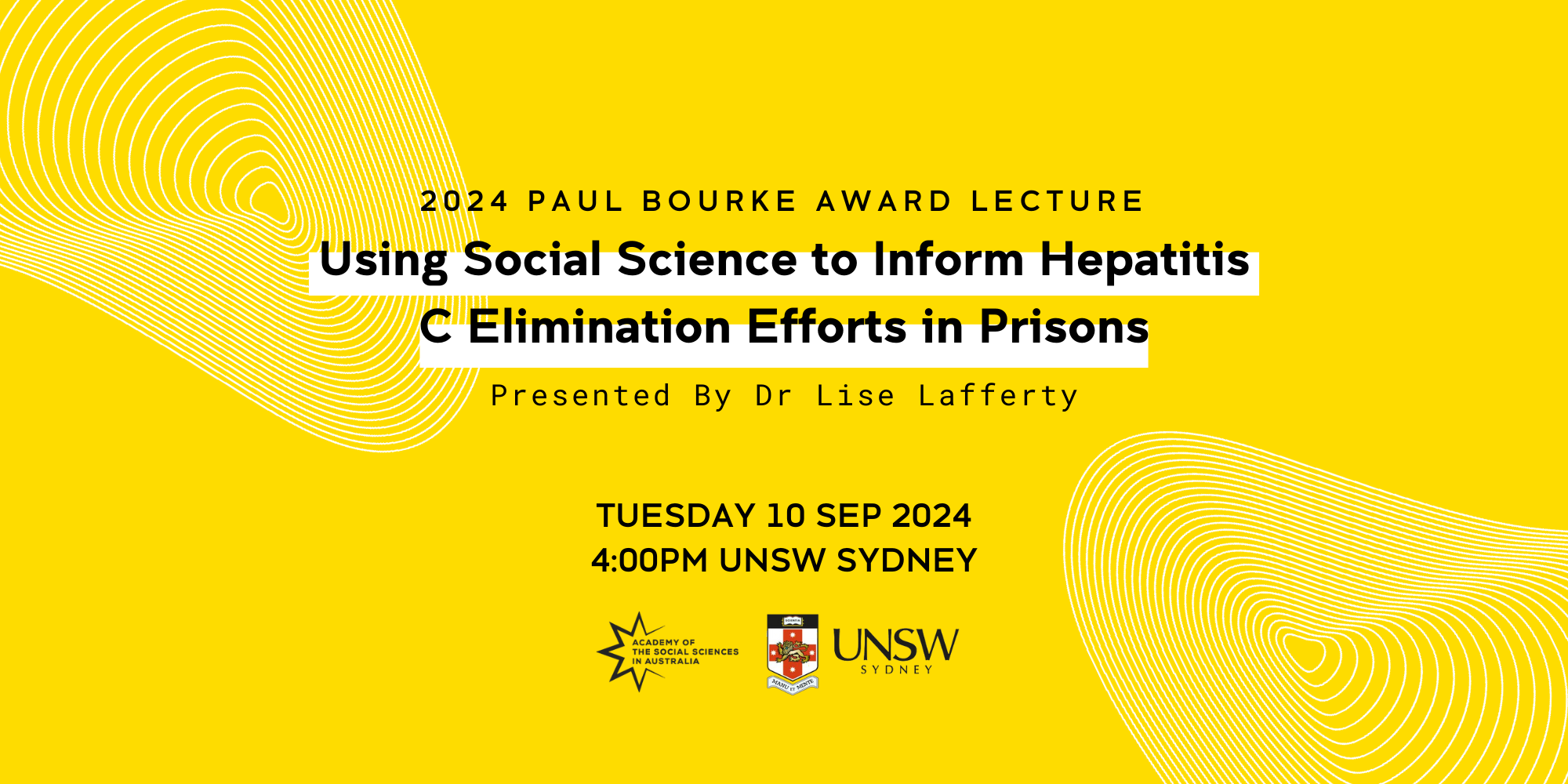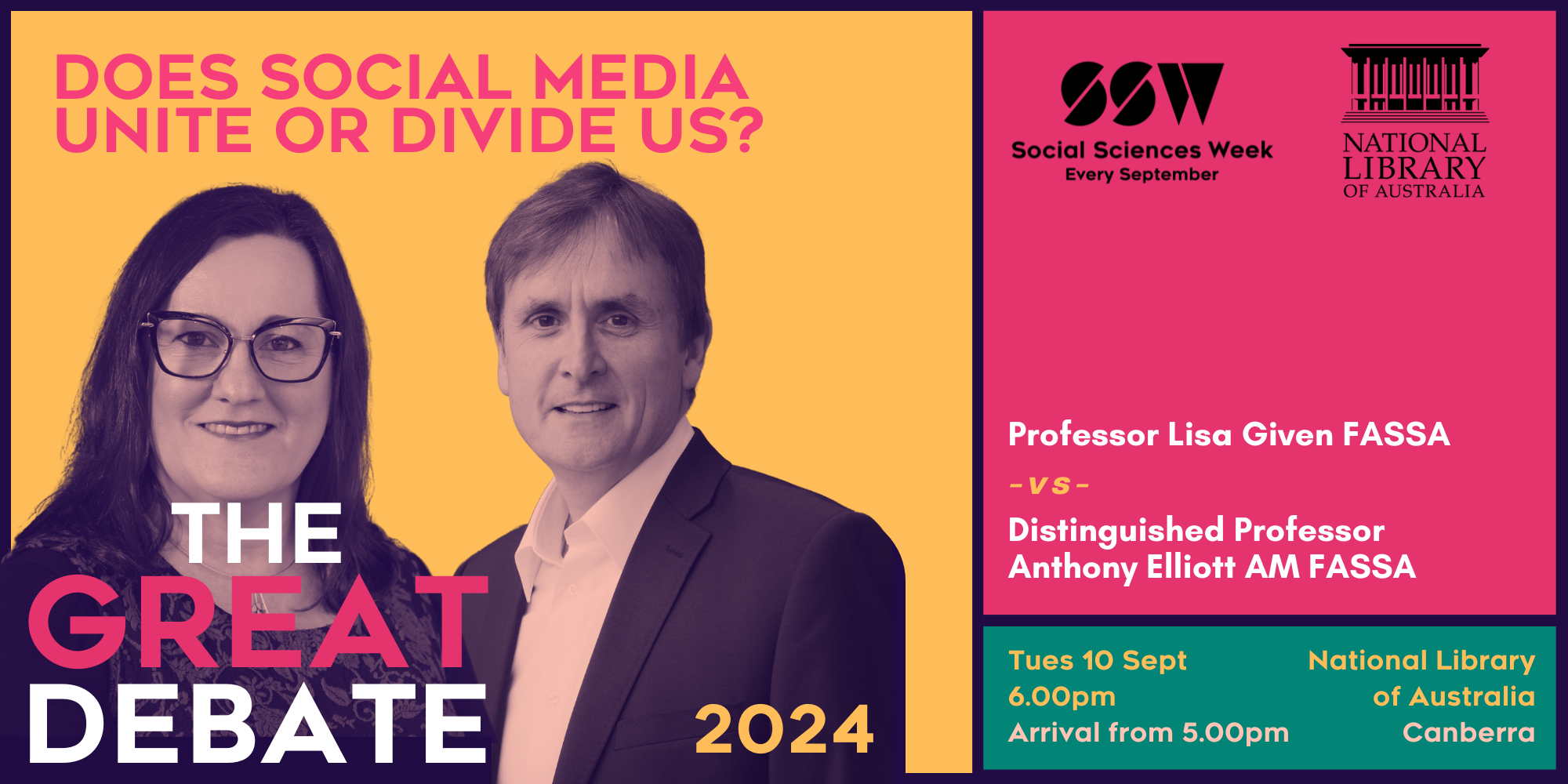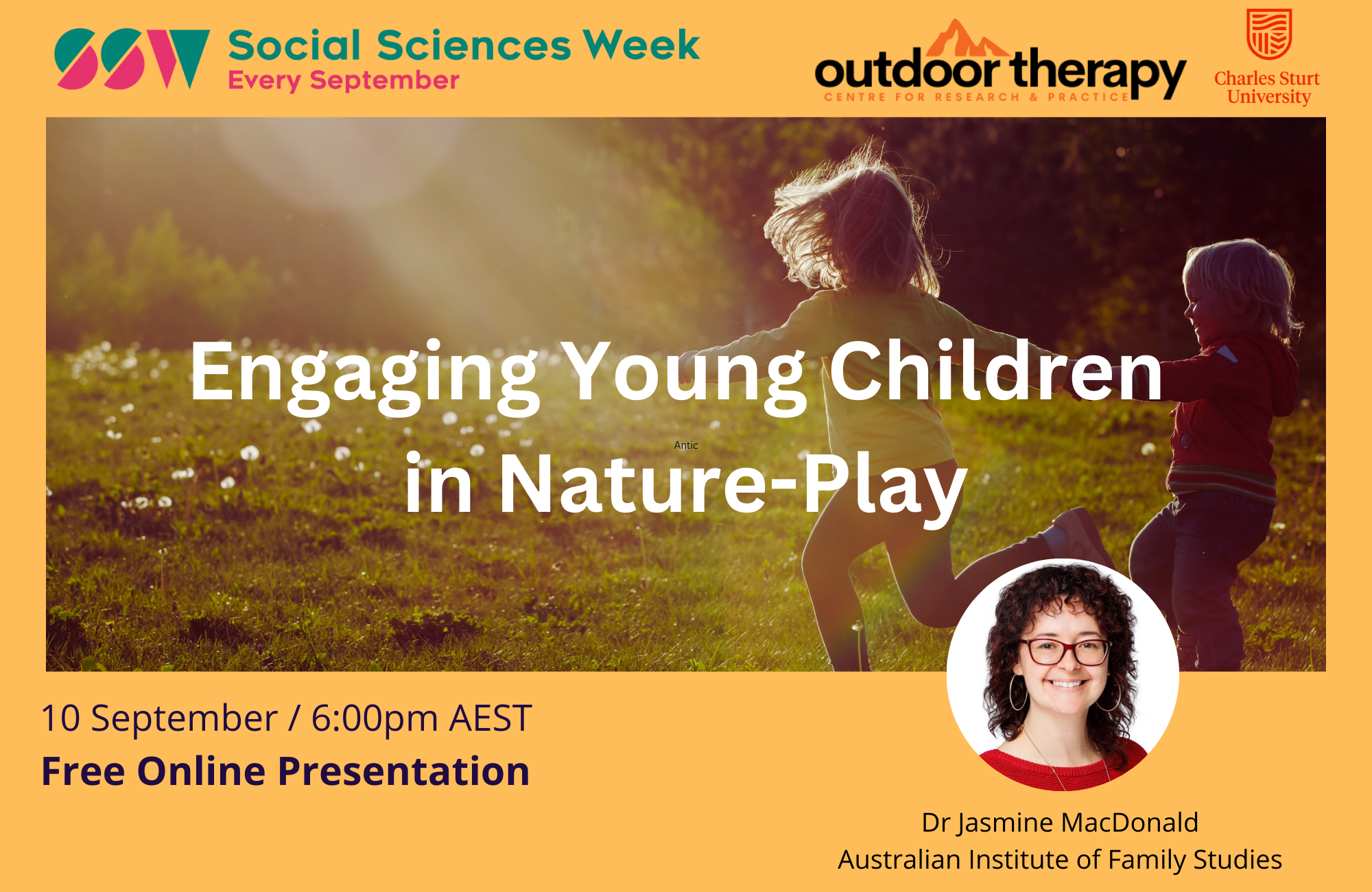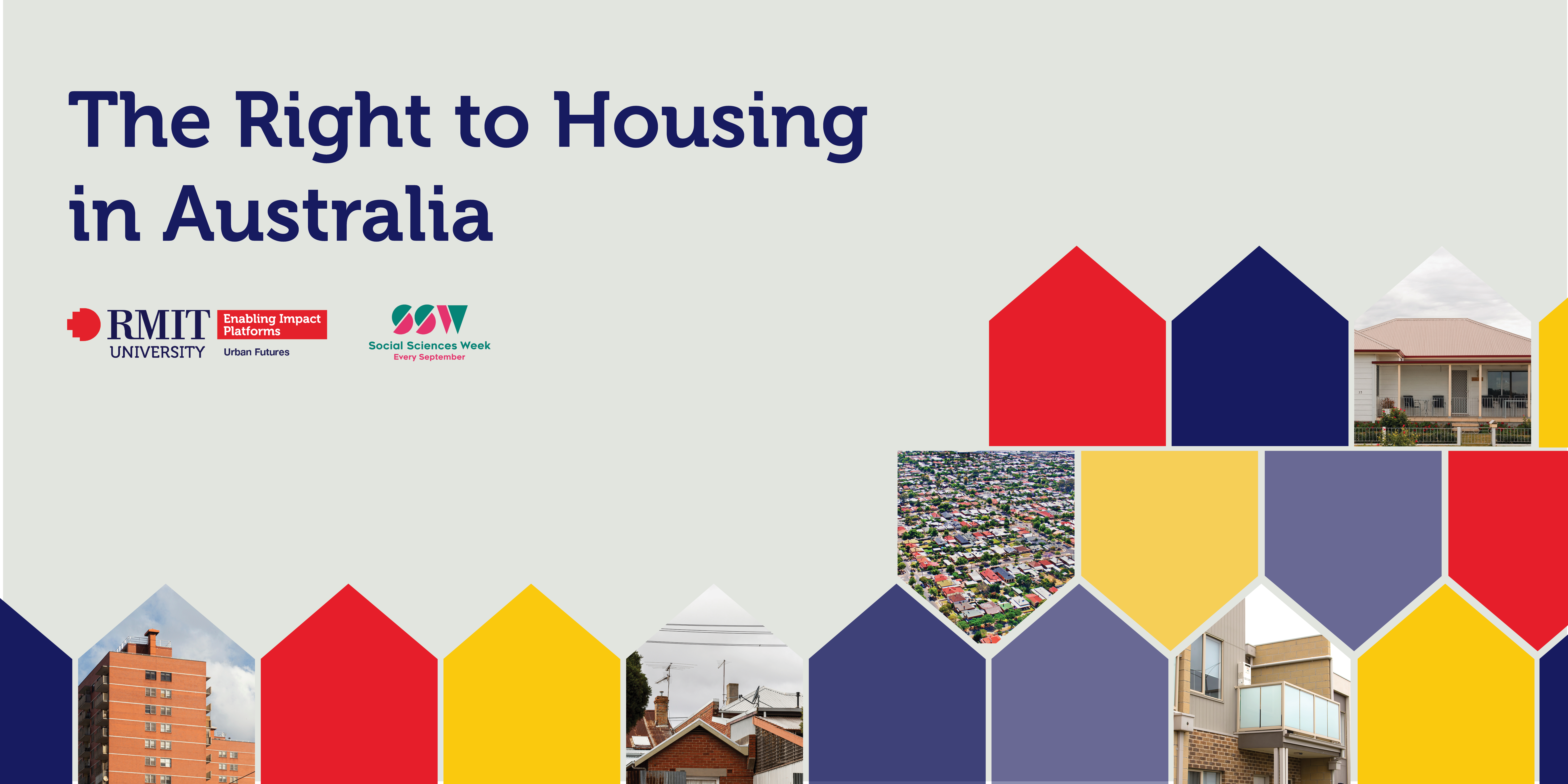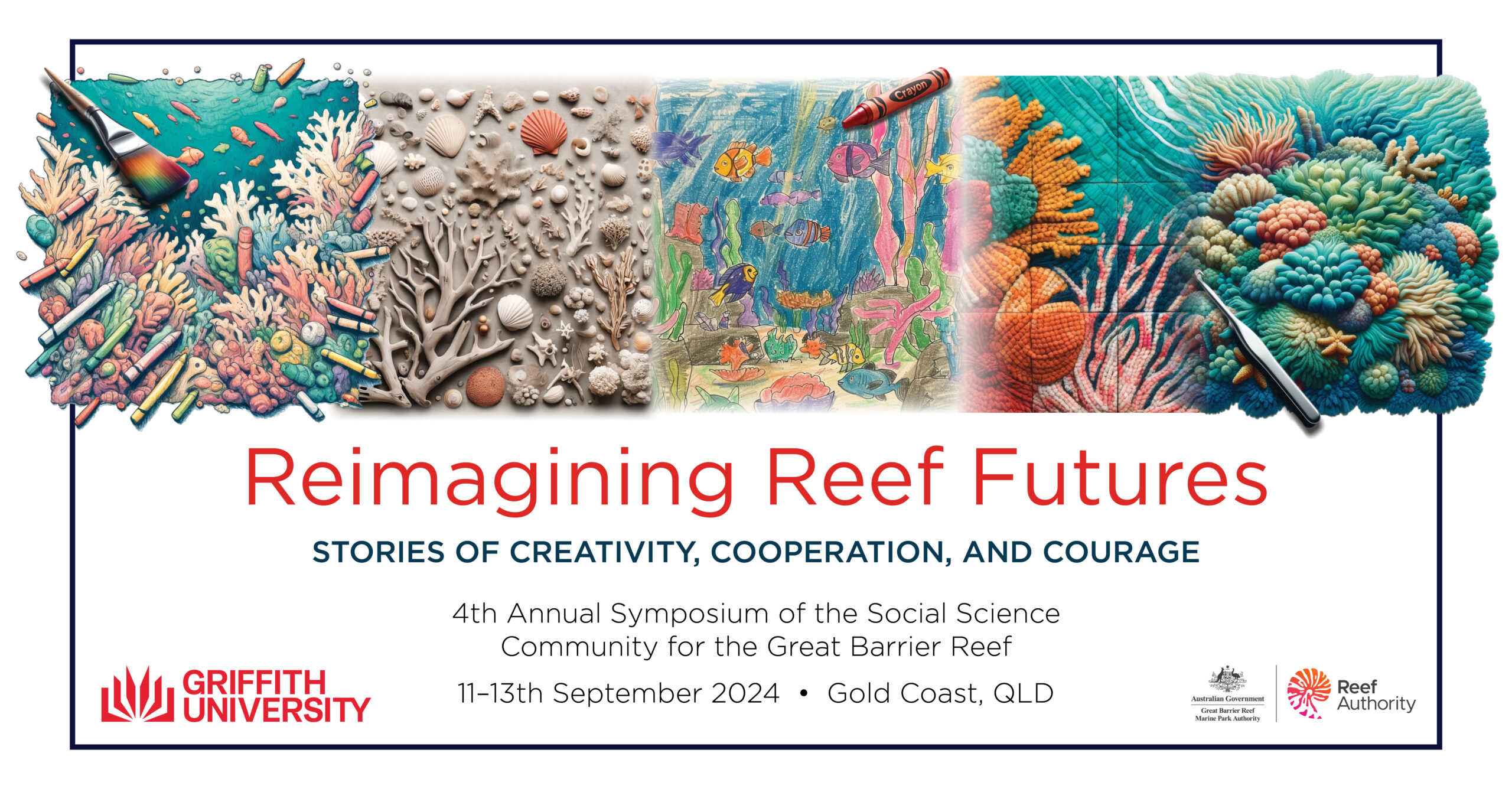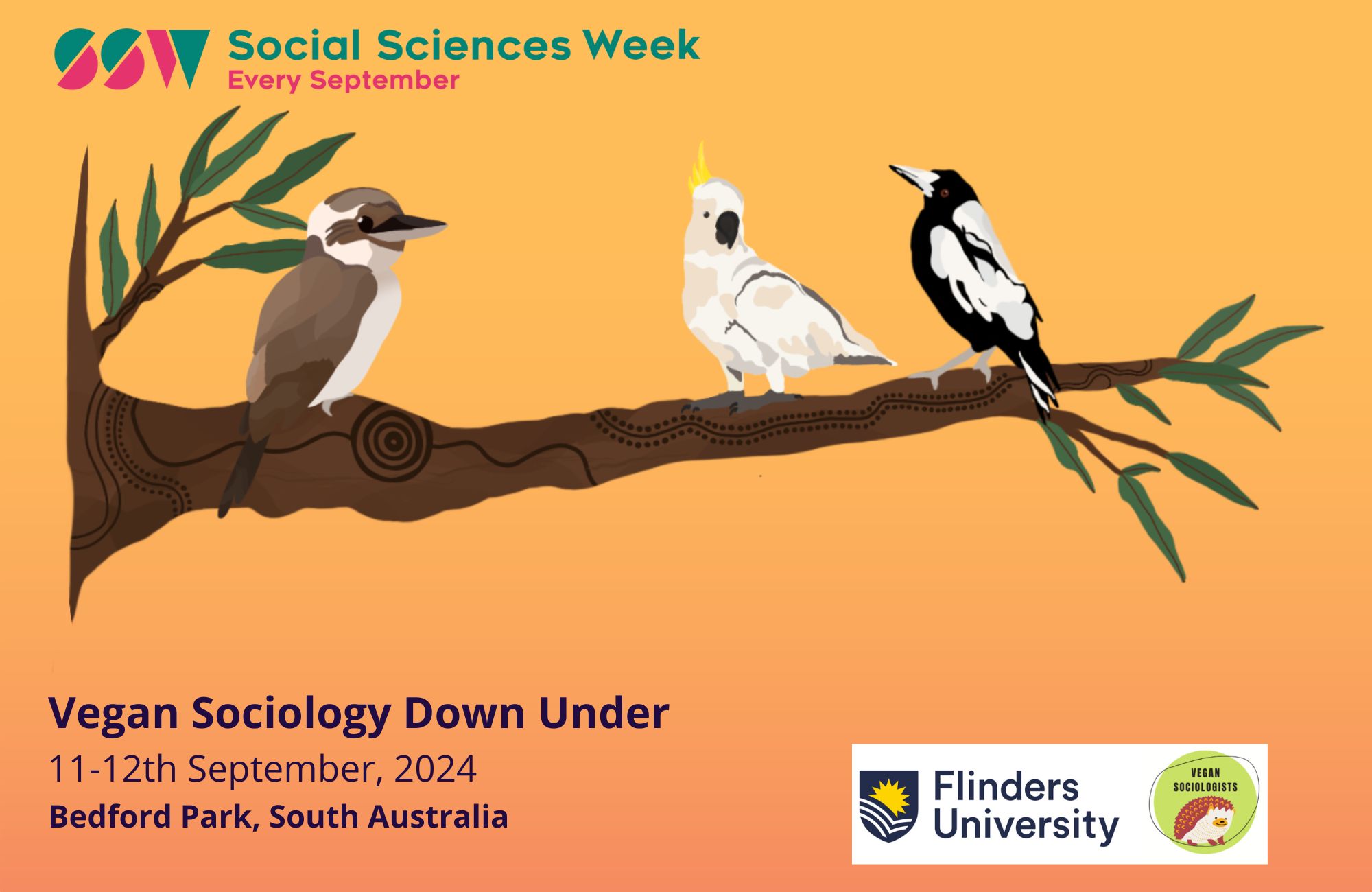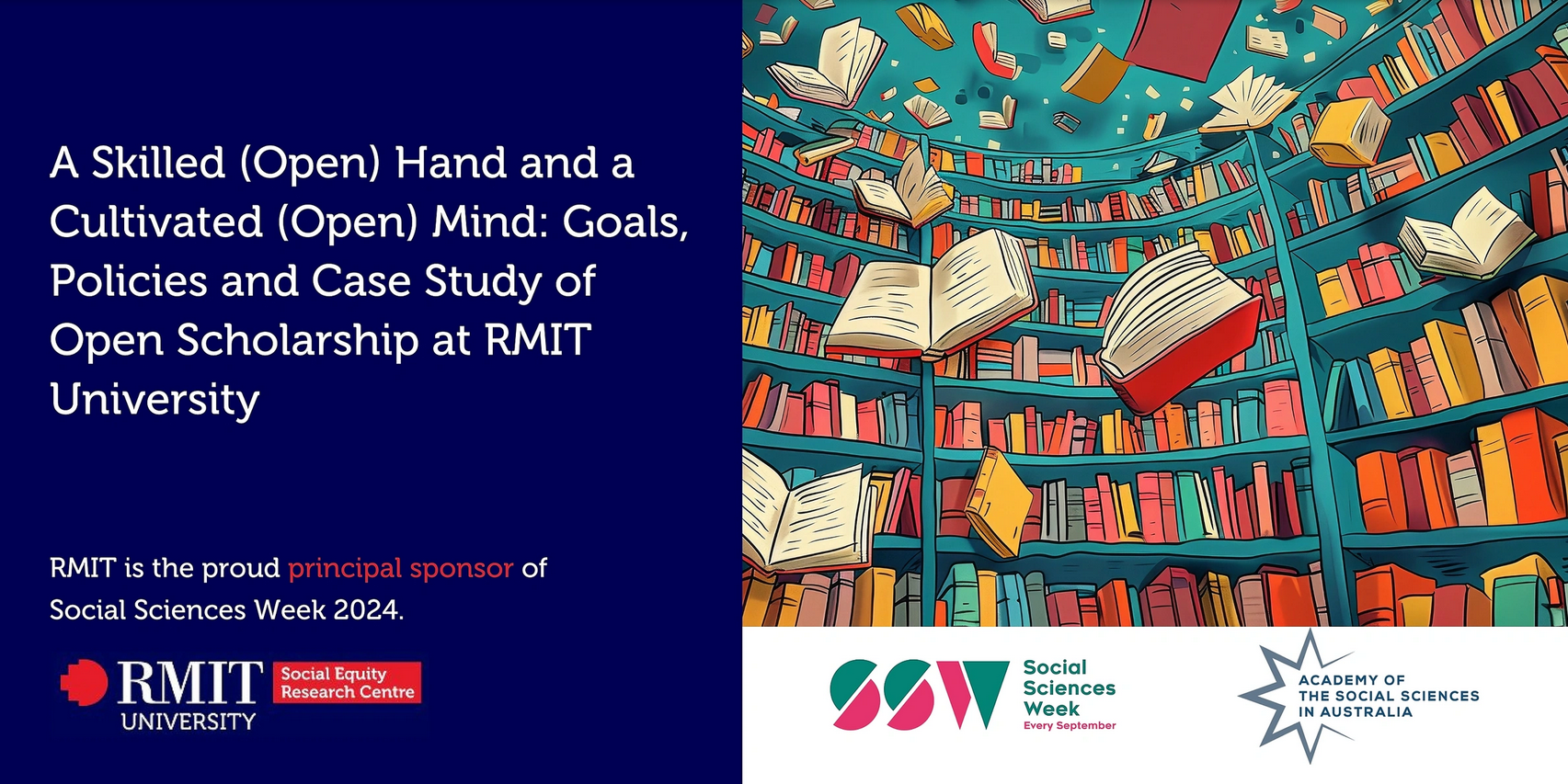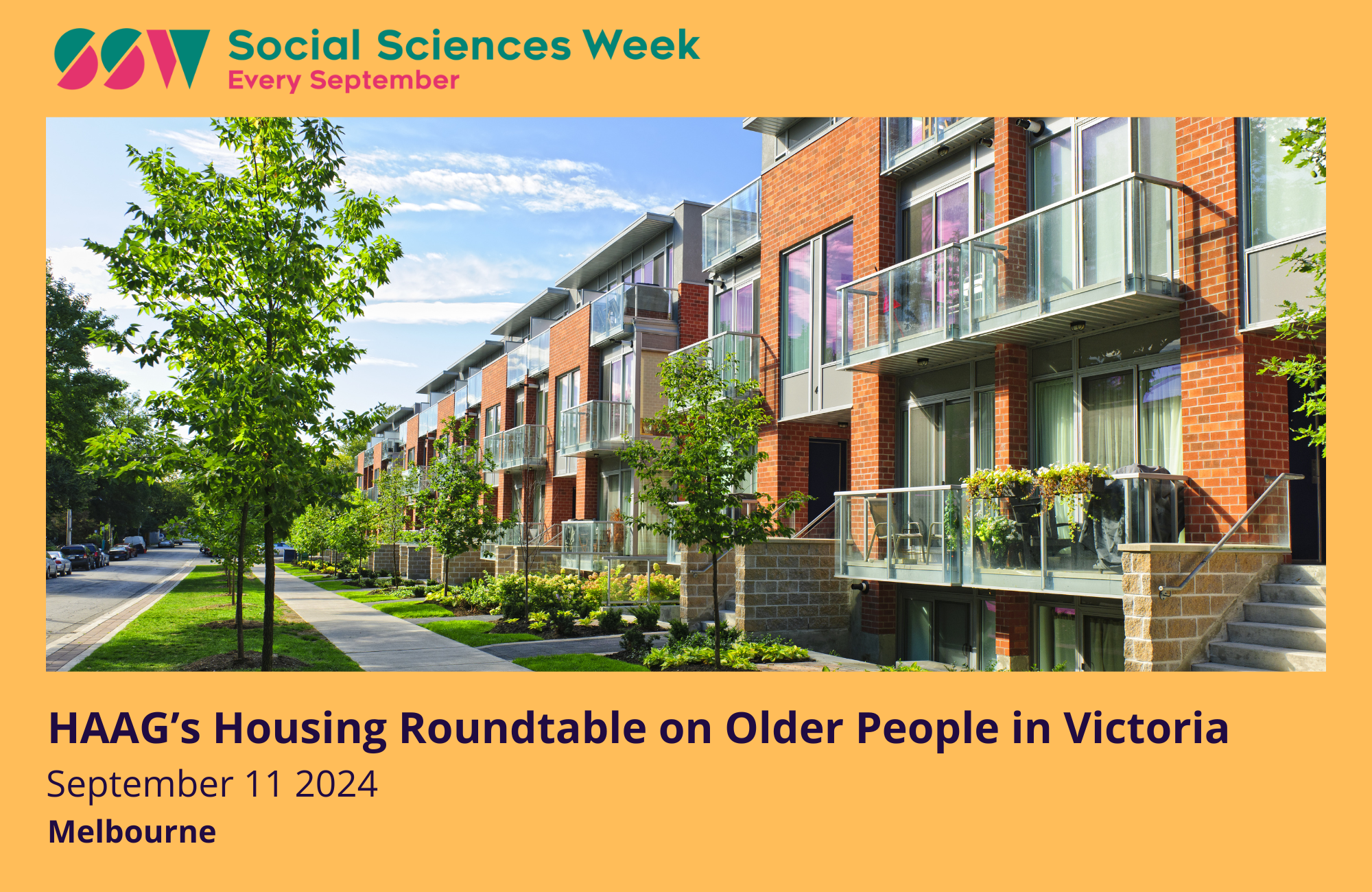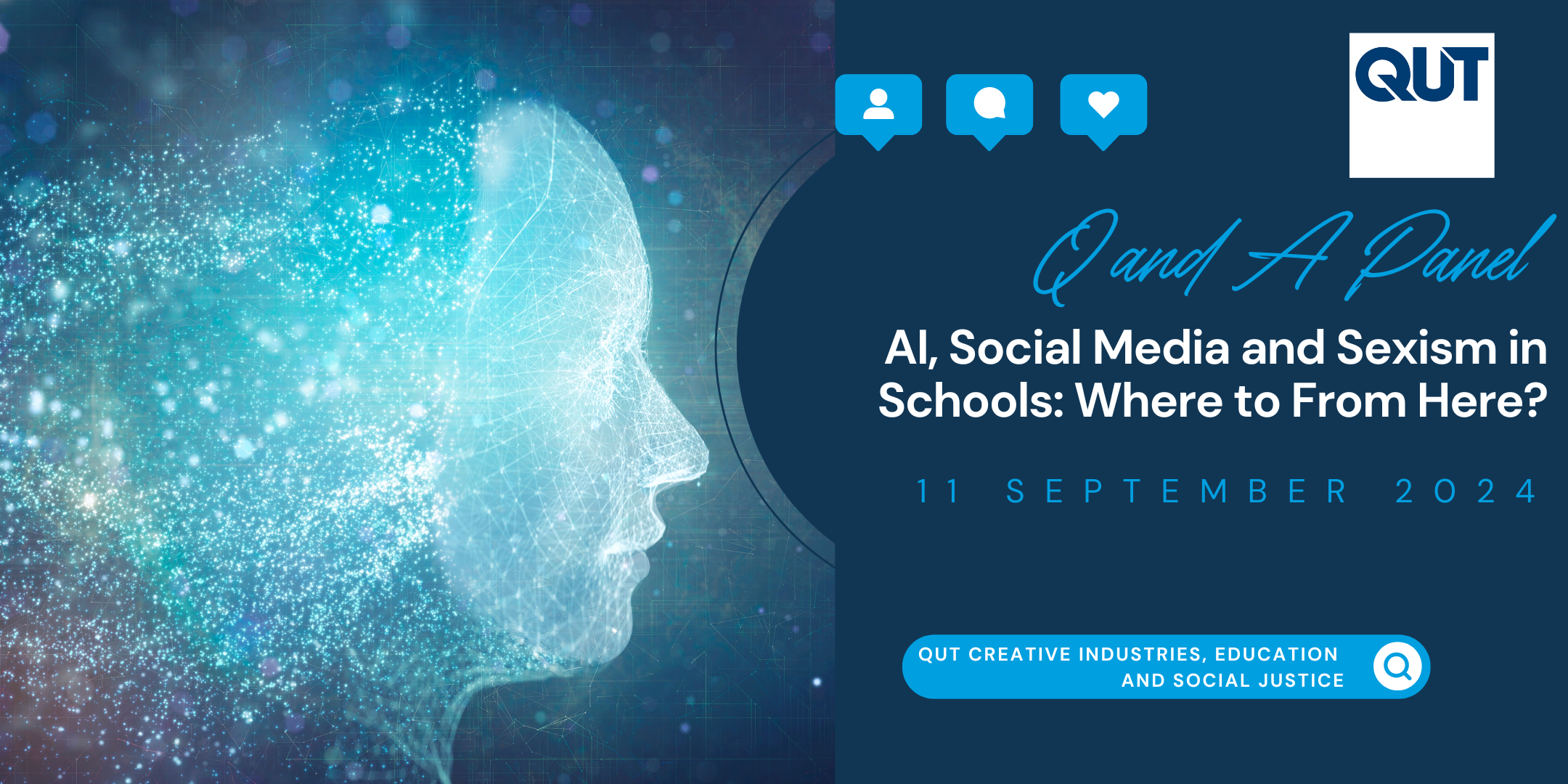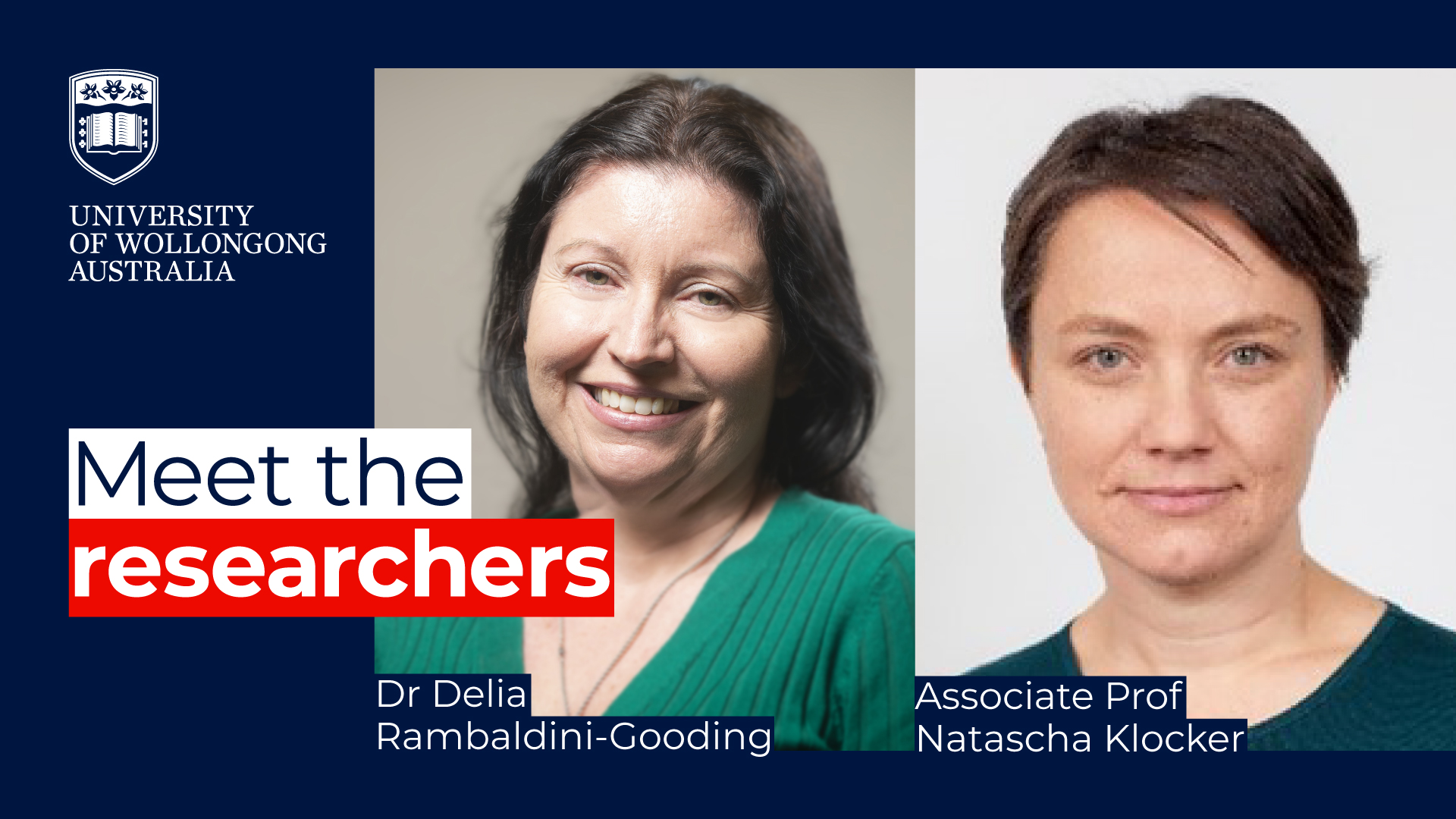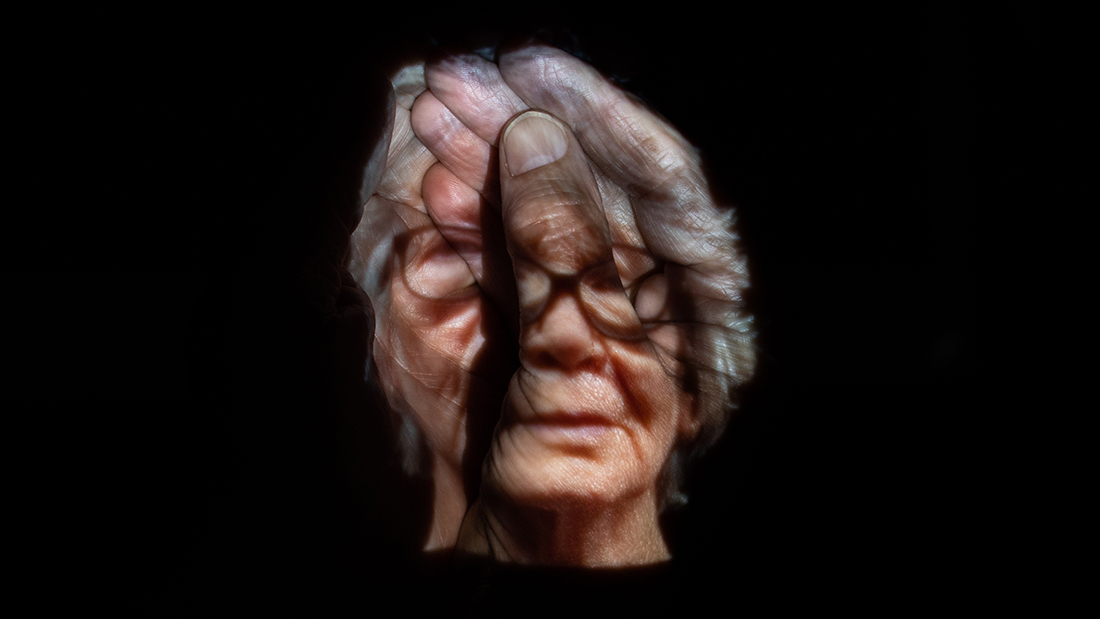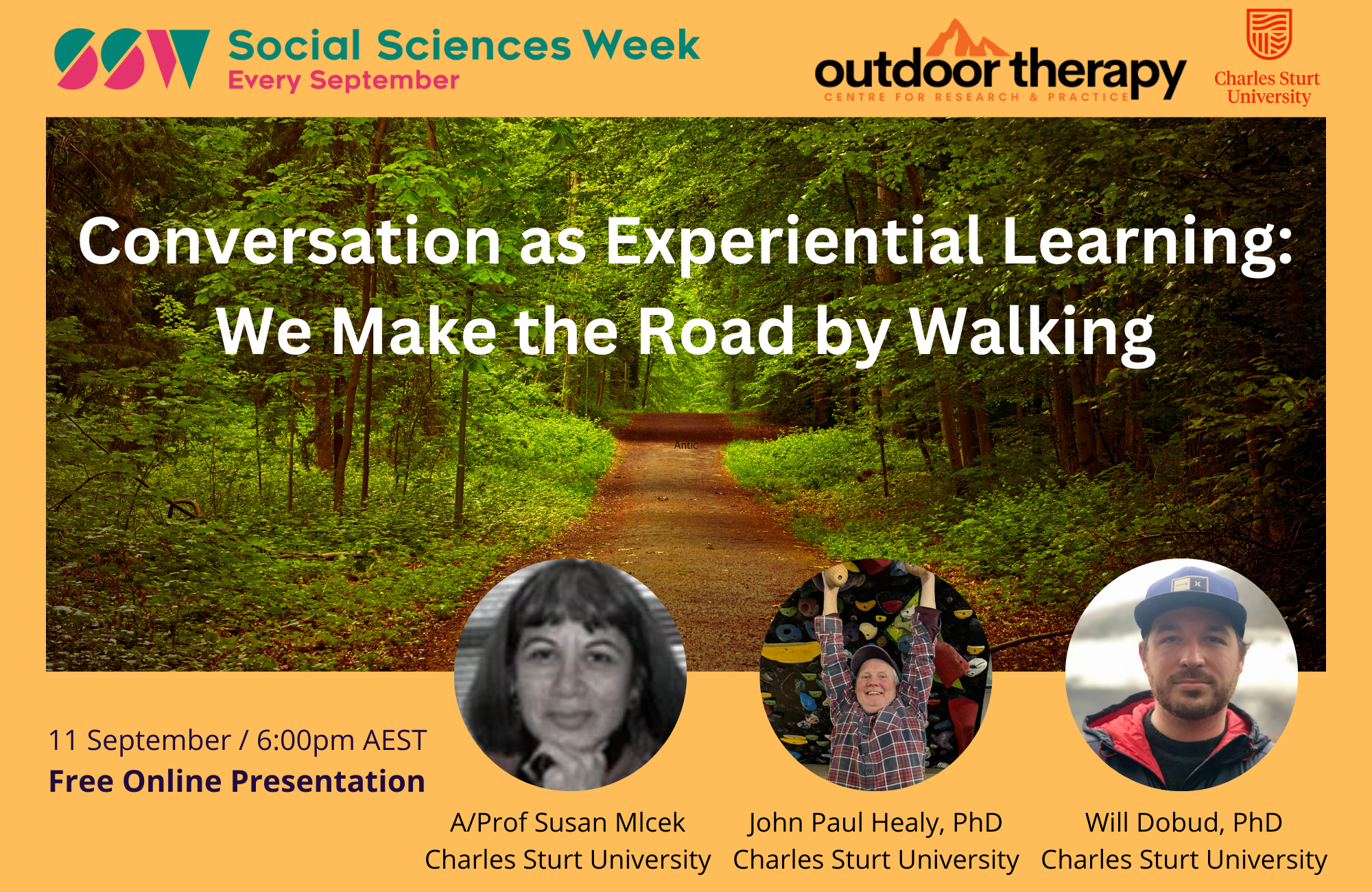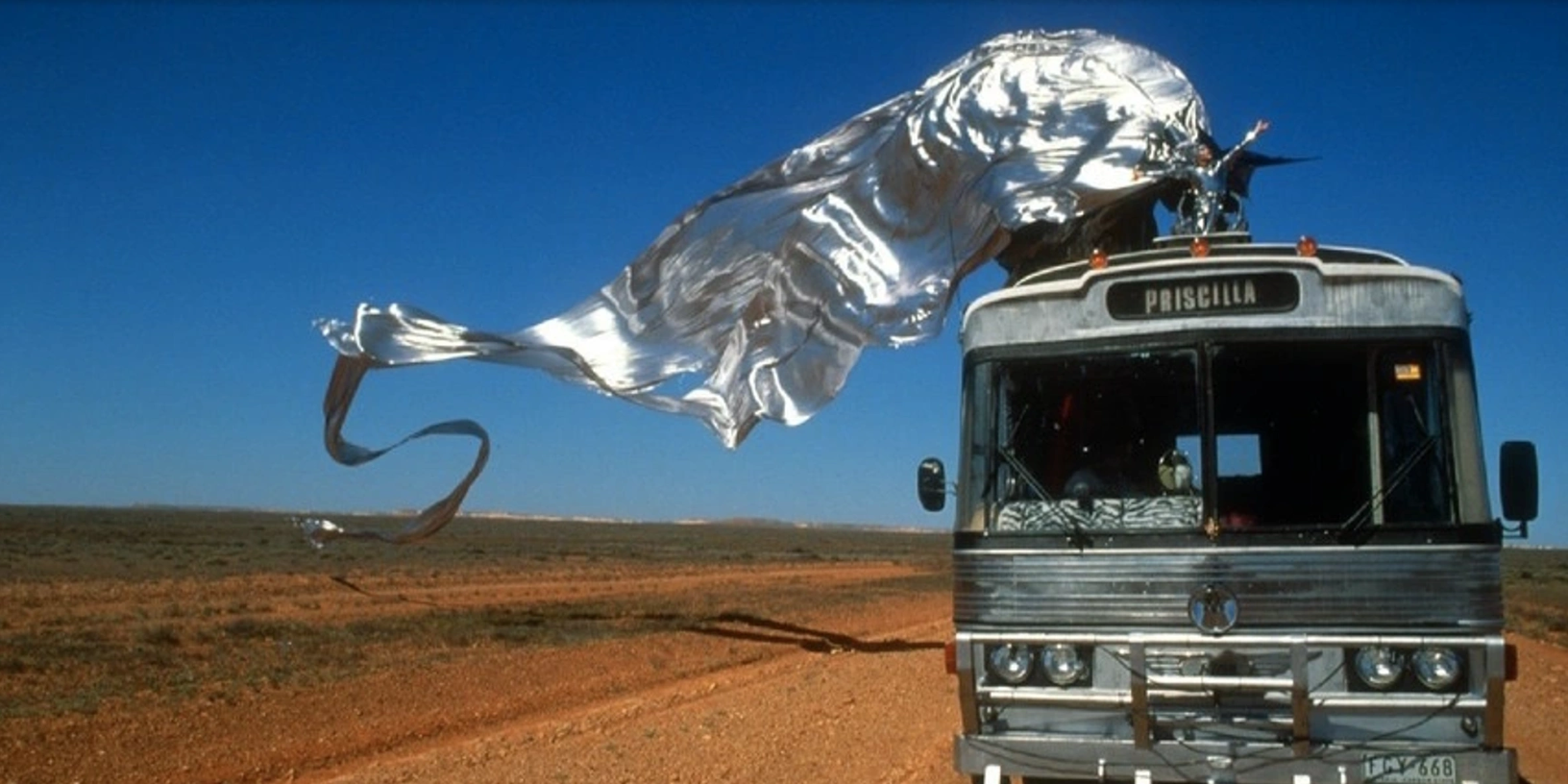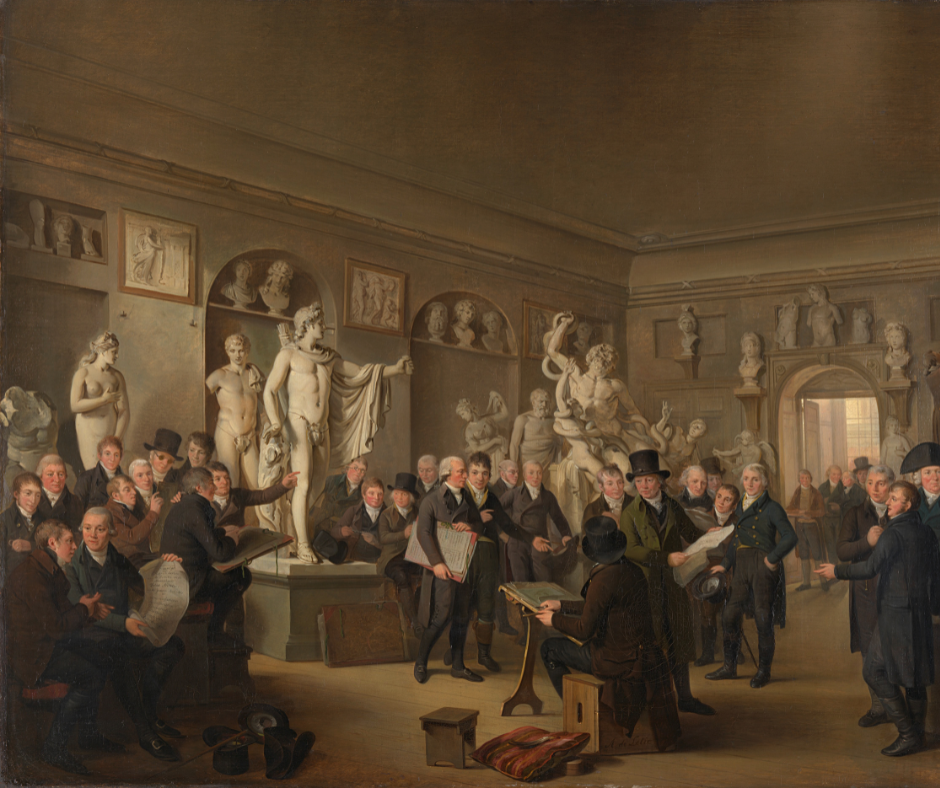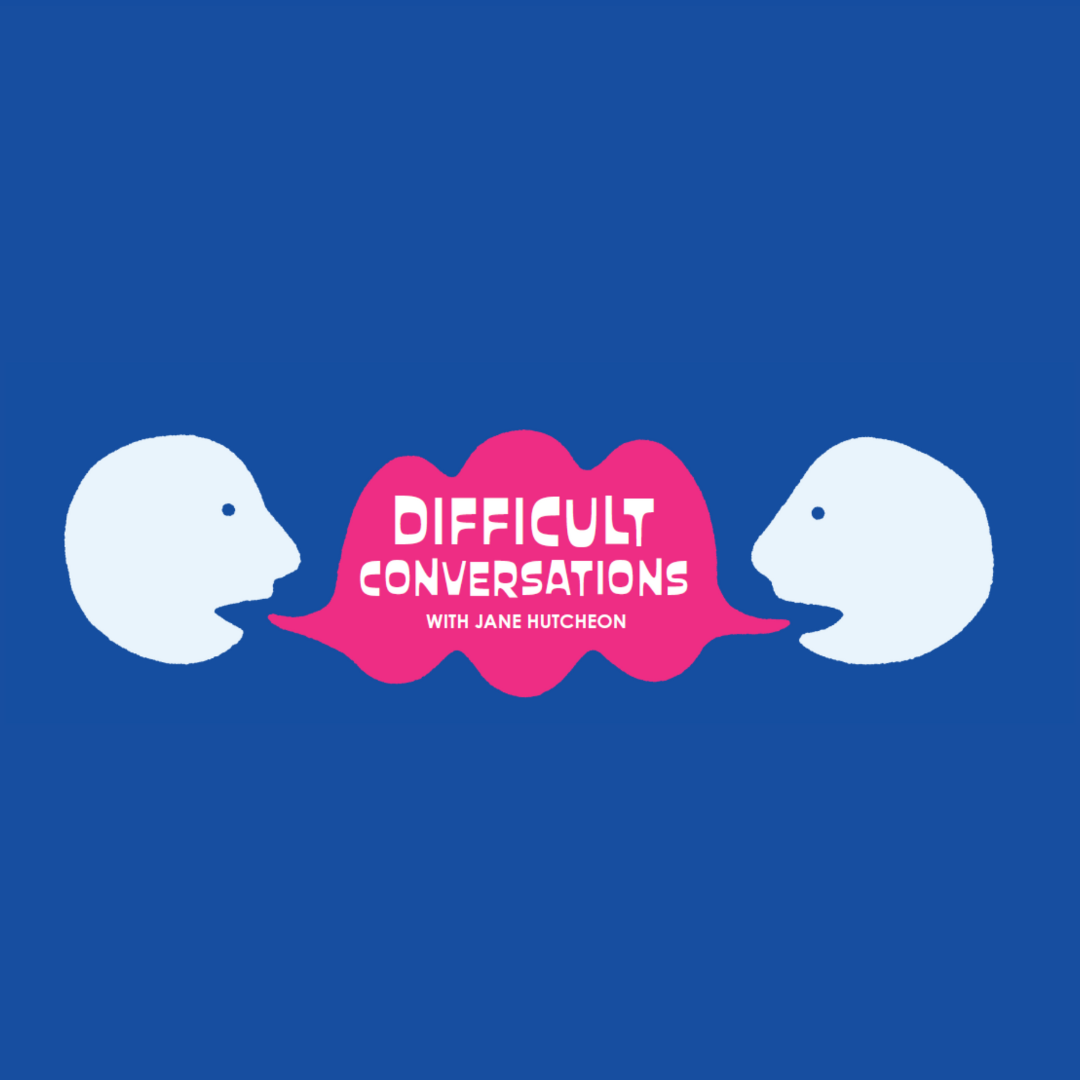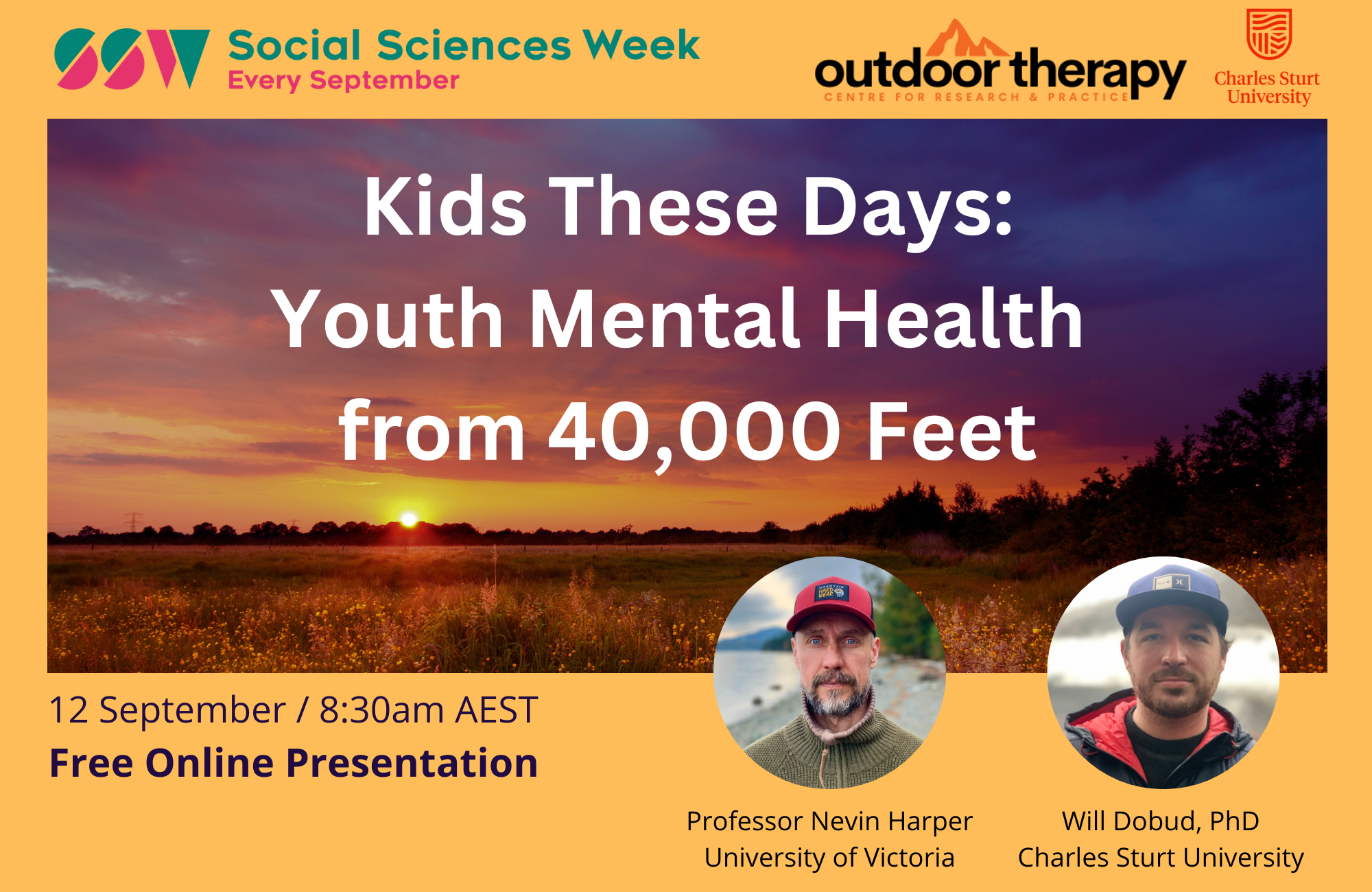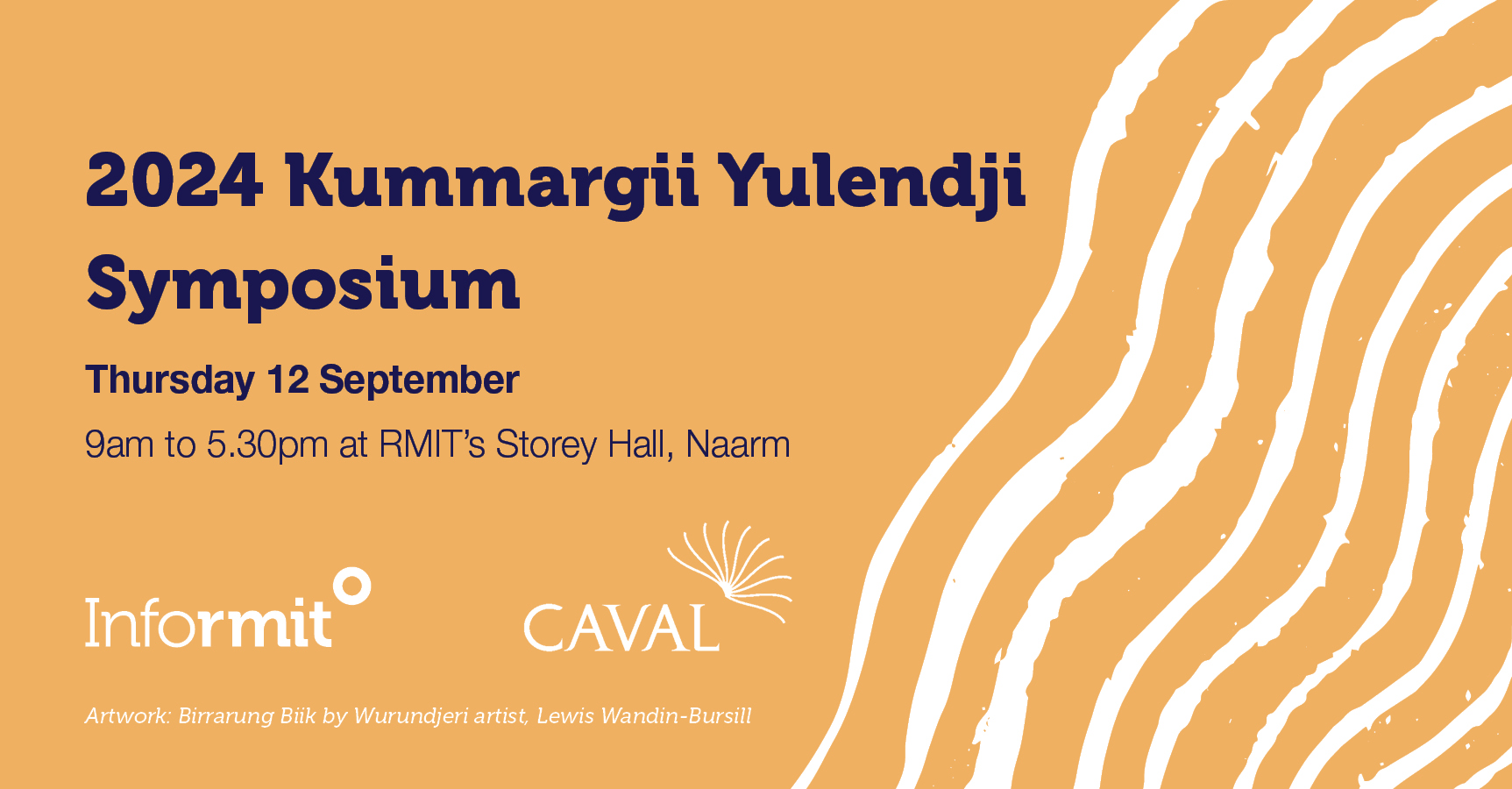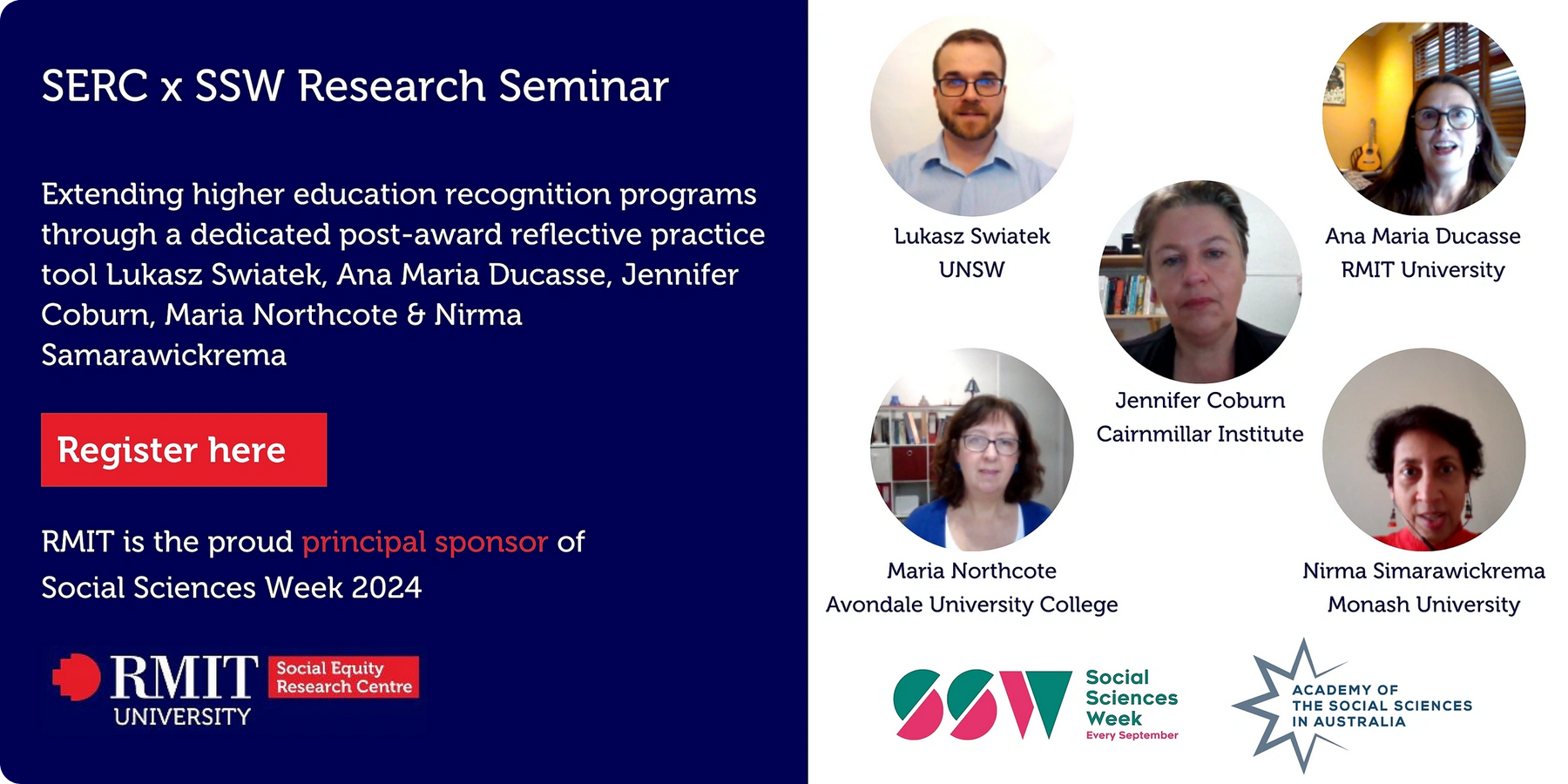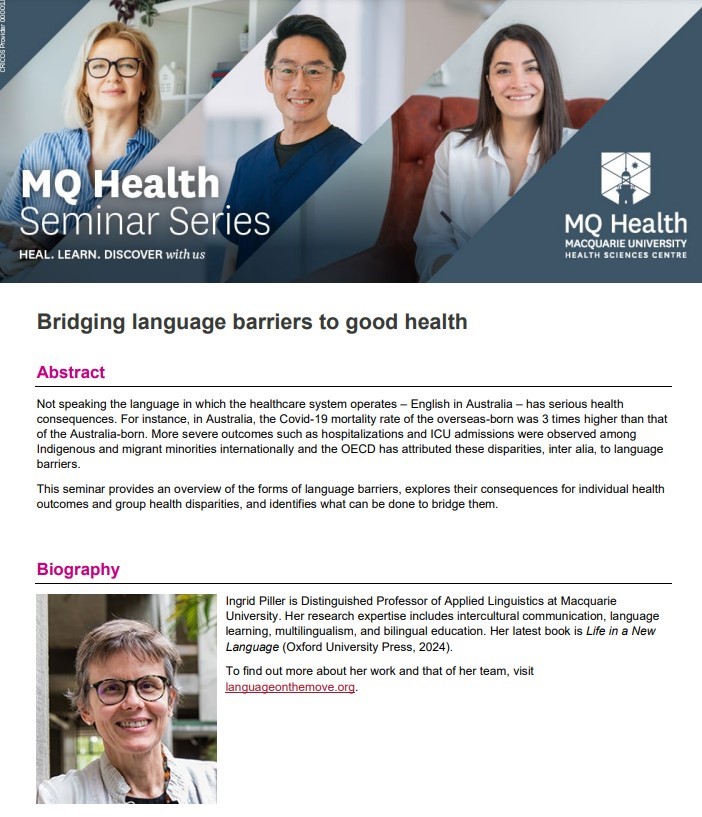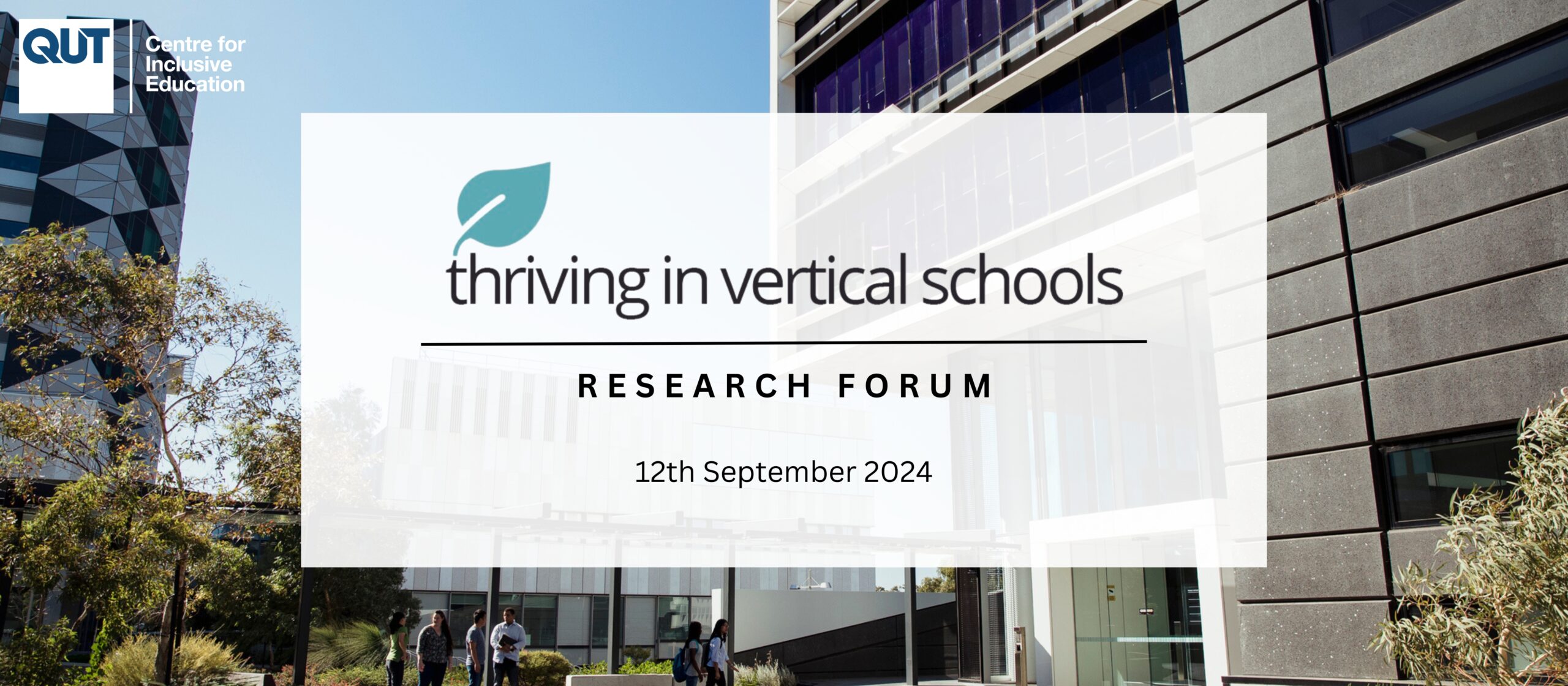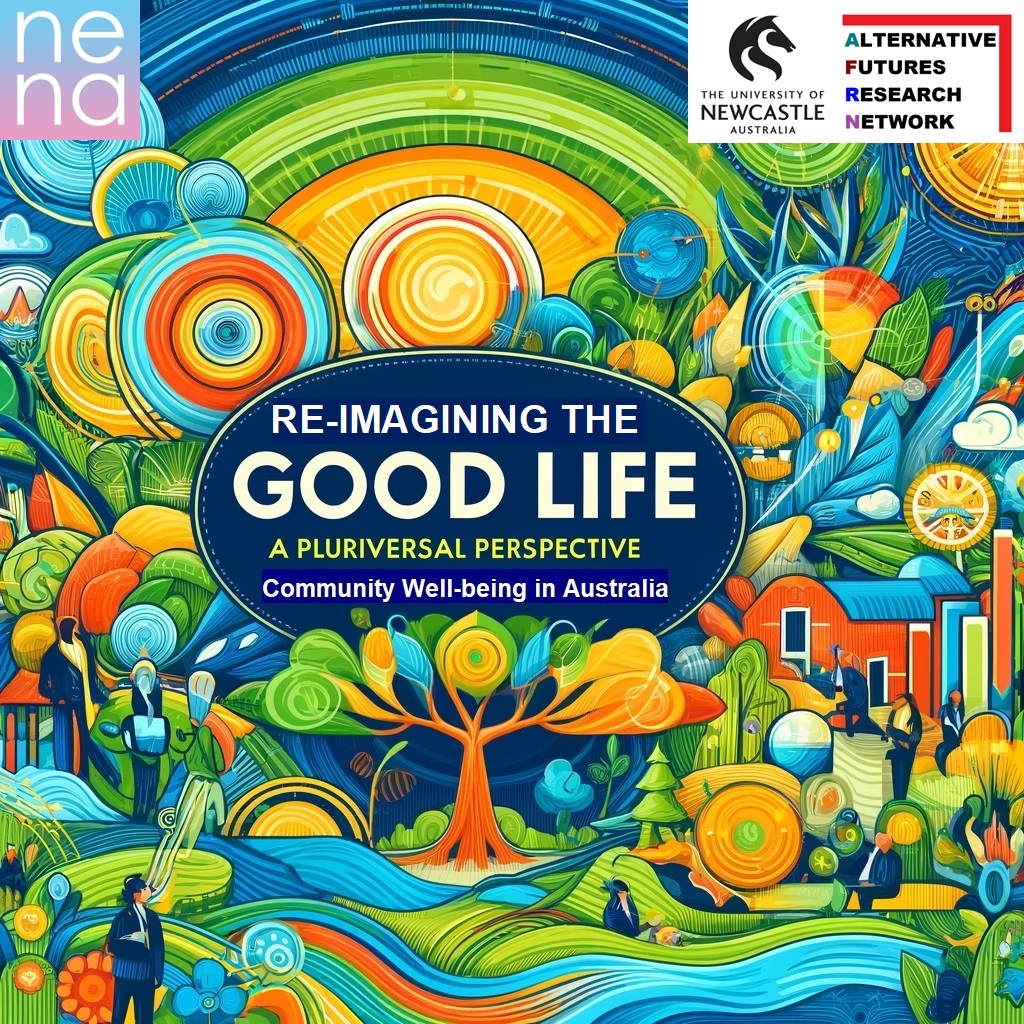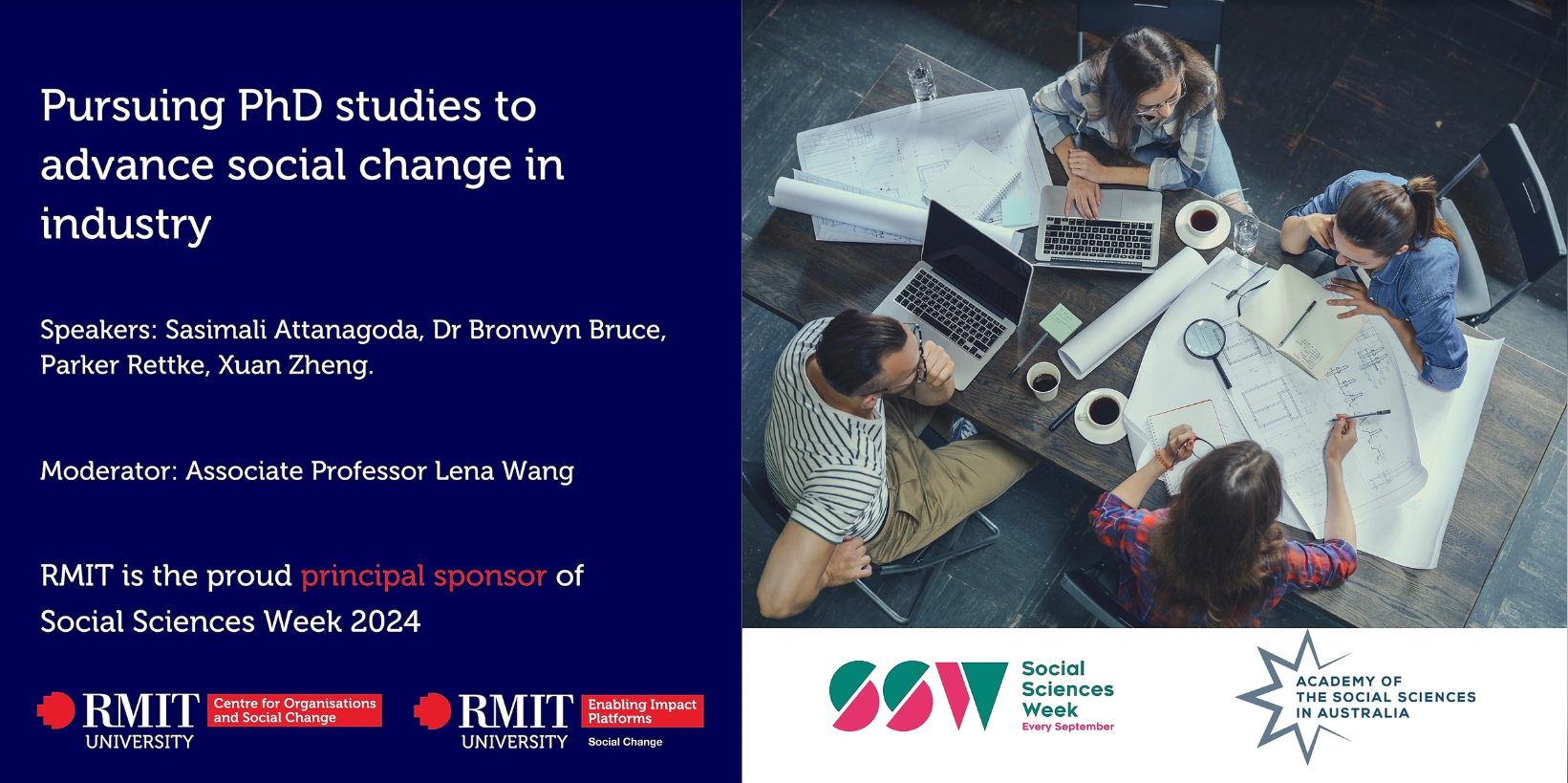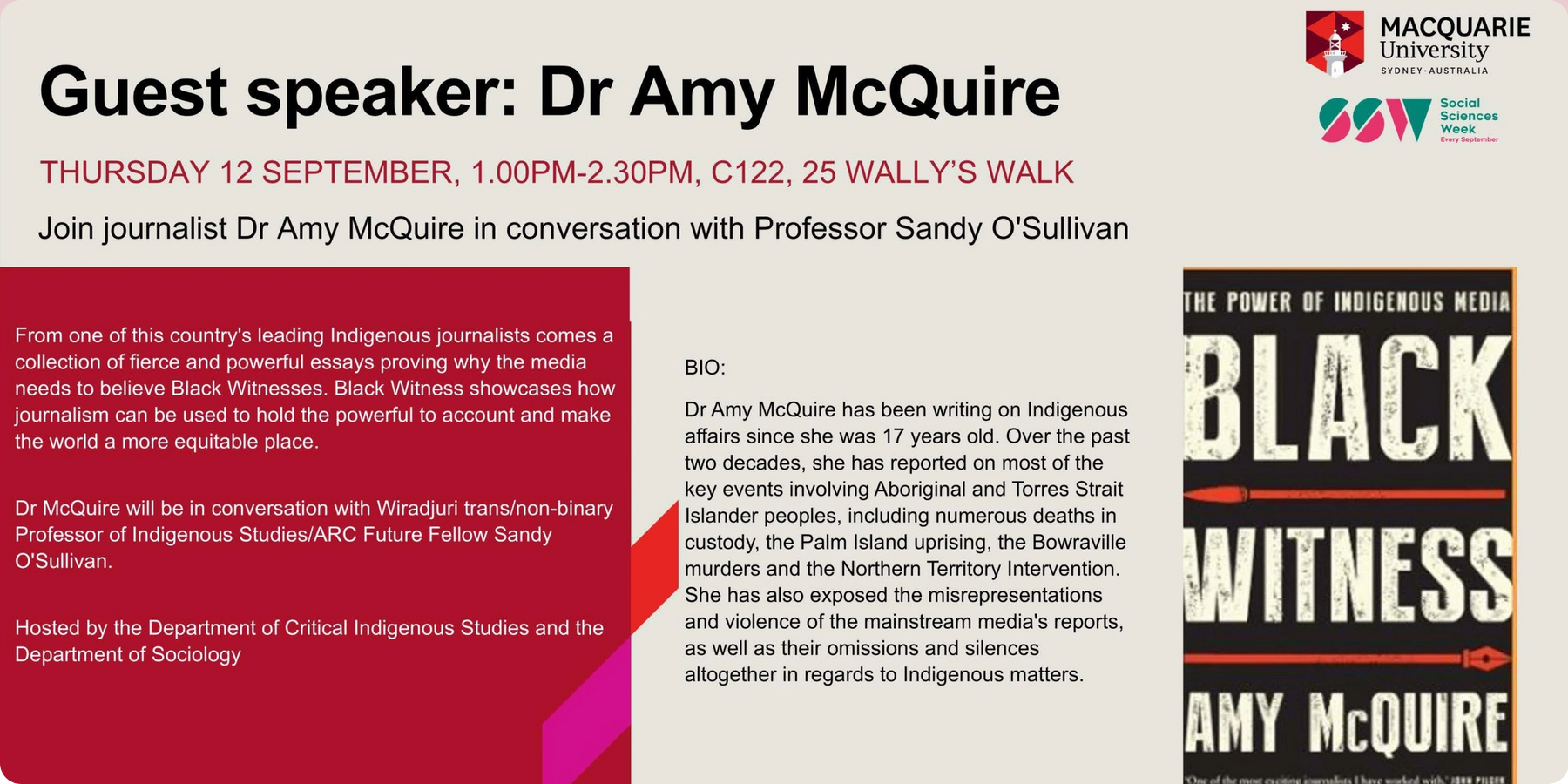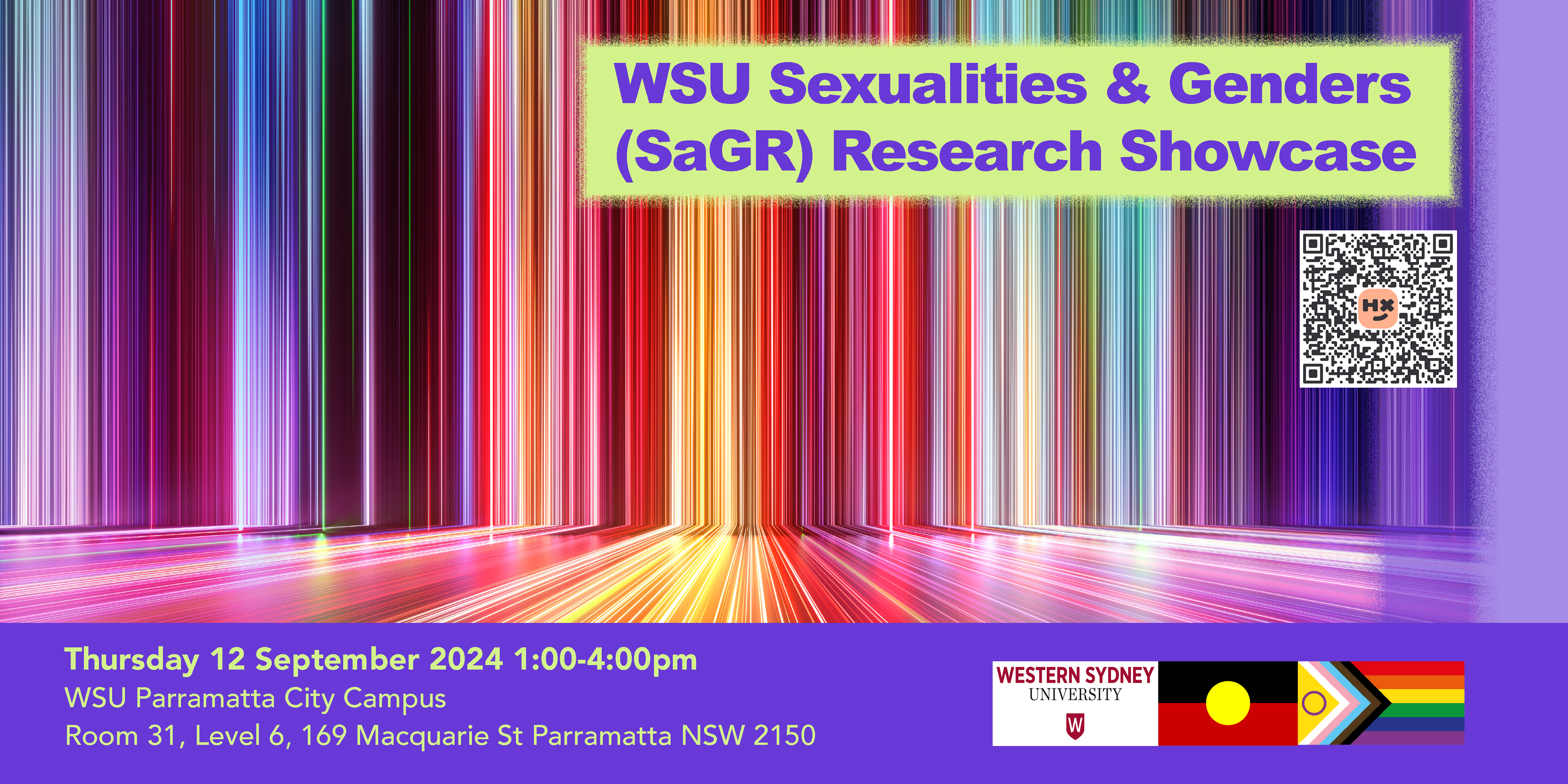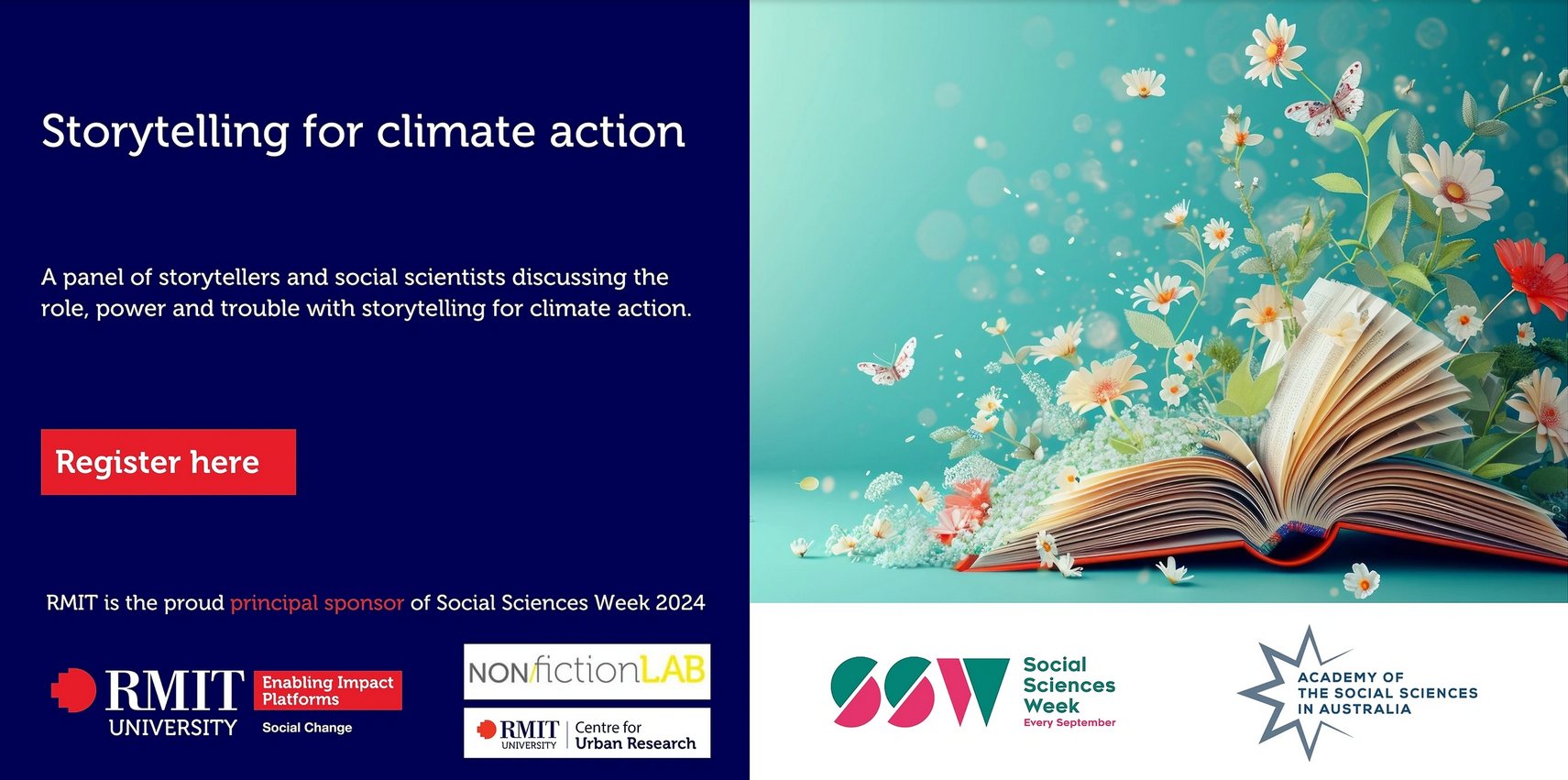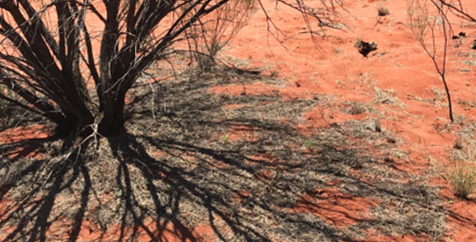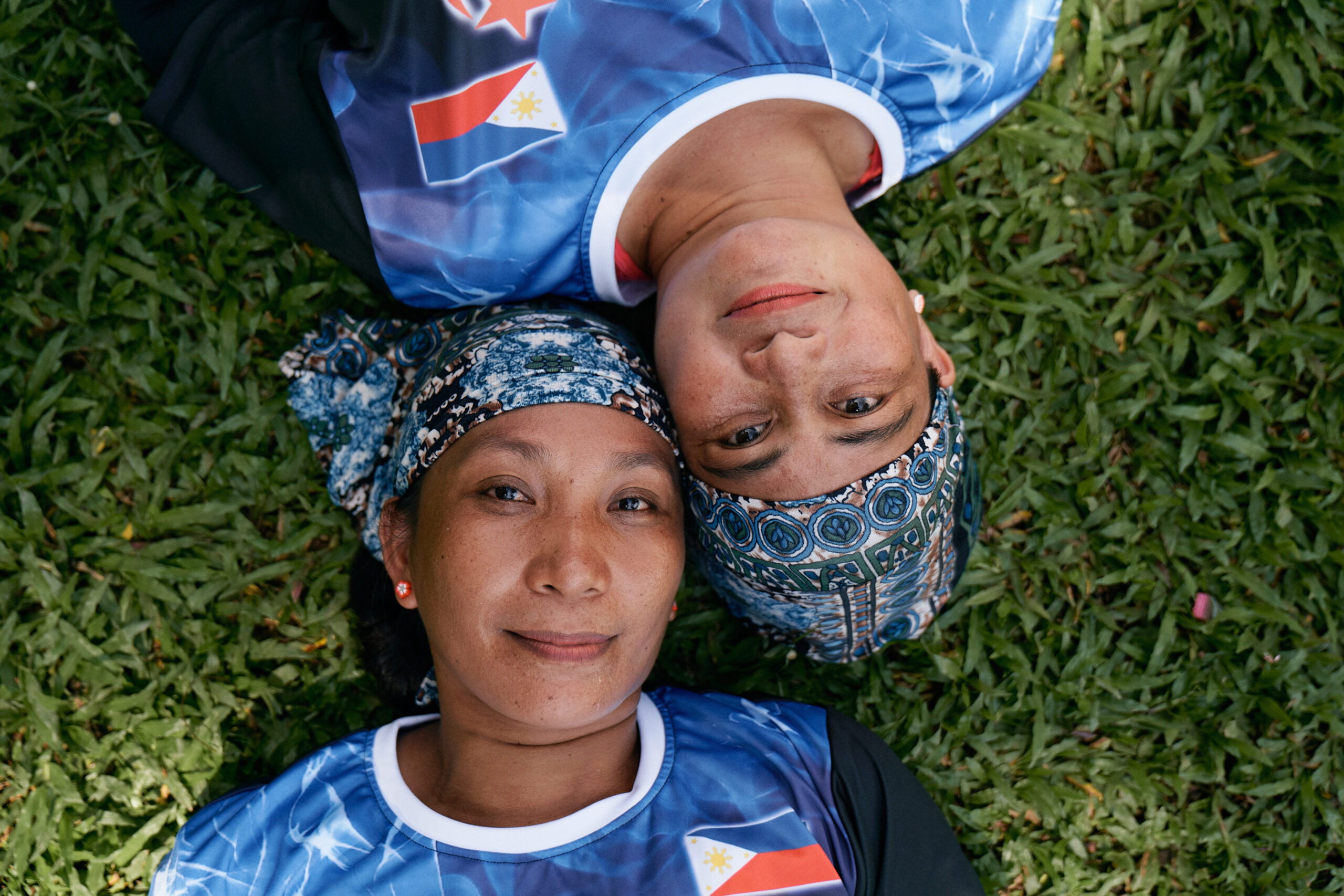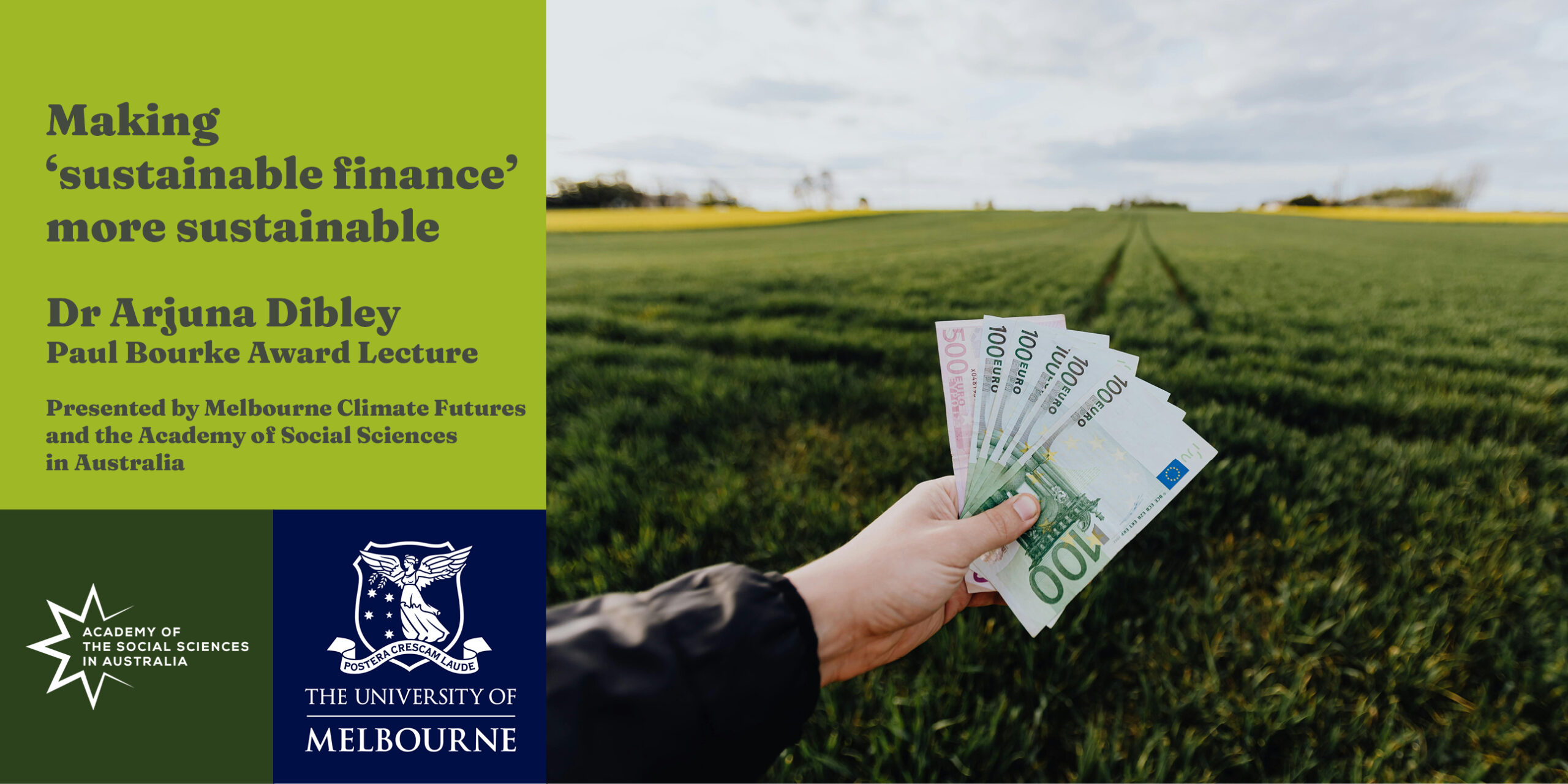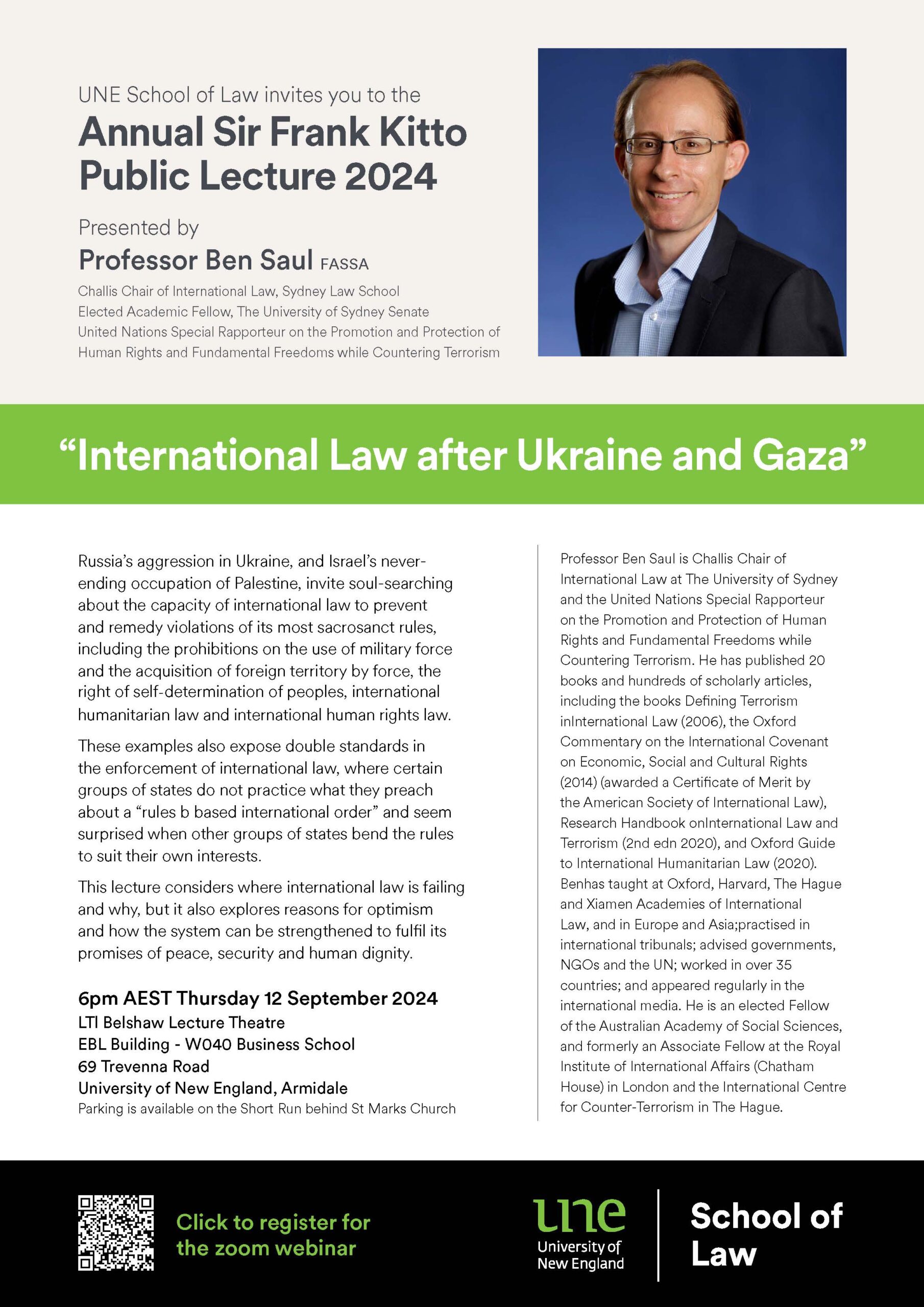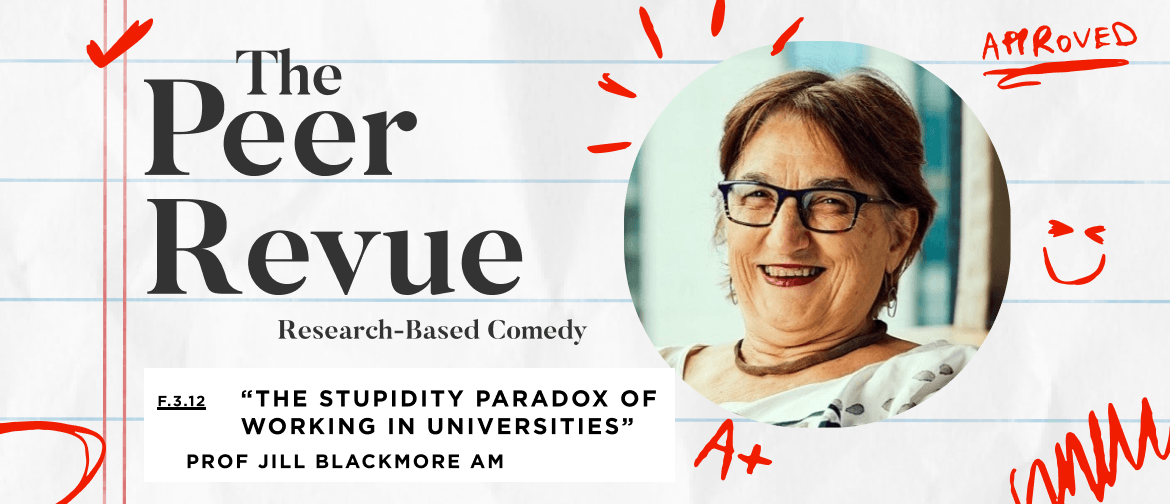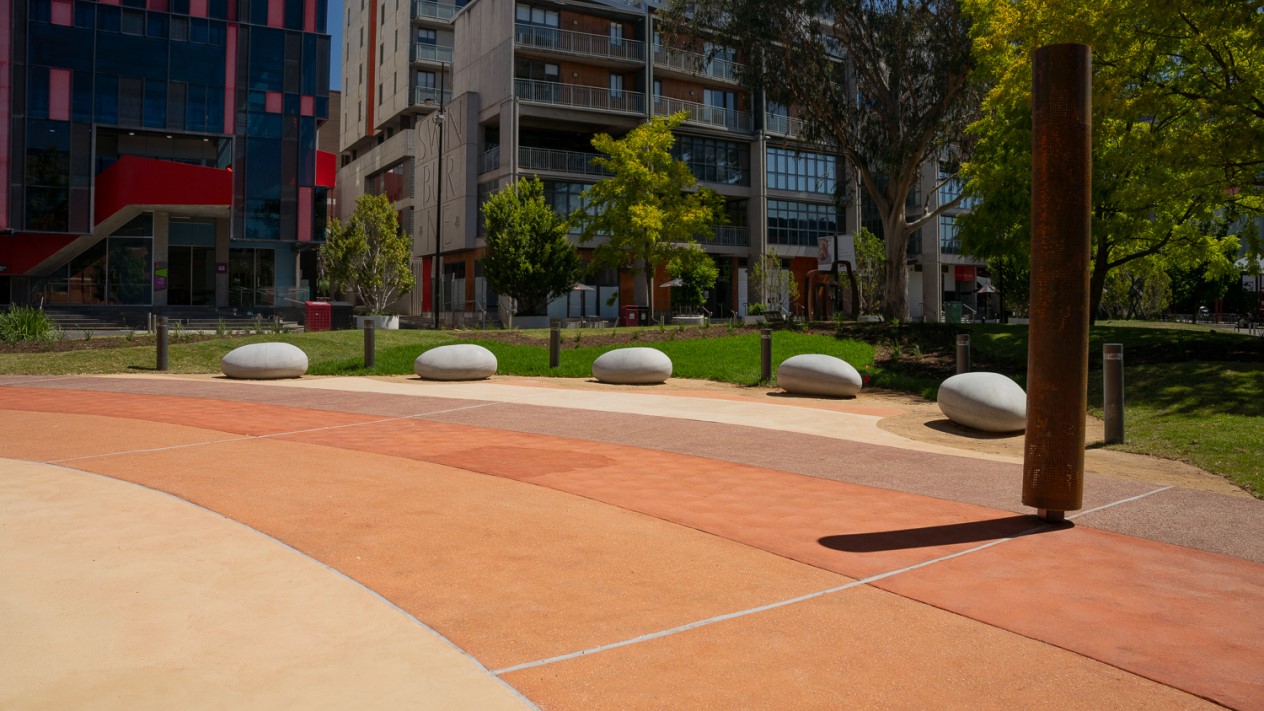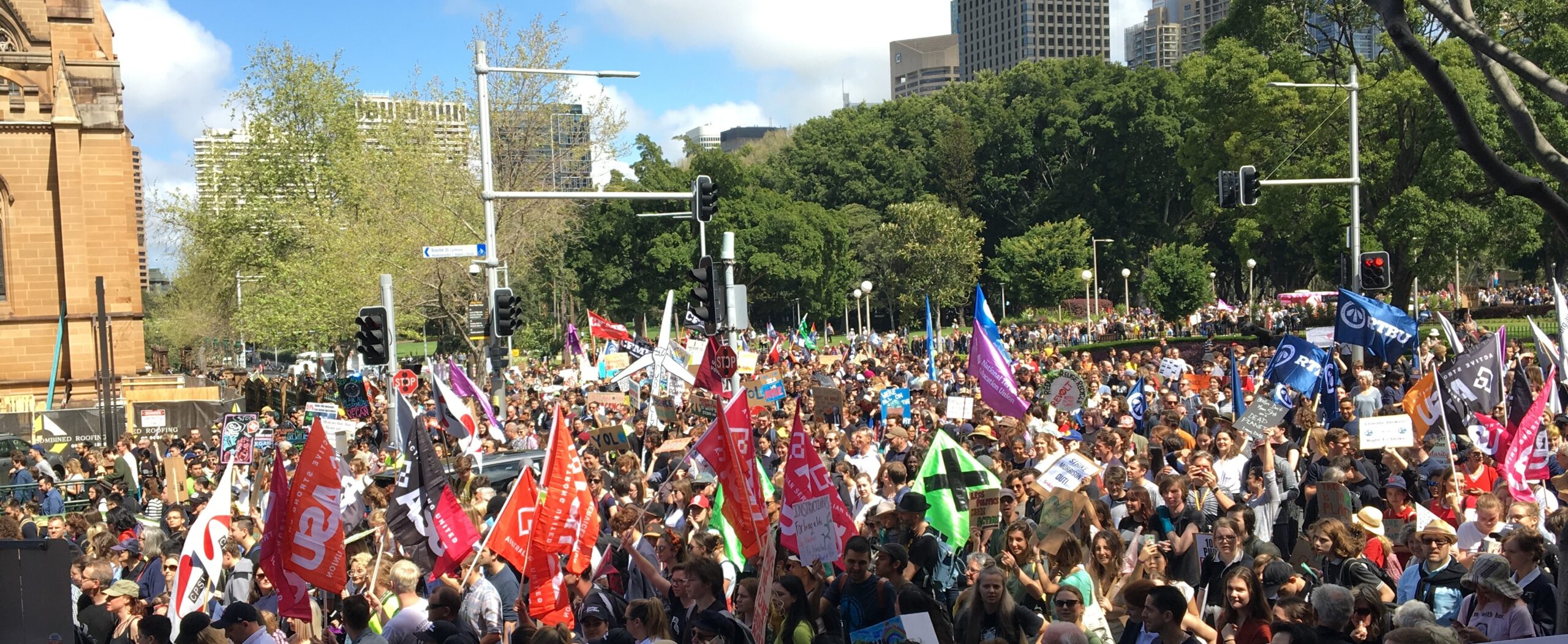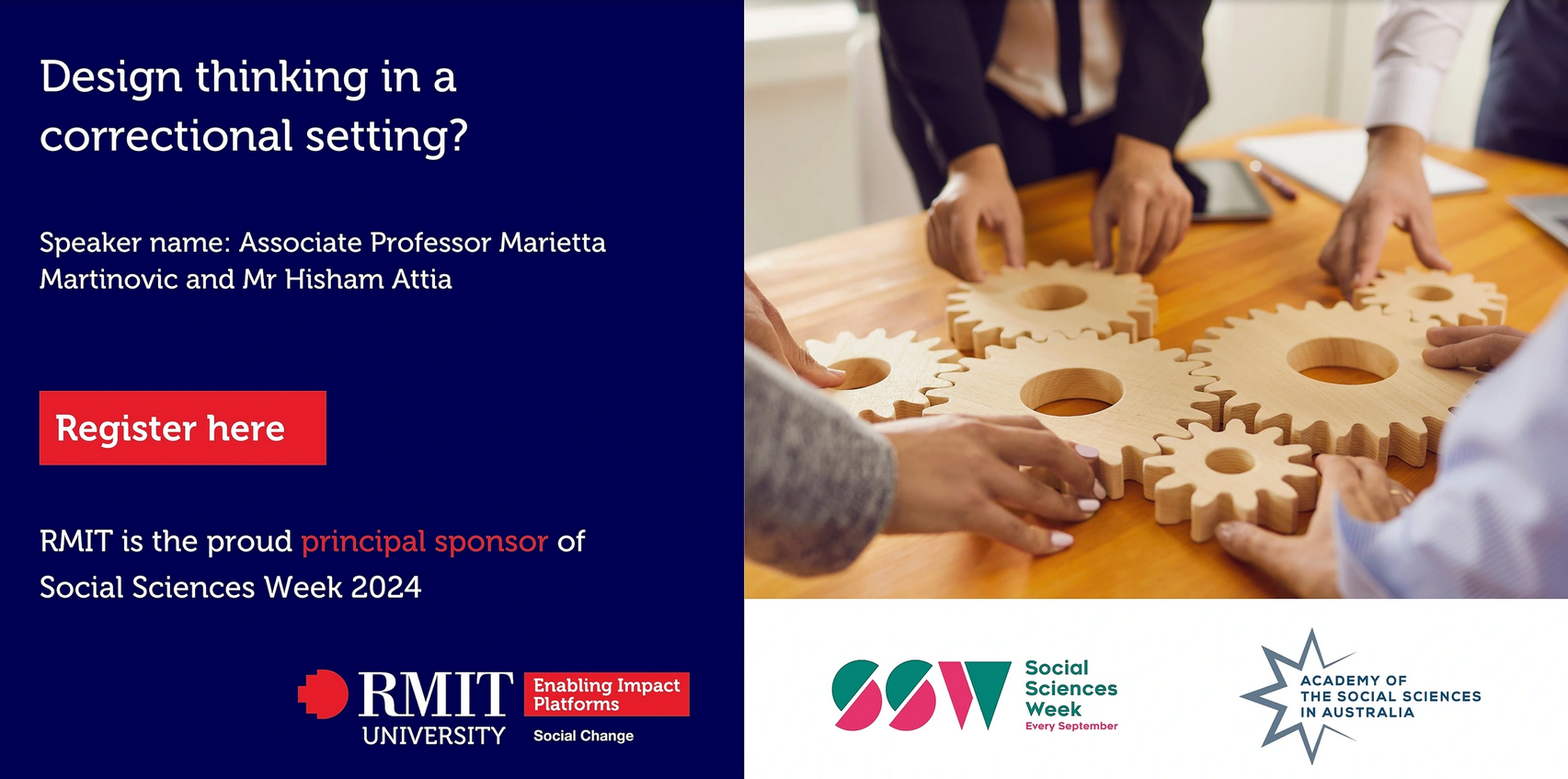Events
National CGE Modelling Workshop
JG Crawford Building, 132 Lennox Crossing, Acton, ACT 2601, Australia JG Crawford Building, 132 Lennox Crossing, Acton, ACT 2601, AustraliaInnovative methods for exploring financial abuse
Swinburne University of Technology, Hawthorn Campus ATC Lecture Theatre, 427-451 Burwood Rd, HawthornPower, Privilege and Place in Australian Society
008.04.013 Megaflex 3 Building 8, 360 Swanston St, MelbourneHDR/ECR Workshop: Scholarly publishing in the Social Sciences
Macquarie University 25 Wally's Walk, North RydeThe University Accord and its implications for higher education
Macquarie University 25 Wally's Walk, North RydeUNDERCOVER: The Hidden Faces of Homelessness
RMIT Storey Hall Lecture Theatre, Building 16, Room 016.01.001, Level 1 342-344 Swanston Street, MelbourneNational CGE Modelling Workshop
JG Crawford Building, 132 Lennox Crossing, Acton, ACT 2601, Australia JG Crawford Building, 132 Lennox Crossing, Acton, ACT 2601, AustraliaMasterclass: Costume Design in Film with Oscar Winner Tim Chappel
Kaleide Theatre Kaleide Theatre, 360 Swanston St, MelbourneUTS Health Communication Research Group Seminar
UTS UTS City Campus, Building 10 Level 03, Room 470, 235-253 Jones St., UltimoUsing social science to inform hepatitis C elimination efforts in prisons
Kirby Institute Berg Seminar Room, Wallace Wurth Bld, UNSW Kensington Cnr High St & Botany St, UNSW, KensingtonThe Great Debate: Does social media unite or divide us?
National Library of Australia Parkes Pl W, CanberraThe Teaching-Research Nexus in the Social Sciences: A Panel from The University of Sydney
Room 650, Social Sciences Building, University of Sydney Science Road, Camperdown +1 moreThe Right to Housing in Australia
Green Brain The Green Brain (Level 7), Building 16, RMIT University, 336/348 Swanston St, MelbourneSocial Science Community for the Great Barrier Reef Symposium 2024
Hybrid: Griffith University Gold Coast Campus + Online 1 Parkland Drive, SouthportHAAG’s Housing Roundtable on Older People in Victoria
Legislative Council Committee Room, Victorian Parliament MelbourneDr Chantal Carr: Can the concept of care infrastructures play a role in regional energy transitions?
Macquarie University 25 Wally's Walk, North RydeAmani Haydar: Amani is a multi-award winning author, visual artist and advocate for women’s health and safety
Macquarie University 25 Wally's Walk, North RydeCelebrating 30 Years of: The Adventures of Priscilla, Queen of the Desert
The Capitol 113 Swanston Street, MelbourneDifficult Conversations with Jane Hutcheon
Seymour Centre Cnr City Rd and Cleveland St, ChippendaleSocial Science Community for the Great Barrier Reef Symposium 2024
Hybrid: Griffith University Gold Coast Campus + Online 1 Parkland Drive, Southport2024 Kummargii Yulendji Symposium
RMIT Storey Hall 342 Swanston Street Building 16, level 5, MelbourneUTS Translational Criminology Seminar Series
UTS UTS City Campus, Building 10 Level 03, Room 470, 235-253 Jones St., UltimoHow can Thriving in Vertical Schools shed light on student learning and wellbeing for all schools? – Thriving in Vertical Schools Research Forum
Hybrid - Online and at QUT QUT Victoria Park Rd, E Block Level 5, Room 550, Kelvin GroveJoin journalist Dr Amy McQuire in conversation with Professor Sandy O’Sullivan
Macquarie University 25 Wally's Walk, North RydeSexualities and Genders Research (SaGR) Showcase
University of Western Sydney Room 31, Level 6, Peter Shergold Building, 169 Macquarie Street, Parramatta Western Sydney University, Parramatta City Campus, 169 Macquarie Street, Level 6, Room 31, SydneySSSWARM Seminar Series | Ethnography in the archive: listening, being, and doing in archival collections
Room 203, RD Watt Building, Science Road, University of Sydney, Camperdown Science Road, Camperdown Campus, SydneyWho’s on top? Inequality for the rich and poor
Macquarie University 25 Wally's Walk, North RydeQUT Commercialisation Club – Robotics and AI Investment
Room Three Sixty QUT Level 10 Y Block, QUT Gardens Point, 2 George Street, BrisbaneChats for the Goals: On Sundays, We Play
UTS Tower Building, Level 4 (Foyer Exhibition Space), University of Technology Sydney, Building 1 1/15 Broadway, UltimoMaking ‘sustainable finance’ more sustainable
Lecture Theatre G08, Melbourne Law School 185 Pelham St, Carlton, Melbourne17th Annual Wheelwright Lecture: Dollar Hegemony as Law-Making Power, or How the Dollar Shapes the Rules of Global Capitalism
Lecture Theatre 200, Social Sciences Building (A02), The University of Sydney, Science RoadSolidarity and the right to protest: student encampments for Gaza
Esme Timbery Creative Practice Lab UNSW Kensington Campus, SydneyUNE School of Law Annual Sir Frank Kitto Public Lecture 2024 – Professor Ben Saul
Virtual +1 moreDifficult Conversations with Jane Hutcheon
Seymour Centre Cnr City Rd and Cleveland St, ChippendaleThe Stupidity Paradox of Working in Universities | The Peer Revue
The Motley Bauhaus 118 Elgin Street, Carlton, MelbourneSocial Science Community for the Great Barrier Reef Symposium 2024
Hybrid: Griffith University Gold Coast Campus + Online 1 Parkland Drive, SouthportCaroline E Schuster: Tech for good? Anthropology and the quest for ‘ground-truths’ after weather disasters
Macquarie University 25 Wally's Walk, North RydeCorporations, Markets and Climate Change: Opposition or Opportunities?
Room 650, Social Sciences Building, University of Sydney Science Road, CamperdownDesign Thinking in Correctional Settings?
Building 80, Level 8, Room 080.08.010 435-457 Swanston St, MelbourneWeek of Events
Stop a Scam, Share a Story
Stop a Scam, Share a Story
Fraud affects millions of victims worldwide. However, there are many myths and misconceptions about fraud victimisation as well as negative stereotypes about who is involved. In a bid to challenge this, there are many victims who bravely share their own personal stories of financial and emotional betrayal. In this recorded session we discuss media representations of victims, with a focus on romance fraud. Panellists, Stephanie and Tracy, share their own experiences of deception, while Cassandra, Laura and Phoebe share insights from their research into this area. The discussion provides insights into how offenders operate and manipulate their victims and showcases the reality and extent of their deception. Importantly, the discussion focusses on how media narratives of victimisation can help or hinder support of those involved. It also covers what to look out for to prevent it from happening to ourselves and our loved ones, and what can be done to better respond to this growing type of victimisation.
Addressing sensitive issues in the classroom
Addressing sensitive issues in the classroom
Queensland University of Technology Recorded session – available anytime Teachers cannot ignore sensitive issues. They may be circulating in the community or be part of the curriculum. For example, issues related to consent education, the Voice referendum, wars in foreign lands, climate change, nuclear power, religious discrimination and exemptions for schools, marriage equality, migration, refugees and social media influencer content can all make their ways into the classroom. How should teachers respond: Is it best to ignore issues raised if they are not part of the curriculum? Should teachers say where they stand on particular topics? Can shutting down some debates protect vulnerable students? Does the raising of issues provide important teachable moments about engaging in civil discourse? Are there some topics which should never be discussed in the classroom? How do we determine age-appropriateness for some topics? These and other questions were discussed at a recent Q&A panel consisting of academics from QUT’s School of Teacher Education and Leadership and experienced educators working in and with schools. In this recorded session our panel explores ways to respond to and engage students when sensitive issues are raised in the classroom.
Making a Difference: How Does Social Change Happen?
Making a Difference: How Does Social Change Happen?
Recorded session - available on demand Policymakers confront growing challenges in areas as diverse—and often interrelated—as climate change, social inequality, artificial intelligence, work, migration, declining biodiversity, and new threats to public health. Responses require changes or modifications to deeply entrenched social and economic structures. Consequently, reform attempts often generate conflict and resistance from those with a real or perceived interest in those structures. How can such conflict be managed to deliver urgently needed reforms? This question is central to social scientists, whose work is vital to both the implementation of effective policy, and to understanding the societal implications of policy choices. A panel of six leading social scientists analysed foundations and strategies of policy change in their areas of expertise—including some of the biggest, most difficult and pressing global and national challenges. This panel highlighted the breadth, diversity, and interrelationships within and between, social scientific and other disciplines, and their central importance to addressing these challenges. Each panellist addressed three thematic questions: What is the central conflict or problem inherent to their research topic? How can this be managed or overcome? What skills or insights enable social science to make a difference to public policy—and debate thereof—in their research field? […]
National CGE Modelling Workshop
National CGE Modelling Workshop
The Crawford School of Public Policy, ANU, and the VU Centre of Policy Studies are hosting the National Computable General Equilibrium (CGE) Modelling Workshop at the Weston Theatre in the Crawford School of Public Policy. The National CGE Workshop is an annual event that provides a forum for CGE modellers to exhibit and discuss their work. Register to be part of the audience and/or give a presentation. Students are encouraged to participate. The program will include a longer presentation from the key note speaker, and short presentations from participants of about 15—20 minutes, followed by questions The workshop will interest those new to CGE modelling, expert modellers and policy advisors who rely on modelling to analyse events with economic impacts. Link to the program: https://www.vu.edu.au/about-vu/news-events/events/national-cge-modelling-workshop Program & venue The program will be over 2 days. A draft program is now available. Draft program - National CGE Modelling Workshop The workshop venue is the Weston Theatre, JG Crawford Building, 132 Lennox Crossing, Acton, ACT 2601, Australia.
Social Science Community for the Great Barrier Reef Symposium 2024
Social Science Community for the Great Barrier Reef Symposium 2024
Social Science Community for the Great Barrier Reef Symposium 2024 Reimagining Reef Futures: Stories of Creativity, Cooperation, and Courage REGISTRATIONS NOW OPEN! The Social Science Community for the Great Barrier Reef (SSCR) Symposium 2024 is proudly hosted by Griffith University and held at the Gold Coast Campus. This three-day event will be running from 11th to 13th September 2024. This year, the Symposium will be held over three days - you have the option to attend any or all the days. This is a free event, led by The Great Barrier Reef Marine Park Authority (The Reef Authority), supported by our sponsors, and enabled by a dedicated and diverse group of Reef social scientists. For further program information including our wonderful keynote presentations, please visit our website. Register below to attend SSCR2024. SSCR Symposium 2024 (griffith.edu.au) Looking forward to seeing you there!
Vegan Sociology Down Under
Vegan Sociology Down Under
This two-day event explores the innovative field of Vegan Sociology. Through round table discussions focussed on key areas of interest in the Australia/Aotearoa region, participants will debate the key issues relevant to scholars in the field and develop a research agenda for Vegan Sociology in the region. Discussions will be led by field experts, with topics including: Human-animal-environment connections in Australia/Aotearoa Understanding and reimagining "pest" animals Managing differing (and sometimes clashing) values and uses of space between human and nonhuman animals The role of emotions in working against animal exploitation Companion animal liberation in the Australian/Aotearoa context What would a decolonised Vegan Sociology look like Down Under? Scholars whose work aligns with vegan sociology, critical animal studies or related fields are invited to join this in person discussion based event. If you are interested in participating please send a 300 word expression of interest to zoei.sutton@flinders.edu.au outlining how your work aligns with the event theme and why you would like to participate in these discussions by 1st September 2024. For more information about the guiding principles of Vegan Sociology see https://www.vegansociology.com/principles/
Outdoor Therapies: Client Outcomes and Pathways for Change
Outdoor Therapies: Client Outcomes and Pathways for Change
This presentation will examine the contemporary research and evidence-base related to outdoor therapies. Attendees will examine what works in outdoor therapy and explore how to become not only evidence-builders themselves, but evidence-informed outdoor practitioners.
Innovative methods for exploring financial abuse
Innovative methods for exploring financial abuse
PLEASE NOTE: Unfortunately this event is now at capacity and tickets are no longer available. Symposium series: ‘Understanding and intervening in financial abuse’ Financial abuse is an insidious, yet common, form of gendered violence. The 2024 – 2026 ARC Discovery Project ‘Prioritising women’s financial safety: Developing institutional interventions for intimate partner financial abuse’ aims to develop a framework for understanding post-separation financial violence. The Discovery Project includes funding for a four-part symposium series. The aim of the series is to bring together academics in law, criminology, sociology, economics with public policy and experts with experience of financial abuse to build a community of practice that, together, can seed collaborations and bring a wider suite of problems and reform proposals to the attention of policymakers. Expressions of interest The focus of this first symposium is to explore innovative and interdisciplinary methods for exploring financial abuse. The symposium will feature interactive panels, short academic papers, a collaborative mapping activity and time for informal discussions. To express interest in either: (1) presenting a paper, (2) contributing to a panel, or (3) participating as a delegate, and applying for a bursary if eligible, please complete this form. Please note that timeslots within the 6-hour […]
Harmful care, careful harm: relational entanglements in migration
Harmful care, careful harm: relational entanglements in migration
Hosted by the Sydney Centre for Healthy Societies, this timely event will bring together experts from the diverse corners of the field of migration studies to consider the complex and dynamic relationship between care and harm in international migration. Scholars of migration have documented the multivarious forms of harm that arise from the systems, institutions and interactions surrounding the movements of people across borders. Researchers have also explored the many forms of local and transnational care that are created by, or persist despite, international migration. In this event, we explore the ways care and harm are interwoven, interdependent and mutually constitutive in diverse migration contexts. Relationships of care (for example, between migrants or between migrants and ‘allies’ in civil society) may arise in response or resistance to the harms imposed by exploitative policies and practices. Equally, policies and practices that appear to be ‘caring’ may reproduce, obscure or naturalise harm, at times perpetuating the very inequalities and injustices they purport to address. Grounded in diverse settings including immigration detention, aged care, temporary labour migration schemes, the family home, and media platforms, the speakers will present brief talks drawing on their specialist research. The speakers will then come together for a panel discussion of harmful care, careful harm, and the […]
BCEC|WGEA Gender Equity Insights 2024 online report launch
BCEC|WGEA Gender Equity Insights 2024 online report launch
Join the Bankwest Curtin Economics Centre (BCEC) and the Workplace Gender Equality Agency (WGEA) for the national online report launch for Gender Equity Insights 2024 on Monday 9 September 2024. Part-time work arrangements have traditionally provided people the opportunity to balance work with other responsibilities, enabling a broader constituency of individuals to participate in the workforce. But we also know that working part-time can limit pay and career progression resulting in long-term economic disadvantages for women, including lower lifetime earnings and reduced retirement savings. Despite its historical significance, the orthodox concept of part-time work is being re-evaluated in light of emerging work practices and employee preferences that attach increased value to flexibility, autonomy and the ability for work to align with responsibilities at home. For this ninth report in the Gender Equity Insights series from BCEC and WGEA, we take a detailed look at the incidence and evolution of part-time work in Australia, examine its relevance to the future of work, and explore the potential for part-time work options to be superseded by more fluid and adaptable work arrangements. Hear key findings from report lead authors Professor Alan Duncan, Director, and Dr Silvia Salazar, Senior Research Fellow, both of BCEC, alongside remarks from Hon. Mary Wooldridge, Chief Executive Officer, WGEA, and a […]
Power, Privilege and Place in Australian Society
Power, Privilege and Place in Australian Society
This event will launch the book 'Power, Privilege and Place in Australian Society', by Patrick O'Keeffe. 'Power, Privilege and Place in Australian Society' contributes to urgent discussions in key areas of Australian society. At a moment in time where a more progressive, caring, inclusive and optimistic public discourse is required, this book takes up the challenge of thinking constructively and creatively about the possibilities for change. This book is based on lectures developed for the RMIT University undergraduate course 'Australian Society in a Global Context', which was a collaborative teaching effort that drew on the expertise of numerous PhD candidates who taught in this course. To support the launch of this book, past tutors in this course will speak about their research, and identify opportunities for social change that disrupt power and privilege in Australia. Dr Stefani Vasil (Australian Catholic University) will speak about their research into experiences of gender based violence among migrant women. Dr Liam Davies (RMIT University) will discuss housing insecurity and the residualisation of public housing in Victoria. Dr Tuba Boz (RMIT University) will outline the role of sport and dance in building multiculturalism from the grassroots in suburban Melbourne. Dr Rachel Goff (RMIT University) will reflect on their work in developing culturally humble approaches […]
CUTransitions Talk: Fuel prices and ambient air pollution: A study of Sydney
CUTransitions Talk: Fuel prices and ambient air pollution: A study of Sydney
CUTransitions Talks are learning sessions organised by the Centre for Urban Transitions, Swinburne University of Technology. In this session, Professor Paul Burke will discuss fuel prices and ambient air pollution. This talk explores the short-run influence of road transport fuel prices on ambient air pollution over the period 2004–2023 for the case of Sydney, Australia. Using daily and monthly data from nine air quality monitoring stations, we find generally negative effects of fuel prices on ambient levels of several key pollutants, with inelastic effect sizes. Higher gasoline prices are also linked to improved daily visibility levels and a reduction in Google search interest in air pollution. Wind speeds, bushfire incidence, and public holidays are among other key factors affecting Sydney air quality. The findings are useful for air pollution prediction and add to the body of understanding of the environmental benefits of fuel taxes. Professor Paul Burke is Head of the Arndt-Corden Department of Economics (ACDE) and Deputy Director of the Crawford School of Public Policy at the Australian National University. His research is in energy and environmental economics, with a focus on the Asia-Pacific. We look forward to seeing you at the Talk!
HDR/ECR Workshop: Scholarly publishing in the Social Sciences
HDR/ECR Workshop: Scholarly publishing in the Social Sciences
For Social Sciences Week 2024, Visiting Research Fellow Kirsten Bell (Imperial College London) and Professor Lisa L. Wynn (Associate Editor of the journal American Ethnologist) will host a publishing workshop discussing changes afoot in the publishing arena, including a discussion of the effects of open access initiatives, combined with practical advice on getting published. This is an excellent opportunity to learn about trends in the academic publishing space and to ask questions about publishing your own work. Bell is a former journal editor (of Critical Public Health) and Wynn is a current journal editor (an associate editor of American Ethnologist). In addition to her experience as a journal editor, Bell has published three columns in the former Chronicle of Higher Education blog, ‘Vitae’, providing tips on getting published. She also holds a Master of Publishing from Simon Fraser University, is a former member of the Executive Committee of Libraria, a collective of social scientists exploring new models of publishing that supported Berghahn and Pluto to move their stable of journals open access under a ‘subscribe to open’ model, and has helped the editorial team and board of Critical Public Health to leave their owner and publisher, Taylor & Francis, and move to a diamond open access journal.
The University Accord and its implications for higher education
The University Accord and its implications for higher education
Professor Andrew Norton is a leading analyst of the Australian Higher Education system and is located at Centre for Social Policy Research at ANU. He'll be talking to Macquarie staff about the policy implications of the University Accord and specifically commenting on the current state and future of social sciences education. This seminar is the place to get answers to your questions about the current policy framework and what it means for us as knowledge workers in higher education. Andrew Norton is Professor in the Practice of Higher Education Policy at the Centre for Social Research and Methods at the Australian National University. Prior to joining the ANU he was the Higher Education Program Director at the Grattan Institute from 2011 to 2019. While at Grattan, he was a government appointed co-reviewer of the demand driven university funding system over 2013-14. He also served on a expert panel advising the government on higher education reform, particularly on financial issues, over 2016-17. Before joining the Grattan Institute, he worked for three University of Melbourne vice-chancellors as a policy adviser. He also worked part-time for The Centre for Independent Studies, as a research fellow and editor of its journal Policy. He started […]
UNDERCOVER: The Hidden Faces of Homelessness
UNDERCOVER: The Hidden Faces of Homelessness
The Homelessness and Housing Insecurity research theme of the Social Equity Research Centre invites you to a screening of the documentary, Undercover, followed by a panel discussion, UNDERCOVER: The Hidden Faces of Homelessness Narrated by Margot Robbie and sharing the often secret lives of an eclectic group of women across Australia, UNDER COVER shines a light on the devastating reality of older women’s experiences of homelessness. UNDER COVER follows ten of these women. For these women, life hasn’t panned out the way they expected. They've lived in nice houses, worked good jobs, educated their children and then suddenly ... life unravelled and through no fault of their own, they found themselves unable to pay their rent or mortgage. The women featured in UNDER COVER, are all over 50, and are a diverse group from varied backgrounds - wealthy, poor, middle class, working, unemployed, migrant and Indigenous. Faced with the hardships of housing stress and ageing, these women are seeking to find a home to call their own, for the final chapter of their lives. Their moving but optimistic portraits reveal the struggles these women face, and lay bare the flaws in our society, as well as our economic fragility in the modern […]
West to East: The Global Rebalance
West to East: The Global Rebalance
The West has always had an outsized influence in the world, but what if this trend is changing? The post cold-war era U.S. and European countries, which represent the foundational pillars of the Western system, have seen their power diminish. Shifts in demographics, economics, military, and cultural terms are indicating a more diverse global future. Wealth is moving from the West to the East, and nations such as India and Indonesia are set to reach new heights of growth and confidence. Is the West prepared for a more diverse global future? The Melbourne launch of Westlessness: The Great Global Rebalancing by Samir Puri. Speakers: Dr Samir Puri (Visiting Lecturer, Department of War Studies, Kings College London) Professor Nick Bisley (Dean of the School of Humanities and Social Sciences, La Trobe University) Professor Bec Strating (Director, La Trobe Asia)(Chair)
Doctors with a difference? Social science insights on widening participation in medicine: Australian, Canadian and UK perspectives
Doctors with a difference? Social science insights on widening participation in medicine: Australian, Canadian and UK perspectives
Medical schools have historically been prestigious and exclusive institutions, filled with students who come from much wealthier families than average. Elaborate and competitive selection processes and the costs involved in applying to medicine are barriers to students from low-income backgrounds, as well as the perception that medicine is out of reach. For over two decades, widening participation initiatives have focused on encouraging underrepresented groups to apply to medical school, including low-income and ‘first-in-family’ students whose parents are not university-educated, based on the assumption that a more diverse medical profession will lead to better care and health outcomes for patients. The success of these initiatives has largely been measured by statistics showing increased application and admission rates of low-income/first-in-family students. Much less attention has been paid to the experience of these students once they enter medical school, and even less is known about their experiences, aspirations and trajectories as doctors. Are there residual forms of inequity that persist within medical schools, and beyond? How do low-income/first-in-family students see themselves relating to the medical profession and to patients? This webinar presents findings from three countries on the experiences of medical students and doctors who are the first in their family to attend […]
An introduction to Computational Social Science
An introduction to Computational Social Science
Computational social science (CSS) frequently uses Agent-based models (ABMs) to model social phenomena. ABMs are ‘bottom-up’ representations of individuals (computational agents) who exist within a society of other agents and who interact on a local scale based on sets of rules that govern their behaviour. When used like this, ABMs are attempts to create ‘Artificial Societies’ that we can study. The advantage of creating artificial societies is that imagined policies or interventions can then be made within these representations and the outcomes of those policies can be observed prior to implementation in the real world. The models can be anywhere between instructive or predictive, with the sophistication and detail of models often geared toward their purpose in this regard. In general, the most interesting models are those that try to replicate the generation of a large-scale social phenomenon when the mechanisms that create that phenomenon are currently unknown or contested (e.g., crowd behaviour, social behaviour, health behaviour, political behaviour, etc.). This session will introduce the audience to example agent-based models used in Computational Social Science and show how they can be used to augment existing research agendas, test theory, and trial simulated policies. We'll provide some very brief introductory 'how […]
Wilderness Therapy and the Dissociative Mechanism of Change: Protecting Youth from Systemic Harm
Wilderness Therapy and the Dissociative Mechanism of Change: Protecting Youth from Systemic Harm
This presentation explores the use of cognitive or adaptive dissonance and involuntary treatment foin Wilderness and adventure therapy (WT, AT) for youth. Past WT participants have protested that involuntary, inescapable and harsh conditions harmed them through PTSD and dissociation. In this presentation, we compare dissonance and dissociation using a critical realist and argumentative research process using publicly available data. We argue that dissociation is a response, recorded both in the design of some WT practices and in participant statements and is often mistaken for dissonance. Deliberate use of forced cognitive dissonance during involuntary treatments align with the conditions that may cause dissociation. Therefore, planning to enforce cognitive dissonance during coercive WT or AT is likely to be harmful and, knowing of this potential, may be regarded as malpractice.
Gender equality and women’s empowerment
Gender equality and women’s empowerment
This event brings together academics from across a range of disciplines to engage in meaningful discussions and collaborative efforts towards a more just and secure society for women. Join RMIT academic experts as they share knowledge, best practices, and innovative solutions to help promote and protect the rights and wellbeing of women: Dr Leila Afshari (Management) Associate Professor Brianna Chesser (Criminology and Justice) Dr Bronwyn Coate (Economics) Dr Rojan Afrouz (Social Work) Moderated by Professor Lisa French. Tuesday 10 September Time: 10.30-11.30am Online via Teams
Masterclass: Costume Design in Film with Oscar Winner Tim Chappel
Masterclass: Costume Design in Film with Oscar Winner Tim Chappel
Masterclass: Costume Design in Film with Oscar Winner Tim Chappel This year marks the 30th anniversary of Stephan Elliott’s 1994 masterpiece ‘The Adventures of Priscilla, Queen of the Desert’. Join Beloved Australian costume designer Tim Chappel for an insight into his career and the role of costume design in storytelling. Chappel won an Academy Award, a BAFTA and an AFI Award for his costume design for the feature film The Adventures of Priscilla Queen of the Desert. He later revisited this work in the stage show, Priscilla and won the 2011 Tony Award for Best Costume Design in a Musical. At this workshop Tim will offer insights into his incredible career including the narrative power of great costumes, the different approaches to creating memorable characters and the visual poetry that costume can provide. We will also explore the essential joys of effective collaboration, communication and the dynamics of the film family and the importance of developing your own creative voice that loudly whispers, “Hire me, I’m amazing”. Presented in partnership with RMIT’s Social Change Enabling Impact Platform and RMIT Culture, as part of the Academy of the Social Sciences of Australia’s Social Sciences Week. Free, booking essential. Image: Still, ‘The Adventures […]
The role and purpose of Lived Experience Advisory Panels.
The role and purpose of Lived Experience Advisory Panels.
This session will introduce participants to the important contribution Lived Experience Advisory Panels can make to research and how the decision to include a panel is grounded in a commitment to co-design and the increased expectation that experts by experience are involved in care economy research. We will discuss emerging practices including how to engage and work with a diversity of perspectives and address issues power sharing in research.
Launch of Australian Urban Observatory Liveability Map 2.0 and update on National Urban Policy
Launch of Australian Urban Observatory Liveability Map 2.0 and update on National Urban Policy
The Australian Urban Observatory at RMIT University is delighted to invite you to the online launch of the new and improved AUO Map 2.0on Tuesday the 10th of September at 1pm. During Social Sciences Week, the Australian Urban Observatory team will be releasing an enhanced AUO digital map portal that supports faster, more efficient and insightful observation and understanding of city liveability across Australia. Our new and improved portal reflects the ongoing contribution of our research partners, without whom, our expanded work would not be possible. Emeritus Professor Barbara Norman is our esteemed guest speaker at the launch and Chair of the National Urban Policy Forum. Professor Norman is a global expert in sustainable cities and regions, smart infrastructure, coastal planning, climate change adaptation and urban governance. Professor Norman will present the Australian Government's Draft National Urban Policy that has recently been open for public consultation with goals and objectives that support urban areas to be liveable, equitable, productive, sustainable and resilient. Join us for an informative, interactive session and learn more about how the AUO Map 2.0 can serve you even better! Speakers: Emeritus Professor Barbara Norman, University of Canberrra, Chair National Urban Policy Forum Brigid Papaix, Partnerships Manager & Knowledge Broker Australian Urban Observatory, RMIT University Professor Melanie Davern, Director Australian Urban Observatory, RMIT University Please register for […]
Enhancing Metadata for Inclusive Research on Entrenched Disadvantage
Enhancing Metadata for Inclusive Research on Entrenched Disadvantage
Join us during Social Science Week for a webinar on some exciting new developments from the ARDC. Learn about the ARDC’s HASS and Indigenous Research Data Commons and the collaborative project: Enhancing Metadata for Inclusive Research on Entrenched Disadvantage, and improvements to metadata for an important dataset for social science researchers. Learn about developments in integrated administrative social science data (IASSD); of the Higher Education (HE) administrative data within the Australian Bureau of Statistics (ABS) Person Level Integrated Data Asset (PLIDA) (formerly known as Multi-Agency Data Integration Project (MADIP) data) with a view to increasing the ongoing utility of this data for researchers and analysts. The project was led by researchers at the Institute for Social Science Research (ISSR) at the University of Queensland, in collaboration with the Australian Research Data Commons (ARDC), the Australian Bureau of Statistics (ABS), the Australian Department of Education, and the ARC Centre of Excellence for Children and Families Over the Life Course (Life Course Centre). Speakers * Professor Wojtek Tomaszewski, Deputy Director (Research) and a Research Group Leader at the Institute for Social Science Research, University of Queensland * Dr Matthew Curry, Research Fellow, Institute for Social Science Research, University of Queensland * Jenny Fewster, Director, HASS and Indigenous Research Data Commons, ARDC Who Should Attend? * social […]
Writing out from the Academy
Writing out from the Academy
Presented by Macquarie University’s School of Social Sciences, in partnership with the Imagined Lives research collective, Sydney Review of Books, and the Centre for Applied History. Join us for a special event which brings together scholars, creative writers and publishers to discuss the practices, challenges and affordances of ‘writing out from the academy.’ Program 1.30pm-2.30pm Session One ‘The ethics and aesthetics of social science research.’ Panel discussion: Lisa Wynn, Kirsten Bell, Randa Abdel-Fattah, and Kate Rossmanith 2.30pm-3pm: Afternoon Tea 3pm-4pm: Session Two: ‘The generalised essay’ James Jiang (editor, Sydney Review of Books), with Christian Gelder and Kate Rossmanith Over the past several decades, more and more academic researchers are using different forms of writing as part of their scholarly practice. They are producing novels, short stories, nonfiction monographs, memoir, biography, literary journalism, essays and poetry. These writing innovations have been driven by the reflexive turn in the social sciences, the humanities’ interest in questions of subjectivity, artists and writers entering the academy and the acceptance of creative practice research, and, more recently, the expectation that scholars produce ‘approachable’ work that has ‘real world impact’ Researchers working with such forms of writing are confronted by particular compositional and philosophical […]
How organisations thrive in a fast-changing global society: Challenges and opportunities
How organisations thrive in a fast-changing global society: Challenges and opportunities
In an era marked by rapid technological advancements, evolving market dynamics, and unprecedented global interconnectedness, organisations are constantly navigating a landscape of both challenges and opportunities. This event will delve into the strategies and insights that enable organisations to not only survive but thrive in such a fast-changing global society. Join the following innovative academic thinkers as they explore the key factors that contribute to organisational success amidst volatility and complexity. Professor David Fan (Human Resource Management) Dr My Nguyen (Finance) Dr Marian Makkar (Marketing) Dr. June Tran (Management) Through an expert-led panel discussion, attendees will gain a comprehensive understanding of embracing cultural diversity, sustainability and corporate responsibility and global market trends and opportunities. This event is a must-attend for executives, managers, and professionals who are keen on equipping their organisations with the tools and knowledge needed to thrive in a rapidly changing world. Attendees will leave with actionable insights and practical strategies to drive their organisations forward, ensuring they remain competitive and resilient in the face of ongoing global challenges. Join us as we explore the multifaceted ways in which organisations can achieve lasting success in a fast-changing global society. Tuesday 10 September 2024 Time: 2-3pm Online via Teams
UTS Health Communication Research Group Seminar
UTS Health Communication Research Group Seminar
The seminar will showcase five distinguished speakers who will present their groundbreaking research in health communication, health promotion, and innovative health care strategies. Their findings have major implications for advancing academic scholarship and transforming health care practices and service delivery. Speakers and their topics are: Professor David Sibbritt – ‘Post-stroke Self Care and support living at home – The Allen Study’ Dr Catriona Bonfiglioli – ‘Attention cycles in COVID news coverage: What to do when the novelty wears off’ Dr Joshua Pate – ‘Pain can be good?! Pain as messages that support health’ Dr Gail Kenning – ‘“I never felt so heard”: A psychosocial research engagement to communicate the lived experience of dementia’ Emeritus Professor Andrew Jakubowicz – ‘How and why the Australian health communication system failed its multicultural communities during the COVID pandemic, and why the problem is still a problem’
Fostering Social Cohesion: Intercultural Strategies for Strengthening Australian Multiculturalism
Fostering Social Cohesion: Intercultural Strategies for Strengthening Australian Multiculturalism
Co-hosted with Swinburne University and iGen Foundation, this webinar will explore the role of intercultural strategies in fostering social cohesion and inclusion in Australia. Australia was one of the first countries, along with Canada, to adopt multiculturalism. Over four decades later, as threats to our social cohesion grow, local, state, and federal governments are exploring how intercultural strategies can strengthen our multicultural policy framework. Please join us to hear from our distinguished panel of speakers about their work in this field. Panel Mr. Hass Dellal, Panel Chair for the Commonwealth’s Multicultural Framework Review, will discuss the role of intercultural strategies in the recently released Multicultural Framework Review. Ms. Vesna Haracic Manager, Community Diversity & Inclusion, City of Salisbury, South Australia, will discuss the groundbreaking application of intercultural strategies in the City of Salisbury, Adelaide. The panel will be chaired by Dr. Glenda Ballantyne, Senior Lecturer, Swinburne, and Co-convenor, Intercultural Cities Australian National Network. Bios Dr Bulent (Hass) Dellal AO is the Executive Director of the Australian Multicultural Foundation, Chair of the Australian Multicultural Council, the former Chair of SBS (Special Broadcasting Service) and appointed Panel Chair for the Commonwealth’s Multicultural Framework Review, May 2023. He has over 30 years of experience […]
Using social science to inform hepatitis C elimination efforts in prisons
Using social science to inform hepatitis C elimination efforts in prisons
Using social science to inform hepatitis C elimination efforts in prisons Please join us for the 2024 Paul Bourke Award Lecture given by Dr Lise Lafferty. In this address Dr Lafferty will reflect on a decade of social science research to understand key enablers and barriers to hepatitis C risk, prevention, testing and treatment in the prison setting. People who use drugs are overrepresented in prison settings globally. Once incarcerated, people who inject drugs frequently continue to do so. However, the risk factors for exposure to bloodborne viruses, such as hepatitis C, and other injecting-related infections significantly increase in prison settings. In this talk, Dr Lafferty will explore patient, healthcare provider, and correctional officer perspectives of different healthcare interventions which have been trialed and implemented with an aim to reduce hepatitis C transmission in the prison setting. She will also unpack the social, cultural and behavioural influences of hepatitis C risk navigation among people who inject drugs in prison. Dr Lise Lafferty is a recipient of the Academy of the Social Sciences in Australia’s prestigious Paul Bourke Award for Early Career Research. The Paul Bourke Lectures are named in honour of the late Paul Francis Bourke (1938–1999), President of the Academy […]
The Great Debate: Does social media unite or divide us?
The Great Debate: Does social media unite or divide us?
A Social Sciences Week special event Tuesday 10 September | 5pm arrival for 6pm start National Library of Australia In an era where social media shapes our interactions and perceptions, the lines between connection and division have never been more blurred. With rising concerns about misinformation, online bans and the impact of digital echo chambers, we must ask: is social media bringing us together or tearing us apart? Join us at the National Library of Australia for an evening of compelling debate as academics and authors Professor Lisa Given and Distinguished Professor Anthony Elliott AM tackle this pressing question. Guided by former Seriously Social podcast host and journalist Ginger Gorman, our speakers will delve into the complexities of our digital age, exploring whether social media is a force for unity or division. Don't miss this thought-provoking event, packed with engaging discussions and opportunities for audience participation. Proudly presented by the Academy of the Social Sciences in Australia and the National Library of Australia, the Great Debate promises an evening that will challenge your perspectives and ignite your curiosity. Ticket includes canapes on arrival (from 5pm). The debate will begin at 6pm, followed by Q&A.
The Teaching-Research Nexus in the Social Sciences: A Panel from The University of Sydney
The Teaching-Research Nexus in the Social Sciences: A Panel from The University of Sydney
Social Sciences Week is a celebration of research, but researchers were once students. Social Scientists do not often reflect on their days as ‘trainees’ in educational settings. In the rush to know more about the state of our societies, political systems and economies, researchers can downplay the importance of teaching the next generation of professionals, scholars and other experts. This event features several academics from the University of Sydney’s School of Social and Political Sciences, all of whom are active researchers and passionately committed teachers who will reflect on the ‘teaching-research nexus’. How does their research influence their teaching, and how does their teaching influence their research? What do they love about each of the two spheres, and how do they achieve a symbiotic relationship between them? Are there ever points of friction between research and teaching, and if so, what strategies do these academics employ to manage the inconsistencies for the benefit of students? Chair: Professor Gaby Ramia (Chair), Deputy Head of School (Research) Panel Members: Associate Professor Susan Banki, Sociology and Criminology Dr Minglu Chen, Government and International Relations Professor Alex Lefebvre, Philosophy and Government and International Relations Dr Eyal Mayroz, Sociology and Criminology Professor Brendon O’Connor, US Studies and Government and International Relations […]
Engaging Young Children in Nature-Play
Engaging Young Children in Nature-Play
This presentation provides a synthesises of the research evidence relating to young children's engagement in nature play. The presentation will cover what nature play is factors, impacting the likelihood of young children engaging in nature play, and ways to support parents to involve young children in nature play.
Critical Issues Series: What About Men?
Critical Issues Series: What About Men?
In 2024, violence against women has been declared a ‘national crisis’, with at least 27 women murdered at the hands of men. Over the last decade, we have also seen increased investment and progress in addressing, responding and preventing violence against women. However, men’s use of violence continues to be identified as a critical but underdeveloped area for action. This Critical Issues panel from the School of Social and Political Sciences will discuss the current discourses and interventions around work with men to prevent violence. A panel of men’s violence experts will critically explore the intersecting challenges of race, migration and discrimination that is core to Australia’s commitment and responsibility to end violence against women. This panel discussion is part of the ‘Critical Issues’ Series, the annual program of free public events presented by the School of Social and Political Sciences at the University of Melbourne. Its purpose is to showcase how each discipline under the School is addressing today’s most important challenges in a changing world.
The Right to Housing in Australia
The Right to Housing in Australia
With so many Australian cities facing problems of housing affordability, how can we guarantee that all Australians have access to safe, secure housing? As property prices rise, dragging rents with them, we are rapidly losing the qualities that long made Australian cities some of the most liveable in the world. Leaders and policy makers routinely propose solutions to Australia’s housing crisis, though few have led to significant change. Australian housing debates seems to be caught in stalemate at present. This session seeks new ideas by drawing together some of Australia’s leading authorities on housing policy to discuss options for the future of housing in Australian cities. Moderated by Professor Libby Porter (Director of RMIT University's Centre of Urban Research), the event will include: The Hon. Kevin Bell AO KC, Former Supreme Court Judge & Monash Adjunct Emma Dawson, Executive Director, Per Capita Jorden van den Berg, ShitRentals.com Emma Power, Western Sydney University Cameron Duff, RMIT University Learn more about the speakers. How can we restore the principles of access, affordability and fairness to our housing markets? Can we have a right to housing in Australia? How can we develop more just, inclusive and affordable housing solutions for all Australians? Please note […]
Levelling the Field in Education
Levelling the Field in Education
This hybrid symposium considers the different education fields that make up the wider education system and considers how different students negotiate these spaces and manage transitions between them. It asks who is succeeding, who is still being left behind and what are different ways we can think about what success looks like. Across educational fields this asks what does inclusion mean? What does good practice look like, where are the key challenges and where do policy and program success or failure currently lie? It aims to: 1. Better understand educational inequalities and success metrics in education 2. Contribute to better informed educational policies
Provocations for anti-racism research and practice
Provocations for anti-racism research and practice
The Challenging Racism Project, Centre for Western Sydney and Whitlam Institute invite you to attend this showcase of cutting edge anti-racism research and practice. Facilitated by Rhonda Itaoui, the event comprises a panel discussion about current directions in anti-racism research and practice. Provocations will address synergies between research and practice, looking at how these can advance anti-racism in all spheres. We will conclude by launching the Challenging Racism Project’s new anti-racism educational social media package. The event will be followed by an opportunity to meet the panellists and network over a catered lunch. Panel Discussion Australian schools are one of the most common settings in which children experience racism. Rachel Sharples and Katie Cherrington will discuss how to develop effective anti-racism interventions in schools. The online world is increasingly a space where racism persists, causing great harm to individuals, groups, and communities. Kevin Dunn and Stijn Denayer will discuss what we need to do to make these spaces safe and ethical, and develop strategies to tackle the pervasive threat of online hate. The Challenging Racism Project activates its research into anti-racism training. Zarlasht Sawari will discuss how research can be activated into educational strategies that improve anti-racism literacy; the ability to recognise everyday racism and its impacts;and effective bystander interventions. Naomi Steinborner will demonstrate the application of […]
A Skilled (Open) Hand and a Cultivated (Open) Mind: Goals, Policies and Case Study of Open Scholarship at RMIT University
A Skilled (Open) Hand and a Cultivated (Open) Mind: Goals, Policies and Case Study of Open Scholarship at RMIT University
RMIT University has worked to support Open Scholarship over several years. It now has a suite of resources and policies to support its goal to encourage and concretely support the development of Open Education Resources by RMIT staff. This online session outlines what Open Scholarship and Open Education Resources are, and their benefits, and introduces the ways in which RMIT now enables its educators to develop and publish open-access materials. This session explores a case study of open scholarship, an edited volume titled A Skilled Hand and a Cultivated Mind: A Culture of Learning and Teaching at RMIT University (2024; eds: Lee, Ducasse, Ni, Quek and Yoshida). The editors of this volume reflect on their experiences in developing this book for RMIT Open Press and how they collaborated with RMIT’s library to make it happen.
New Technologies in Contemporary Society: Promise, Peril, or Something in Between?
New Technologies in Contemporary Society: Promise, Peril, or Something in Between?
This seminar is hosted by the Sydney Centre for Healthy Societies, Discipline of Sociology & Criminology and Social Sciences Week 2024. Science and technology are embedded in almost every aspect of our daily lives. Yet too often, they are regarded as value-neutral, apolitical, and beyond democratic debate. As issues around technological sustainability, developments in generative AI, and concerns over humanity’s relationship with the environment become ubiquitous, the need to address the political and ethical dimensions of science and technology is more critical than ever before. Join us for an online lunchtime seminar with a panel of national and international early career scholars as part Social Sciences Week hosted by The University of Sydney. Our panellists will explore the often-unseen social dimensions of science and technology. From the politics of epigenetics and its connection to intergenerational trauma, to the role that generative AI might play in our visions of the future, to the ways in which technologies such as ‘waste drones’ are assisting in large-scale environmental remediation, our speakers will discuss the entanglement of contemporary life with the technological across micro and macro scales. What does it mean to live in and be governed by a technologically driven society? Whose knowledges […]
HAAG’s Housing Roundtable on Older People in Victoria
HAAG’s Housing Roundtable on Older People in Victoria
It is our great pleasure to invite you to the Housing for the Aged Action Group’s Housing Roundtable on Older People in Victoria. For the past four decades HAAG has been advocating for older people’s right to affordable, accessible, stable and long-term, housing. The number of older people in Victoria who are experiencing housing precarity and homelessness as they reach retirement age is growing. In the midst of a housing crisis, it’s an important time to come together and discuss how we can prevent people reaching retirement age with no housing security. Speakers include: Minister Harriet Shing, Minister for Housing, Equality and Water, Katie Hall MP, Parliamentary Secretary for Housing, Fiona York, Executive Officer, Housing for the Aged Action Group, Lived Experience Advocates, and Professor Wendy Stone, Swinburne University of Technology. Light refreshments will be provided. Please include any dietary requirements in your RSVP. We look forward to seeing you at this vital event, but places are limited, so please RSVP no later than 6th September 2024. This is a hybrid event. The zoom link will be shared closer to the date with those registering to join online. To RSVP via phone, please call HAAG office on 03 9654 7389.
Dr Chantal Carr: Can the concept of care infrastructures play a role in regional energy transitions?
Dr Chantal Carr: Can the concept of care infrastructures play a role in regional energy transitions?
Energy transitions are social transitions, shifting existing patterns of everyday life and challenging shared societal values. This is especially evident in Australia’s carbon-intensive regions, where community capacities to cohere and care for each other are being re-shaped. In this paper I draw on the concept of care infrastructures to analyse some of the contemporary social dimensions of regional energy transitions. Care infrastructures are ‘forms that pattern the organisation of care within society’ (Power and Mee 2020: 489). The case study focuses on the Illawarra, a region on the cusp of a new wave of change prompted by imperatives to decarbonise heavy industry, the globalisation of coal capital, and the emergence of new renewables infrastructure, including offshore wind. I identify the care infrastructures that have long underpinned industrial change in the region, noting that capacities to care have always existed at the household and community scale. I examine the challenges energy transitions present for existing care infrastructures and identify where gaps are emerging around support for affected workers and the broader community, before concluding with some implications for transition planning and policy. Chantel Carr is an ARC DECRA Fellow in the Discipline of Geography and Sustainability at the University of Wollongong. […]
Amani Haydar: Amani is a multi-award winning author, visual artist and advocate for women’s health and safety
Amani Haydar: Amani is a multi-award winning author, visual artist and advocate for women’s health and safety
Peak bodies working to end violence against women in Australia recognise that violence is preventable but condoned and trivialised societally, emboldening perpetrators, and compromising systems of accountability. Amani lost her mother to domestic violence in 2015 and her grandmother was killed in Israeli violence in 2006. Drawing on lived expertise and contemporary conversations around coercive control and primary prevention, Amani will speak about the parallels between interpersonal abuse and state-sanctioned violence. She will examine the way tactics of victim-blaming, gaslighting and DARVO occur at the macro and micro levels and the ways in which survivors engage in creative resistance against these strategies. What are the impacts of these strategies on women and other vulnerable groups? How can feminists engage in more deliberate and meaningful critiques of state-sanctioned abuse in a time of genocide? If both pro-Palestine activists and activists against domestic violence believe that violence can be prevented, what knowledge can be shared across movements to give us a clearer understanding of how power and control is exercised over vulnerable individuals and populations? Amani’s ground-breaking feminist memoir The Mother Wound, published in 2021, explores the effects of domestic abuse and state-sanctioned violence. As an appointee to the DFSV Commission’s Lived Experience Advisory […]
AI, Social Media and Sexism in Schools: Where to From Here?
AI, Social Media and Sexism in Schools: Where to From Here?
Start time: 5:00 pm for registrations and refreshments/networking (Live event) 6:00 pm Discussion Panel and audience questions End time: 8:00 pm 1.5 hours for discussion, with up to 30 minutes for audience questions We are witnessing a surge of incidents in Australian schools where AI and social media are being used by young people to judge, and sometimes abuse, fellow students and/or teachers. This is alongside media reports of increasing misogyny amongst teenage boys. The resulting debates within media, government and schools have seen calls to introduce curriculum on respectful relationships to counter ‘toxic masculinity’ and calls to ban social media for young people under the age of 16. With academic staff working across the fields of Justice, Education and Communication, QUT’s Faculty of Creative Industries, Education and Social Justice (CIESJ) is convening this panel to bring together diverse perspectives on these complex societal issues and discuss possibilities for more multidisciplinary and integrated solutions. We invite you to join us for an evening panel discussion, led by CIESJ’s Executive Dean, Professor Lori Lockyer, in conversation with QUT experts on interpersonal violence prevention, social […]
Meet the Researchers – UOW Liverpool
Meet the Researchers – UOW Liverpool
Join us at UOW Liverpool on Wednesday 11 September 2024 for insightful presentations focusing on the latest research advancements in multicultural societies in Australia. Hear from social policy lecturer Dr Delia Rambaldini-Gooding and critical social geographer Associate Professor Natascha Klocker, as they delve into the contributions and equitable participation of refugees in Australian society. Both Delia and Natascha will present a comprehensive overview of their research in multicultural societies and refugee participation in Australian society and culture and their access to equitable employment and healthcare. The discussion will explore multiculturalism from the perspective of refugee groups in Australia. Their presentations have been designed with a diverse public audience in mind, and this event is open to the general public. High school students are welcome and encouraged to attend. Each presentation will last 15-20 minutes, and be followed by an interactive Q&A session where the audience are invited to engage with the researchers. Don't miss this opportunity to hear about this research and its implications for societies and multicultural settings. Doors open at 5:00 PM. Presentations commence at 5:30 PM. Register now: https://events.humanitix.com/meet-the-researchers-liverpool-campus-uow
Distinctive Works Prize winner: A discussion between Frank Bongiorno and Vic McEwan
Distinctive Works Prize winner: A discussion between Frank Bongiorno and Vic McEwan
2023 Winner: Vic McEwan for 'Face to Face: The New Normal' The panel selected Vic's work due to its ‘distinctiveness’, the cross over between HASS and medical science together with the significant, beautiful and tangible outcomes of the project. "Face to Face: The New Normal" evolved through four years of artistic research with patients experiencing facial nerve paralysis due to conditions like cancer, brain tumours and Bell’s Palsy. It explored the intersection of medical science and the arts, addressing human experiences of illness, trauma and identity. The project was delivered by Vic McEwan as part of his PhD. PhD supervisors were Dr Claire Hooker, Dr Susan Coulson and Dr Paul Dwyer This work is distinctive because it is the first time an artist has been accepted into the PhD program at the Faculty of Medicine and Health at the University of Sydney, potentially setting a precedent nationwide. The artistic process was undertaken at The Chris O'Brien Lifehouse, a cancer research hospital (Sydney, NSW), specifically at the Sydney Facial Nerve Clinic. Here, for the first ever time, a contemporary artist became an integral part of the clinical team, working alongside multi-disciplinary specialists and employing artistic methods to contribute to patient care. […]
Careers for Social Science graduates
Careers for Social Science graduates
Have you wondered about what career you might pursue with your Degree? This 2-hour special event is for current students in the Bachelor of Social Science and Bachelor of Arts (major in Sociology, Gender Studies, Social Justice, Anthropology, Human Geography, Politics/International Relations). Come hear a panel discussion where alumni share insights from their career journeys. You’ll learn how they use their Degree skills and knowledge in their work, advice on how they’ve found work and information on what employers currently seek. There will be an opportunity to chat with alumni and staff over food and beverages after the panel discussion!
Conversation as Experiential Learning: We Make the Road by Walking
Conversation as Experiential Learning: We Make the Road by Walking
This event will delve into how genuine, caring, and culturally intuitive conversations can transform collective experiences into knowledge. Join educators from Charles Sturt University's School of Social Work and Arts to discuss how philosophy underpinning experiential learning not only created the groundwork for social work education, but can be revisited to transform student experiences.
Celebrating 30 Years of: The Adventures of Priscilla, Queen of the Desert
Celebrating 30 Years of: The Adventures of Priscilla, Queen of the Desert
This year marks the 30th anniversary of Stephen Elliott’s 1994 masterpiece, ‘The Adventures of Priscilla, Queen of the Desert.’ To celebrate, join us for a spectacular screening at RMIT's fabulously fitting venue, The Capitol. The event will feature an introductory panel discussion with: Tim Chappel - The film's Oscar-winning costume designer Rebel Penfold-Russell - Executive producer Cerise Howard - Melbourne Queer Film Festival Program Director and esteemed film aficionado Kristy Kokegei - History Trust of South Australia Stephen Gaunson - RMIT University Since its initial screening 30 years ago, this multi award-winning film has had a significant impact on society and become internationally renowned as a symbol of freedom and support for the LGBTQIA+ community. Written and directed by Elliott, ‘Priscilla’ follows the road-tripping adventures of two drag queens and a transgender woman, played by Hugo Weaving, Guy Pearce, and Terence Stamp, as the trio cross the Australian desert from Sydney to Alice Springs. Presented in partnership with RMIT’s Social Change Enabling Impact Platform and RMIT Culture, as part of the Academy of the Social Sciences of Australia’s Social Sciences Week. Language: English Country: AUS Year: 1994 Duration: 1hr 44m Format: DCP Image credit: Still, ‘The Adventures of Priscilla, Queen […]
How did humans live before modern societies?
How did humans live before modern societies?
This session, as part of Social Sciences Week 2024, will illuminate key aspects of modern societies and compare them with pre-modern perspectives and worldviews. In this session we will discuss how modern societies were formed and their key aspects before then exploring what our ancestors can teach us about how they lived through topics such as primordial freedoms, egalitarianism, ritual, ceremony, orality and more. Professor Yin Paradies is an Aboriginal animist anarchist activist who is Chair in Race Relations at Deakin University where he conducts research on topics such as racism, anti-racism, cultural competence, Indigenous knowledges and decolonisation. Yin has authored over 250 publications (cited over 20,000 times), been awarded grants worth $49 million and is an invited reviewer for more than 125 journals. Please RSVP to adi-events@deakin.edu.au, you will then receive the Zoom password.
Difficult Conversations with Jane Hutcheon
Difficult Conversations with Jane Hutcheon
Australia’s pre-eminent thinkers go head-to-head with celebrated journalist Jane Hutcheon to draw out the difficult conversations of our day. Join us for an evening with two parts: Part 1: Jane brings her unique approach to get to know each panellist, exploring the art of conversation and difficult topics from each of their perspectives. Part 2: You, the audience submit your difficult questions to be wrestled with by the panel, like a collective advice columnist, under the guiding hand of Jane as conversation ringmaster. BYO Difficult Conversations: Everything is on the table. Jane Hutcheon is a writer/performer and the author of Rebel Talk, the Art of Powerful Conversations. A former foreign correspondent and TV presenter, she created the ABC’s acclaimed TV interview show One Plus One where she interviewed 500 amazing people over a decade. In 2019, Jane toured twenty-one theatres across Australia and New Zealand with actor Sir David Suchet in his retrospective show and discovered that live conversations in theatres produced a magical cocktail of electricity and intimacy. So, join Jane and the panel, live in the theatre – the church of empathy and possibility! No topic is too difficult and no question too stupid to ask. Schedule of Panellists Wed 11 Sep Debra Keenahan, Jeremiah Edagbami […]
Kids These Days: Youth Mental Health from 40,000 Feet
Kids These Days: Youth Mental Health from 40,000 Feet
Join Professor Nevin Harper and Dr. Will Dobud as they discuss the findings from their recent Kids These Days project. The Kids These Days book, scheduled for publication in 2025, was born from conversations with leading experts in all things related to youth mental health and the current mental health crisis occurring in our youth. While many have argued its caused by the phones, overprotection, or even bad therapy, this presentation zooms way out to discuss some of the wicked problems impacting youth, and what adults can do about it.
Securing Australian Content in the Streaming Era Summit
Securing Australian Content in the Streaming Era Summit
Three days of events across RMIT and ACMI focused on Securing Australian Content in the Streaming Era (11th-13th September) It has been nearly ten years since streaming arrived in Australia, with Stan and Netflix launching on our shores in early 2015. The Streaming Industries and Genres Network (SIGN) based at RMIT University is running three days of events to reflect on how a decade of streaming in Australia has changed the local screen entertainment landscape. Alongside research experts, come hear from screen industry leaders, policymakers, creators, and cultural commentators as we think through strategies for the next decade of streaming in Australia. Wednesday 11 September (9am-5pm): RMIT University, FREE, register above via Humanitix A series of panels will consider the current state and future of streaming video research methods, streaming diversity, and how to understand streaming audiences. Thursday 12 September (9am-5pm + screening): ACMI, $41-48, register here: Australian Content in the Streaming Era Symposium | ACMI: Your museum of screen culture Organised around key screen genres (drama, comedy, reality TV, sport, kids/youth media, and film), this ACMI partnered event features roundtable discussion panels, talks and a screening designed to catalyse conversation. We will look forward as well as back to consider how we can […]
2024 Kummargii Yulendji Symposium
2024 Kummargii Yulendji Symposium
KUMMARGII YULENDJI SYMPOSIUM Thursday 12th September, 9am-5.30pm Storey Hall, RMIT University, Naarm Building 16, Level 5, 336/348 Swanston St, Melbourne VIC 3000 Co-conveners: Informit and CAVAL Kummargii Yulendji Symposium focuses on how we describe, apply and amplify First Nations Knowledges and publications. It offers a forum for the ongoing movement of Indigenising the research, libraries and publishing sector, which is evolving in exciting ways. After a successful inaugural event in 2023, Kummargii Yulendji Symposium* returns as part of Social Sciences Week, aiming to foster the community of practitioners in this sector, facilitate dialogue, and expand our collective understanding of how Indigenisation projects are being implemented and innovated – across Australia and internationally. The 2024 program will include experts and project teams leading the development of guidelines for description, referencing, right of reply, cultural safety, AI and future technologies, re-visioning colonial structures and systems. Keynote presenters: Tui Raven, Deakin University Professor Hēmi Whaanga, Massey University (Aotearoa/New Zealand) Full program and registration to be announced soon. This is a free event, but registration is essential. https://kummargiiyulendjisymposium.org/2024-kummargii-yulendji-symposium/ *Kummargii Yulendji means ‘Knowledge is rising’ in Boon wurrung, named by Professor N’arwee’t Carolyn Briggs, senior Boon wurrung elder and member of Informit’s First Peoples’ Lens […]
UTS Translational Criminology Seminar Series
UTS Translational Criminology Seminar Series
Not just 'Herding Cats'- Vietnamese cannabis gangs and law enforcement Join UTS Criminology and the Crime and Security Science Research Group for our third seminar of 2024 Vietnamese-born prisoners have been considered at the highest rates among most serious offences/charges excluding Australia and New Zealand, almost drug-related offences, higher than the UK-born and Chinese-born. Appearances of Vietnamese-ethnicity groups involved, either directly or indirectly, in cultivating, manufacturing, and trading cannabis. The illegal employment of Vietnamese 'crop-sitters' in Australia, who are employed to stay in the grow house to take care of cannabis plants, is ongoing. Based on previous empirical studies, Luong (2014, 2017, 2019, 2020) tested and clarified family ties and fellow-countrymen associations as the most prioritised forms of those Vietnamese drug trafficking networks. Currently, many authorities are considering those Vietnamese groups in Australia to set up three levels – head (whom they organise and manage the whole process), facilitator (whom they provide spiritual or material assistance in cultivation), and crop-sitter (whom they look after cannabis plants). In contrast, the Herding Cats (dân chăn mèo in Vietnamese) – a memoir of former Vietnamese cannabis insiders, described the most insightful details of why and how dân chăn mèo arrange and design inclusive […]
SERC x SSW Research Seminar: Extending higher education recognition programs through a dedicated post-award reflective practice tool
SERC x SSW Research Seminar: Extending higher education recognition programs through a dedicated post-award reflective practice tool
Extending higher education recognition programs through a dedicated post-award reflective practice tool Higher education professional recognition programs, which lead to the awarding of such accolades as teaching and learning fellowships, offer participants opportunities to reflect carefully on their practice. However, few resources exist to help participants engage in reflection after the award-receiving stage. This reflection is important in helping participants not rest on their laurels and, instead, build on the practices for which they received recognition. Through a process of collaborative reflection, a group of fellowship-recipients, from different disciplines and higher education institutions, addressed this gap as stakeholder-participant-researchers by developing a transdisciplinary approach to undertaking post-award reflective practice. From this collaboration, a novel two-stage tool was developed using an iterative design methodology. The tool presented in this paper as the result of this research can be understood as a means of supporting self-paced, continued post-award reflective practice; the tool’s first stage guides users through retrospective reflection, looking back on previous achievements, while the second stage leads users through anticipatory planning, looking towards the future, to achieve fresh goals. The tool thus deepens the reflective practice of recognition program awardees and supports their ongoing professional development. This paper reports on the […]
Bridging Language Barriers to Good Health
Bridging Language Barriers to Good Health
Join Distinguished Professor Ingrid Piller as she explores the profound impact of language barriers on healthcare outcomes. Drawing on her extensive expertise in intercultural communication, multilingualism, and bilingual education, Ingrid will discuss the severe health consequences faced by non-English speakers in Australia, including a Covid-19 mortality rate three times higher among the overseas-born. The seminar will provide an overview of language barriers, their impact on health disparities, and practical strategies to bridge these gaps.
How can Thriving in Vertical Schools shed light on student learning and wellbeing for all schools? – Thriving in Vertical Schools Research Forum
How can Thriving in Vertical Schools shed light on student learning and wellbeing for all schools? – Thriving in Vertical Schools Research Forum
Urban population growth and limited urban land availability are driving Australian educational institutions to invest substantial funds in a novel architectural approach: vertical schools situated on small land parcels within high-rise buildings. These vertical schools offer an opportunity for innovative design. A comprehensive evaluation by QUT researchers, involving over 300 students across three schools—Adelaide Botanic High School, Fortitude Valley State Secondary College in Brisbane, and Prahran State High in Melbourne—has shed light on designing for student wellbeing. The analysis, informed by Franz’s (2019) Salutogenic framework, provides valuable insights for architects and school leaders interested in both wellbeing and innovation. Get a behind the scenes look at nuances and the rich multimedia data stories with recommendations for architects and school leaders who are interested in wellbeing and innovation. Agenda: 3:30-4:00pm Registrations 4:00-5:30pm ‘How can Thriving in Vertical Schools shed light on student learning and wellbeing for all schools?’ – Thriving in Vertical Schools Research Forum 5:30-6:30pm In-person Networking Event Register In-Person or Online In-person registrations close Sunday, 8th September 11:59pm; Limited tickets available. Online registrations close Tuesday 10th September 11:59pm.
Re-imagining the Good Life: A Pluriversal Perspective on Community Well-being in Australia
Re-imagining the Good Life: A Pluriversal Perspective on Community Well-being in Australia
In a world grappling with profound socio-economic and ecological challenges, a growing movement of grassroots, civil society, and policy-advocacy activists and think tanks has pushed for significant reform beyond the current economic growth mania. By emphasizing the centrality of well-being and quality of life, they seek to redefine our relationship with the economy and ecology. However, the critical question remains: What do we really mean by quality of life and well-being? Join Dr S A Hamed Hosseini, author of The Well-living Paradigm paper, from the School of Humanities, Creative Industries, and Social Sciences at The University of Newcastle, for a compelling presentation during Social Science Week. This webinar, co-hosted with Dr Michelle Maloney, director of New Economy Network Australia (NENA), our honoured project partner, will explore the innovative 2021-2024 research project aimed at rethinking community well-being and quality of life from a pluriversal perspective. The presentation will examine diverse, progressive perceptions of the ‘good life’ held by the sampled Australian progressive initiatives. Discovered through factor analysis of nationwide survey responses, these include ‘post-humanist’ (emphasizing strong connections to nature and a better understanding of the more-than-human living world), ‘counter-utilitarian’ (moving beyond individual satisfaction, use-value, and pleasure), ‘counter-economistic’ (negating the superiority of […]
Pursuing PhD studies to advance social change in industry
Pursuing PhD studies to advance social change in industry
Undertaking PhD studies can be a powerful catalyst for advancing social change within various industries. This event will bring together current and recently graduated PhD students to discuss the unique opportunities and challenges that come with leveraging advanced academic research to foster meaningful societal impact. Speakers include: Sasimali Attanagoda (Graduate School of Business and Law) - The potential challenges of hybrid work on employees Dr Bronwyn Bruce (Economics, Finance and Marketing) – Younger women's long-term financial wellbeing through social marketing interventions Parker Rettke (Management) - Inclusion & The Iron Cage: Unleashing the Potential of Workforce Diversity Xuan Zheng (Graduate School of Business and Law) - Work Design For People With Disabilities. Moderated by Associate Professor Lena Wang. Hear from RMIT PhD students and graduates who have successfully implemented their research findings to drive social change in their industries. Gain practical advice on selecting research topics, securing funding, and overcoming common obstacles in your PhD studies. Explore the diverse career paths available to PhD graduates in both academia and industry, and learn how to position yourself for success. Thursday 12 September Time: 1-2pm Online via Teams
Join journalist Dr Amy McQuire in conversation with Professor Sandy O’Sullivan
Join journalist Dr Amy McQuire in conversation with Professor Sandy O’Sullivan
From one of this country's leading Indigenous journalists comes a collection of fierce and powerful essays proving why the media needs to believe Black Witnesses. Black Witness showcases how journalism can be used to hold the powerful to account and make the world a more equitable place. Dr McQuire will be in conversation with Wiradjuri trans/non-binary Professor of Indigenous Studies/ARC Future Fellow Sandy O'Sullivan. Hosted by the Department of Critical Indigenous Studies and the Discipline of Sociology Dr Amy McQuire has been writing on Indigenous affairs since she was 17 years old. Over the past two decades, she has reported on most of the key events involving Aboriginal and Torres Strait Islander peoples, including numerous deaths in custody, the Palm Island uprising, the Bowraville murders and the Northern Territory Intervention. She has also exposed the misrepresentations and violence of the mainstream media's reports, as well as their omissions and silences altogether in regards to Indigenous matters.
Sexualities and Genders Research (SaGR) Showcase
Sexualities and Genders Research (SaGR) Showcase
Western Sydney University’s Sexualities and Genders Research (SaGR) Annual Showcase celebrates the diverse and impactful multidisciplinary research done in the fields of genders and/or sexualities research. The event features speed presentations from academics and post graduate research students across the university, as well as community and industry research partners, on their current research, ongoing projects, and innovative ideas regarding genders and/or sexualities, feminist, and queer research. SaGR aims to advance interdisciplinary knowledge and theory in ways that reshape policy, improve professional practices, and make a positive difference in the health and wellbeing of children, young people, adults, their families, and communities in Greater Western Sydney and beyond. The SaGR Annual Showcase is an opportunity to gather, network, and learn about this incredible range of research. Bookings essential by Thursday 5th September https://events.humanitix.com/wsu-sagr-sexualities-and-genders-research-showcase/tickets
Storytelling for Climate Action
Storytelling for Climate Action
Stories matter in climate changed worlds. They matter in how humans and non-humans dwell with, envision and respond to climate change impacts. Storytelling translates and represents lived experiences and scientific projections. In this panel, we consider the forms and roles of storytelling in shaping human relationships to climate change, environmental politics and the non-human world. We explore how science and data without stories and meaning, can lack forms of connection that lead people to act. Brought to you by RMIT University’s Centre for Urban Research and non/fictionLab, this panel brings together storytellers and social scientists engaged in critiquing and envisioning future worlds to discuss the role, power and trouble with storytelling for climate action.
SSSWARM Seminar Series | Ethnography in the archive: listening, being, and doing in archival collections
SSSWARM Seminar Series | Ethnography in the archive: listening, being, and doing in archival collections
Hosted by Sydney Staff & Student Workshops on Anthropology, Research, and Methods (SSSWARM) and the School of Social and Political Sciences. Speaker: Henrietta Byrne (University of Sydney) This presentation utilises reflections from Henrietta's 2021 doctoral fieldwork to explore how anthropologists can bring ethnographic attention to archival materials. As part of her study on the legacies of nuclear testing on Anangu lands and peoples, she spent time in the National Archives of Australia (NAA) and Australian Institute of Aboriginal and Torres Strait Islander Studies (AIATSIS) archives, examining documents from the 1984 Royal Commission into British Nuclear Testing. She considers how archives can be rich sites for ethnography and how anthropologists can engage with colonial archival collections without upholding their epistemic power. Contact Michael Edwards with any questions about the SSSWARM Seminar Series: michael.edwards@sydney.edu.au For more info on SSSWARM: https://sophiechao.wixsite.com/ssswarm
Who’s on top? Inequality for the rich and poor
Who’s on top? Inequality for the rich and poor
Economic inequality shapes all our lives. But how does it play out at the top and bottom of the global economic order? This presentation uses three studies to examine this question. Hangyoung Lee will look at top wealth households in the United States and China, showing how the elite in these two countries have very different compositions. Jarvis Zhuo will present a study of one million Covid-19 deaths in the United States and show how between one in ten and one in seven deaths appear to be due to the low educational backgrounds of some of the most disadvantaged communities in the United States. Nicholas Harrigan will present a study of 10,000 residents of eight low-income villages in Cambodia, and show how inequality within villages shapes subjective wellbeing, with inequality having the most negative effects on the poorest households within these villages. Together, these three studies show the causes and consequences of inequality in a diverse range of settings, with the unifying insight that inequality changes lives and shapes the societies in which we live.
QUT Commercialisation Club – Robotics and AI Investment
QUT Commercialisation Club – Robotics and AI Investment
FREE ENTRY Join us for an expert discussion on the state of Robotics and AI Investment in Australia Current state of robotics investment in Australia and globally - who are the main players and what are the significant trends Impact of the recently released national robotics strategy and impact on ecosystem How can researchers position themselves for commercial success HOST: Ali Buchberger - Director, Industry Engagement, QUT (Science & Engineering) GUESTS: Stefan Knight - Director of Queensland, Antler Stefan has had roles in dev, product, marketing, sales and corporate development. He has been super early (founder once, single digit employee several times), scaled-up and exited (unicorn IPO, sell off and wind down). He has also pitched for and raised capital (Seed, Series A) with the companies he has been in raising +$400M USD along the way. Professor Cori Stewart - Founder and CEO, Advanced Robotics for Manufacturing (ARM) Hub Cori Stewart is the CEO of the Advanced Robotics for Manufacturing (ARM) Hub, an Australian-first, not for profit technology commercialization company. She works in executive and advisor roles across industry, government, the research sector and through university and industry collaboration. Cori is a member of the Industry Innovation Science Australia Board and a current ‘Superstars of STEM’ […]
Child protection in the age of AI
Child protection in the age of AI
AI has been lauded as the next technological paradigm shift, yet it has been released to the public with little thought about its impacts on children and child sexual abuse. This panel discussion brings together expert voices from the areas of advocacy, law, policing and criminology to examine the looming challenge that AI poses to child protection. How are child sex offenders responding to the emergence of AI? What does this mean for law enforcement? Is current Australian legislation up to the task of addressing the intersection of AI and child sexual abuse? Is AI just a problem, or could it be part of the solution? Join us for a discussion at the cutting edge of children’s online safety. Facilitator: Michael Salter Professor Michael Salter conducts world-leading national and international research on child sexual exploitation, gender-based violence and complex trauma. He is the Director of Childlight UNSW, the Australasian hub of Childlight, the Global Child Safety Institute, which undertakes research for impact on child sexual abuse and exploitation. Panel: Grace Tame Grace is an activist and advocate for survivors of sexual assault. She is the founder of the Grace Tame Foundation, which aims for cultural and structural change to eradicate […]
Chats for the Goals: On Sundays, We Play
Chats for the Goals: On Sundays, We Play
Join us on the 12th of September for the public reception of the photo exhibit 'On Sundays, We Play', a visual urban ethnography documenting the leisure practices of migrant domestic workers in Singapore, and a panel discussion with the project team on how we can build more inclusive and just cities. Many countries are now reliant on temporary migrant labour which is often sourced from the Global South. Yet despite being central to the growth of wealthy economies, migrant workers are granted little rights in the places in which they live and work. In the global city of Singapore, migrant domestic workers make up a fifth of the city state’s large foreign workforce. On Sundays, We Play documents ‘game day’ among hundreds of low-waged migrant domestic workers, mainly women from the Philippines, who gather every Sunday - their only day off from work - to play social volleyball on Old Terminal Lane, a plot of now disused land at the site of Singapore’s first airport. Largely unwelcome in the public spaces of the city, this forgotten space provides these women respite from the quasi-incarceration they experience as live-in 'maids' - every Sunday they shed their docile and subservient working selves […]
Making ‘sustainable finance’ more sustainable
Making ‘sustainable finance’ more sustainable
As we count down to COP29 in Azerbaijan this November, global policymakers are dubbing it the ‘finance COP’. Funding climate action, domestically and internationally, is one of the critical challenges in the campaign against climate change. There has never been a more crucial moment to optimise the sustainable finance movement, scaling up green investment and reducing investment in ‘dirty’ assets and companies. Following on from receiving the Academy of Social Sciences in Australia's 2023 Paul Bourke Award for Early Career Research, Dr Arjuna Dibley, Head of the Sustainable Finance Hub at the University of Melbourne, will present this lecture reflecting on the trajectory of sustainable finance, and how it could be shaped in its next phase to improve ambition and scale. Join us for an evening examining the current state and future of sustainable finance, introduced by Victorian Department of Treasury and Finance Secretary, Chris Barrett, and moderated by Mondiale Impact Managing Partner and University of Melbourne Enterprise Professor, Rosemary Addis AM. Speakers Dr Arjuna Dibley, Head of the Sustainable Finance Hub, University of Melbourne Dr. Arjuna Dibley is a Senior Research Fellow at Melbourne Climate Futures. He is also an Honorary Research Associate at the University of Oxford’s Smith-School for Enterprise […]
17th Annual Wheelwright Lecture: Dollar Hegemony as Law-Making Power, or How the Dollar Shapes the Rules of Global Capitalism
17th Annual Wheelwright Lecture: Dollar Hegemony as Law-Making Power, or How the Dollar Shapes the Rules of Global Capitalism
Speaker: Ntina Tzouvala, Australian National University Lawyers are latecomers in discussions about dollar hegemony and its effects on international relations and order. The overt weaponisation of the US Dollar in the past 10-15 years has made this reality impossible to ignore, but has largely directed legal debates toward the urgent, but limited, question of sanctions. In addition, discussions about dollar hegemony and the law often focus on the crucial, but unnecessarily narrow, issue of monetary sovereignty. Taking these two issues seriously, this lecture will suggest that they are only part of a broader range of powers and privileges afforded to the United States by dollar hegemony. Deploying a materialist understanding of international law-making, I will suggest that dollar hegemony operates as law-making power in ways antithetical to notions of equal sovereignty that emerged after decolonisation. In so arguing, I also aim to open a dialogue both with heterodox political economists and with law and political economy (LPE) scholars about the precise relationship between international law and the political economy of global capitalism. Ntina Tzouvala is Associate Professor at the ANU College of Law. Her work focuses on the political economy, history and theory of international law. She is the author of Capitalism […]
Solidarity and the right to protest: student encampments for Gaza
Solidarity and the right to protest: student encampments for Gaza
Join us for an insightful panel discussion on the global phenomenon of student solidarity encampments for Gaza. Australian university students erected eleven encampments in campuses across Australia. Panellists will reflect on the encampments, position them within the long and rich history of student protests and activism in Australia and globally, and explore legal questions these encampments raise in relation to the right to protect, freedom of expression, and right of assembly. Chair: Prof Ben Golder, School of Law, Society and Criminology, Faculty of Law & Justice, UNSW Ben's work is situated at the intersection of critical legal theory, contemporary political theory, and critical engagements with international law and human rights. Panel: Rand Katib, student representative and community organiser Rand is a student representative and grassroots community organiser. She was active in the Sydney University encampment Dr Elizabeth Strakosch, School of Social and Political Sciences, University of Melbourne Liz's work examines the dynamics of race and settler colonialism in public policy. She is currently an ARC DECRA fellow and co-director of the Institute for Collaborative Race Research, a board member of the Institute for Postcolonial Studies, and an Executive Officer of the Jewish Council of Australia. Prof Luke McNamara, School of […]
UNE School of Law Annual Sir Frank Kitto Public Lecture 2024 – Professor Ben Saul
UNE School of Law Annual Sir Frank Kitto Public Lecture 2024 – Professor Ben Saul
"International Law after Ukraine and Gaza" Russia’s aggression in Ukraine, and Israel’s never-ending occupation of Palestine, invite soul-searching about the capacity of international law to prevent and remedy violations of its most sacrosanct rules, including the prohibitions on the use of military force and the acquisition of foreign territory by force, the right of self-determination of peoples, international humanitarian law and international human rights law. These examples also expose double standards in the enforcement of international law, where certain groups of states do not practice what they preach about a “rules b based international order” and seem surprised when other groups of states bend the rules to suit their own interests. This lecture considers where international law is failing and why, but it also explores reasons for optimism and how the system can be strengthened to fulfill its promises of peace, security and human dignity.
Difficult Conversations with Jane Hutcheon
Difficult Conversations with Jane Hutcheon
Australia’s pre-eminent thinkers go head-to-head with celebrated journalist Jane Hutcheon to draw out the difficult conversations of our day. Join us for an evening with two parts: Part 1: Jane brings her unique approach to get to know each panellist, exploring the art of conversation and difficult topics from each of their perspectives. Part 2: You, the audience submit your difficult questions to be wrestled with by the panel, like a collective advice columnist, under the guiding hand of Jane as conversation ringmaster. BYO Difficult Conversations: Everything is on the table. Jane Hutcheon is a writer/performer and the author of Rebel Talk, the Art of Powerful Conversations. A former foreign correspondent and TV presenter, she created the ABC’s acclaimed TV interview show One Plus One where she interviewed 500 amazing people over a decade. In 2019, Jane toured twenty-one theatres across Australia and New Zealand with actor Sir David Suchet in his retrospective show and discovered that live conversations in theatres produced a magical cocktail of electricity and intimacy. So, join Jane and the panel, live in the theatre – the church of empathy and possibility! No topic is too difficult and no question too stupid to ask. Schedule of Panellists Wed 11 Sep Debra Keenahan, Jeremiah Edagbami […]
The Stupidity Paradox of Working in Universities | The Peer Revue
The Stupidity Paradox of Working in Universities | The Peer Revue
Smart meets silly in The Peer Revue, where cutting-edge research fuels improv comedy. Each show, a different superstar researcher tells stories from their research, which will inspire a cast of talented improvisers to create brand new, unscripted comedy. Thu Sep 12 - Guest: Professor Jill Blackmore AM Universities are full of smart people who are experts in their fields. Most Australian universities employ many education researchers, and in an ideal world, that education expertise would be what drives leading universities and schools, learning and teaching. Unfortunately, this is not always the case. To help us negotiate this ‘stupidity paradox’ we are joined by Professor Jill Blackmore AM who is an expert in education systems and the problems that plague them. Jill is an exceptional education scholar with an international reputation for speaking truth to power and calling out bullshit. She is a Deakin Distinguished Professor (the highest academic title awarded by Deakin University) in education, and Fellow of the Academy of Social Sciences in Australia. The Peer Revue is a hilarious celebration of science, philosophy, history, art, and all things academic. You’ll laugh, and you also might learn. This show is presented in partnership between The Peer Revue, The Academy […]
First Nations Research at Swinburne and Beyond – Enabling Ethical Research Across Continents
First Nations Research at Swinburne and Beyond – Enabling Ethical Research Across Continents
This panel event provides an opportunity for participants to hear from research active scholars in Swinburne University, Australia and from Umea University, Sweden about a range of initiatives and current research activities they relate to that focus on First Nations values and priorities. Each short presentation will follow with an interactive time for discussion. Presenters share a range of research methodology and methods across various academic disciplinary areas, showcase some First Nations Research practices, and flag ways in which First Nations Australians are strengthening their existing social research interests through networking and collaboration.
Climate contestation: mobilisations, intersections, possibilities
Climate contestation: mobilisations, intersections, possibilities
UTS Global Goals Month and ASSA Social Sciences Week 2024 UTS Annual Andrew Jakubowicz Lecture Climate contestation: mobilisations, intersections, possibilities Friday 13 September 12noon-130pm Online event, free registration: here With advancing climate change there are new convergences, both against climate action and for it. What intersectional alignments emerge? How does this shift politics, local and transnational? What barriers and possibilities are created? This Social Science Week Roundtable reflects on the state-of-play as society responds to climate disruption. Chair: Chris Ho (UTS) Presenters: James Goodman (UTS) - Is society 'climatizing'? Heidi Norman (UNSW) - Indigenous Peoples and climate change Priya Pillai (UTS/ASAR) - View from India - Global South climate justice Jon Marshall (UTS) - The conservatives: anti-renewables and the nuclear lobby Michelle Catanzaro (WSU) - Youth climate protest Julia Scott-Stevenson (UTS) - Diverse imagination and climate futures Discussant: Andrew Jakubowicz (UTS) There will be short contributions followed by Chair-moderated discussion. The forum will be in zoom meeting room format to allow participants to directly contribute. The meeting will be recorded and edited to publish on UTS Central News. Hosted by Social and Political Sciences discipline, FASS UTS, with the Climate, Society and Environment Research Centre (CSERC). Further info: James Goodman, james.goodman@uts.edu.au
Caroline E Schuster: Tech for good? Anthropology and the quest for ‘ground-truths’ after weather disasters
Caroline E Schuster: Tech for good? Anthropology and the quest for ‘ground-truths’ after weather disasters
This August, South America experienced a deadly heat wave, topping 40˚C in the middle of winter. Flash flooding, wildfires, and oceanic waterspouts are just some examples of what we might call ‘global weirding’ – weird, extreme weather events are becoming the norm. Many areas, including here in Australia, are at risk of becoming uninsurable. This talk explores new technology that is promising a financial safety net for vulnerable communities who are dealing with these environmental perils. Parametric insurance uses remote sensing technologies, weather stations, and state of the art climate models, to link policies to the weather itself – if a drought strikes, the insurance pays. And yet for all of their technological sophistication, do these novel financial arrangements actually work for the small family farms they cover? Taking an anthropological approach means we can ask hard questions about competing views of what the “ground-truth” is, how damage is measured, and who is ultimately responsible for making life liveable in increasingly unknowable and unrecognisable environments. Caroline E. Schuster is an Associate Professor in economic anthropology at the Australian National University. Her most recent book, Forecasts: a story of weather and finance at the edge of disaster (2023, University of Toronto […]
Corporations, Markets and Climate Change: Opposition or Opportunities?
Corporations, Markets and Climate Change: Opposition or Opportunities?
Corporations and capitalism are often blamed for environmental problems, and on climate change we are often told that there needs to be a ‘balance’ between economic and environmental outcomes. This suggests they are mutually contradictory, and therefore that the environmental damage resulting from economic imperatives must somehow be accommodated. On the other hand, there is enormous potential for business to drive the solutions necessary for decarbonising our economy given the economic motivators to do so through markets. One reason why this is not stressed as much as it could be is that those benefitting from the status quo are in a position to politically frustrate the changes necessary, while for often ideological reasons others believe that the government must take the lead. The presenters on this panel tease out the opposition and opportunities involved in such debates. Speakers: John Mikler (Chair) and Imogen Ryan: Gaslighting Australia: The Instrumental Power of Australia’s Mining and Energy Industries John Mikler is an Associate Professor in the Department of Government and International Relations at the University of Sydney. He researches corporations' relations with states, civil society and international organisations, as well as how they are political actors in their own right. He has published […]
Design Thinking in Correctional Settings?
Design Thinking in Correctional Settings?
This seminar presents a collaborative cross-disciplinary project between Beyond the Stone Walls Advisory Collective (BSWAC), Corrections Victoria and RMIT. Mr Hisham Attia of College of Vocational Education, and Dr Marietta Martinovic of College of Design and Social Context, both at RMIT, employed design thinking to a project within a correctional setting - Improving offender reception process at a prison. We discuss the journey of this project and its outcomes. The feedback from Corrections Victoria was that it was ‘impressive,’ ‘ground-breaking,’ and that they ‘loved the thoughtfulness and considerations of each suggestion.’

